September 2015
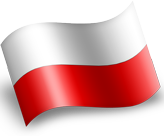 Poland
Poland
- After receiving the information that the project was accepted by EU all the teachers of our school, as well as the head teacher, were invited to take part in the project (during the Board of Teachers' meeting - 15th September 2015).
- The Erasmus+ team was established. Teachers from both schools – from the primary school and the junior secondary school – teaching different subjects: Science, ICT, Mathematics, English and Polish were involved into this project.
(Marek)
October 2015
Romania
In our school:
- We hosted the first transnational meeting and we took some important decisions about the project together:
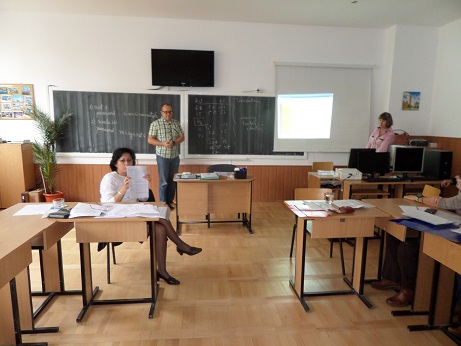
- We introduced the project to the students and to the teachers inside our school.
- We have developed a lot of voluntary activities with students helping each other ( we kept records on paper and photos). Volunteering includes students helping other students with their school subjects (Romanian, Maths, English etc), but also students teaching other younger students how to play (extracurricular activity)
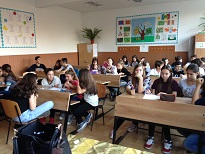
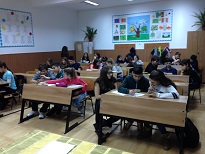
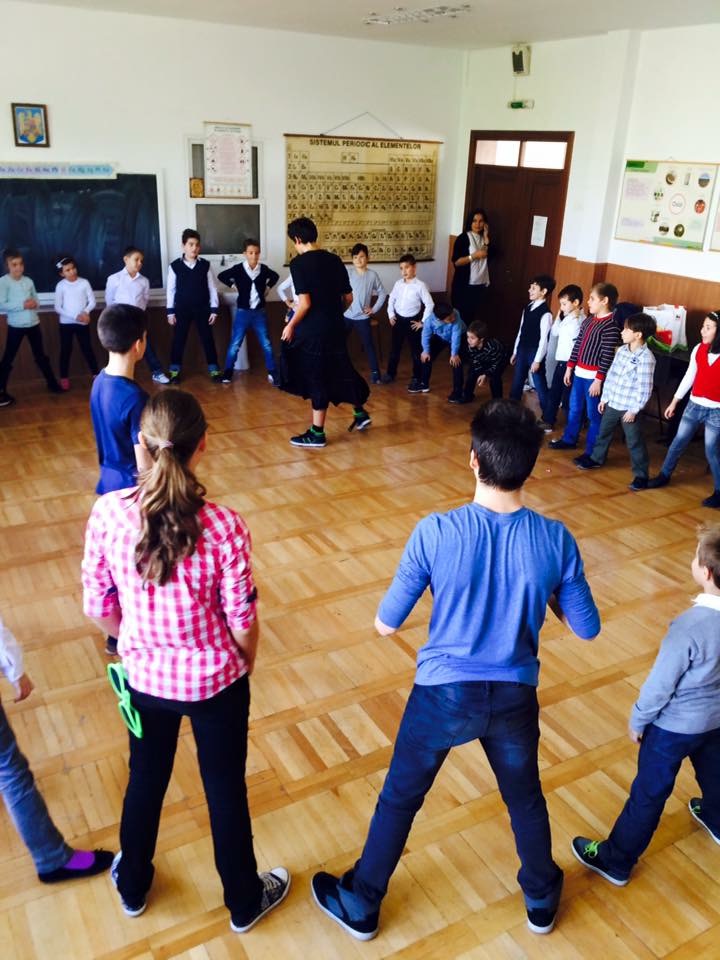
- students began writing the projects about the most popular sport or game and we will be choosing the best ones to upload them on twinspace. As the students are of different ages we suggested 2 different sections for compositions:one for students up to 12 years old and one for the older ones.
- we applied questionnaires to see where we start from with this project
- we developed the Erasmus Corner
-we began the process of choosing the pupils for the first mobility.
(Daniela and Carmen)
 Portugal
Portugal
And finally the project is running here and quite well! The Project was presented to the school, to the Pedagogical main organs and also to the community by a local radio station school program interview. Also de City Hall department of education has knownledge of its approval and development.The local Erasmus+ Team who has already enrolled in the activities seems to be quite interested and comitted in the activities. By the way, there is a teacher in the team who would like to build a e-platform with his professional ITC students in order that our students from the 6 countries could teach/learn the basics of our 6 languages. Of course all of we will have to cooperate. Tell me if you are interested. The first presentations done so far will be ready by the end of January.
Also in October, there was a conference aimed to the 9th grade students about the Erasmus projects. It was organized by the English teachers and the focus was on the importance of the mobilities through Europe and through the world. People can learn more, people cand create ties for ever, people can easily change ideas. The school invited the Erasmus Social Network from the local university - Universidade da Beira Intererior - at Covilhã (15 kms north of Fundão) which an organization that supports the foreign students who come to the University. Our students were quite interested in all the testimonials. Here are some photos:
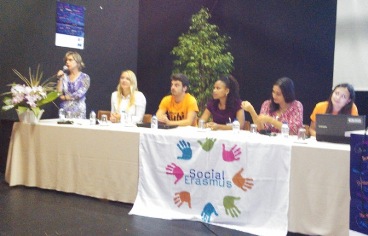
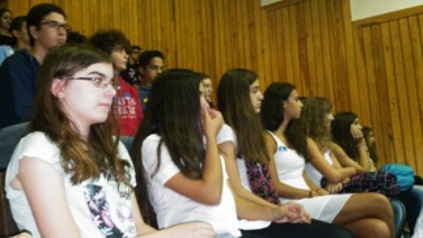
About the mobility to Romania
Romania, sweet Romania, it was my fouth time on you and I'm sure this won't be the last! Thanks Principesa Margareta school for hosting us once again.
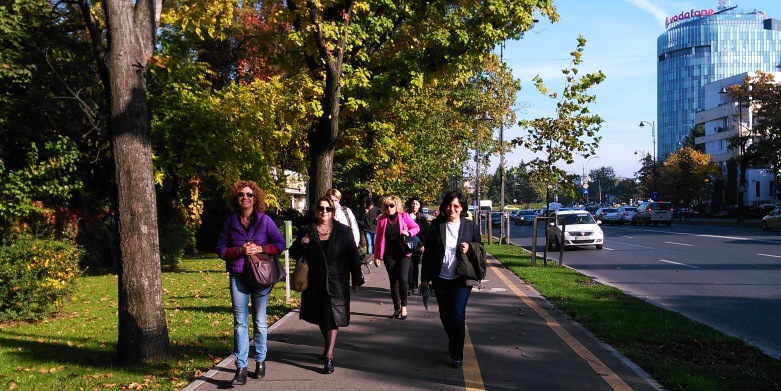
(João)
 Italy
Italy
The project is start:
we presented the project to the Teachers, families and students
we formed the work team
we have identified the students involved and organized the activites
(Patricia)
 Poland
Poland
- All the class teachers from both schools were asked to suggest the names of the students with learning difficulties and who were endangered by the risk of early school leaving. At the same time the class teachers gave the school coordinator of the project the names of the best students who will be able to take part in the project using peer-learning method.
- During the teachers-parents meeting all the parents were informed about the project. Next the class teachers gave those students from both groups leaflets about the project and a declaration for the parents, that their daughter or son will attend some additional classes as a part of the project.
- At the very beginning of October the Erasmus+ groups of students in both schools were established. They included 12 good students and 23 weak students from the primary school (aged 11 to 13) and 8 good students and 30 weak students from the junior secondary school (aged 13 to 15).
All the information about the project was uploaded to the website of both schools:
http://www.zszs.rejowiec.pl/gimnazjum/erasmus_info.htm
http://www.sprejfabr.rejowiec.pl/index.php?option=com_content&view=article&id=118&Itemid=313
After the Erasmus+ team of students was completed there was a meeting with their parents where all the details of the project were explained (5th October 2015).
- The Erasmus+ corner was established.
- At the end of October (20th to 24th October 2015) there was a transnational project meeting in Bucharest. From our school two teachers took part in this event (Beata Parada and Marek Krzywicki). Apart from numerous meetings and discussions about the project all the participating teachers were informed about the different types of learning difficulties and ways to deal with them. All the representatives from the partner schools took also a part in the course about using e-Twinning, TwinSpace and other educational platforms at schools. The course was presented by the Polish coordinator Marek Krzywicki.
October 2015 - May 2016
- Pupils from each classes took part in additional classes, during which 20 good students from the primary and junior secondary schools were helping the 53 students in their different learning difficulties. The teachers: Anna Klin (Mathematics) , Beata Parada (English), Aneta Podgórniak (ICT, Mathematics), Anna Włodarczyk (Chemistry, Biology), Agnieszka Kotlarska (Polish language) and Marek Krzywicki (English, German) were taking care of the students and providing help in those situations when it was necessary. The students were meeting from one to five hours a week, depending how much help was needed.
- During those extra classes not only the necessary help was provided. The good and weak students were working together in teams in order to prepare different assignments in English language, which were the crucial part of the whole project.
Here are some pictures from the primaty school:
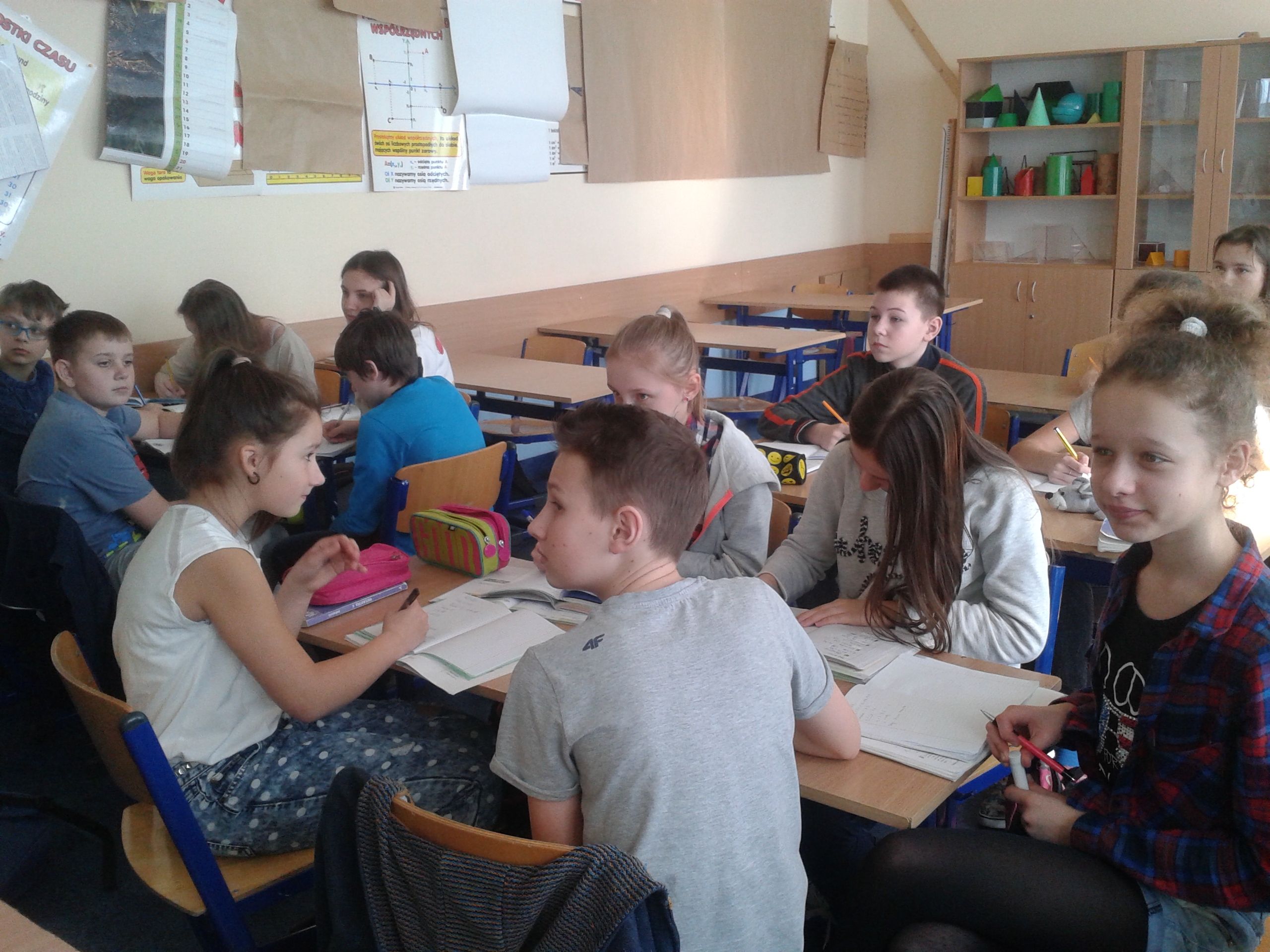
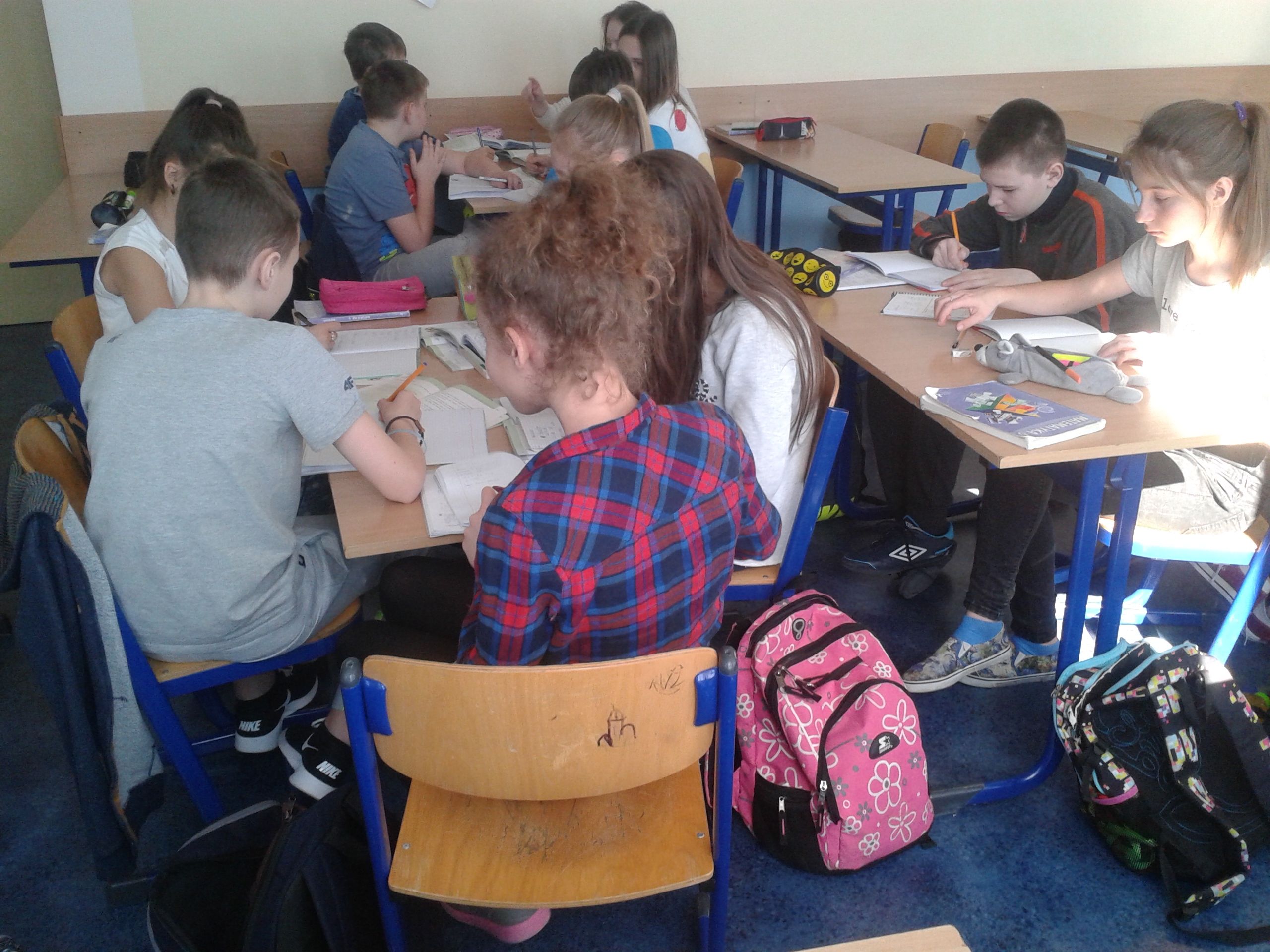
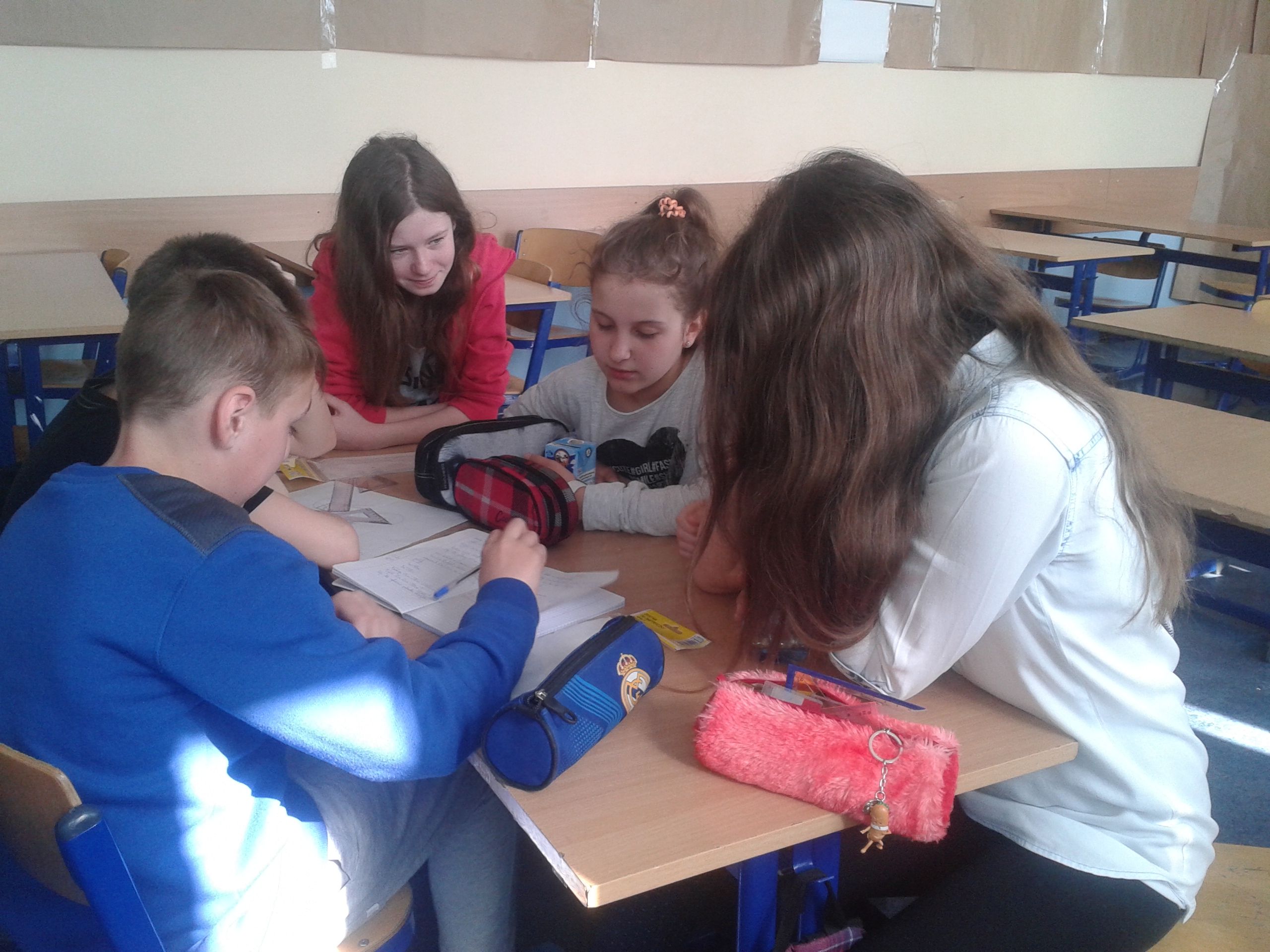
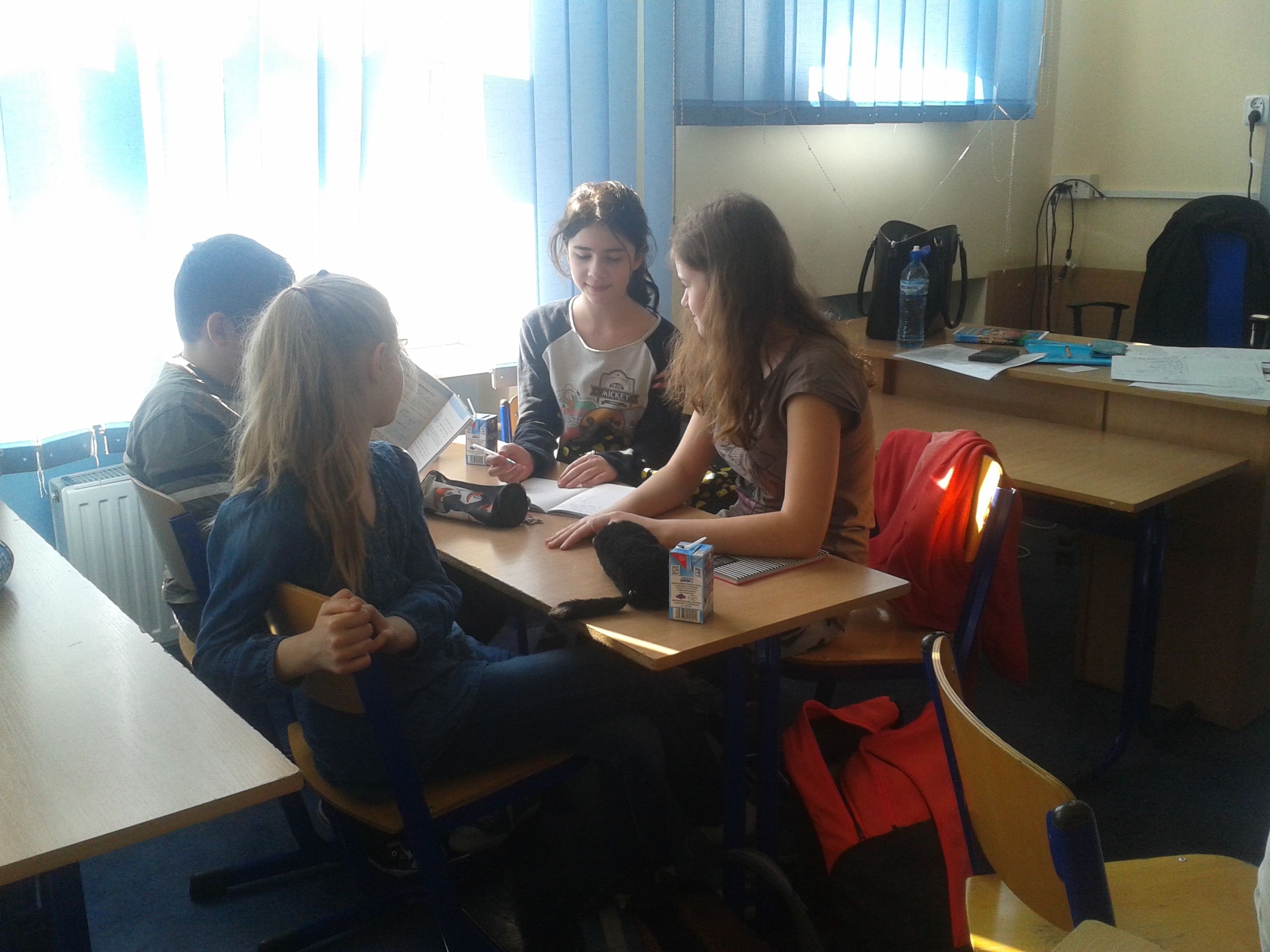
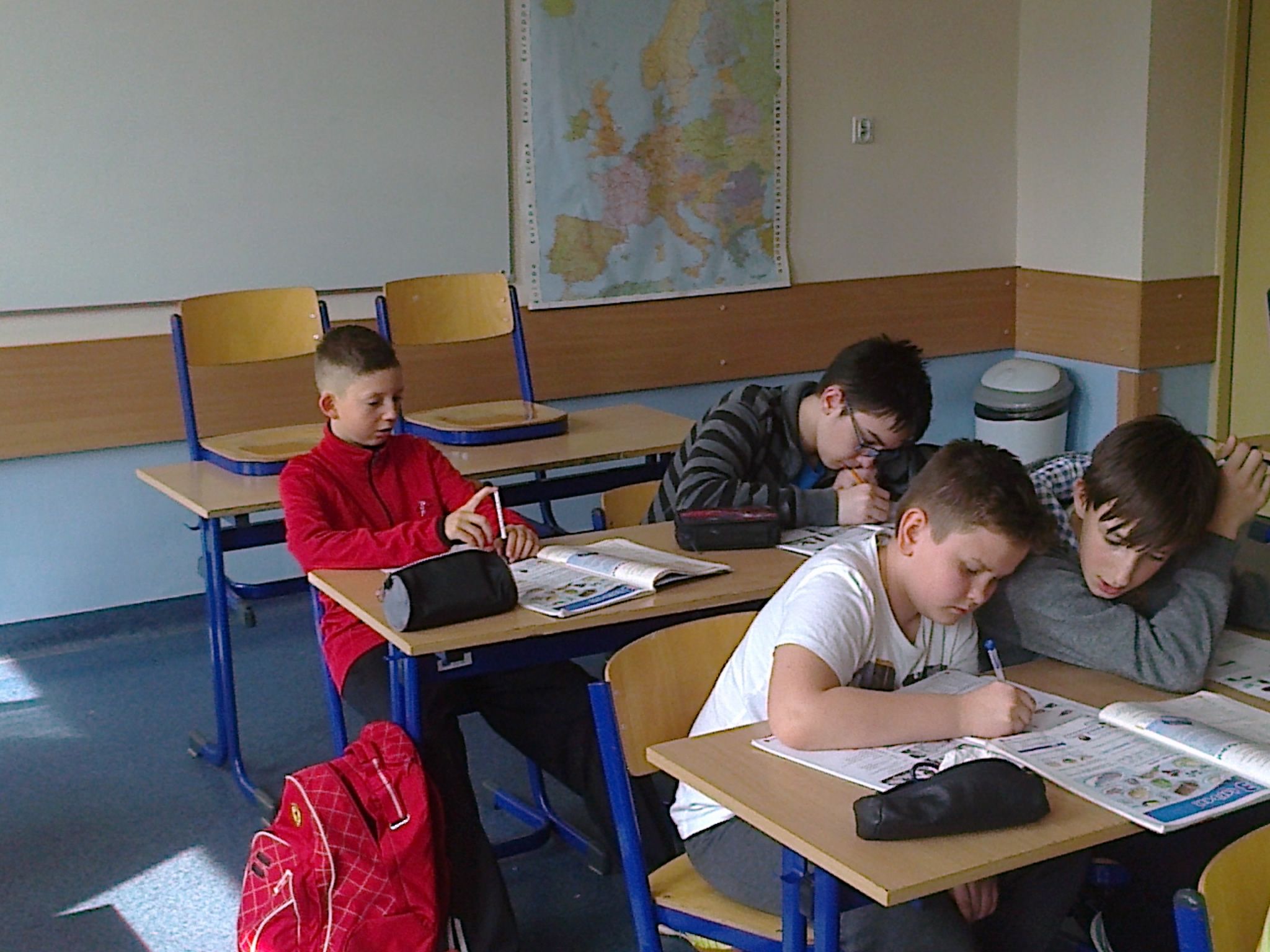
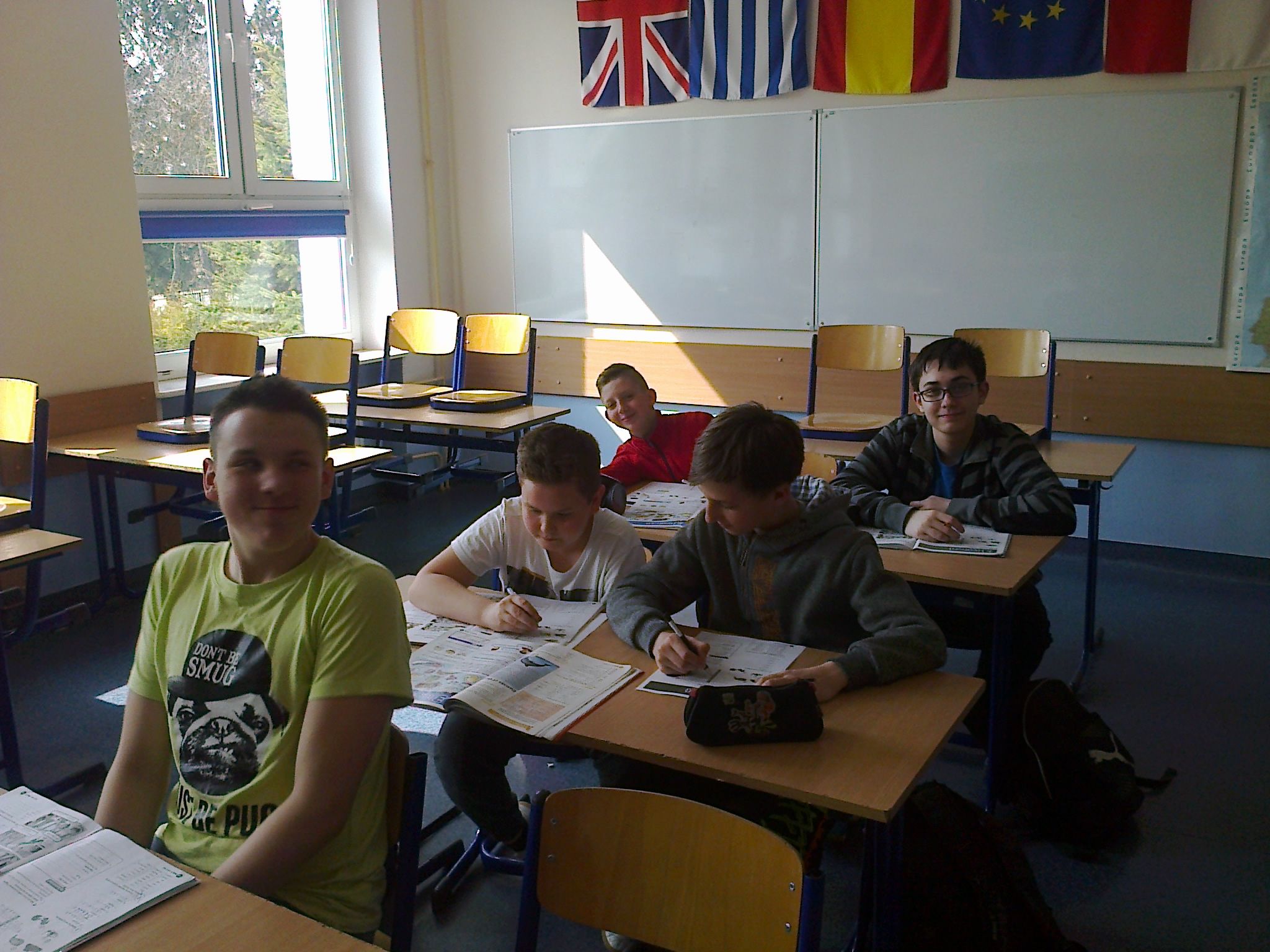
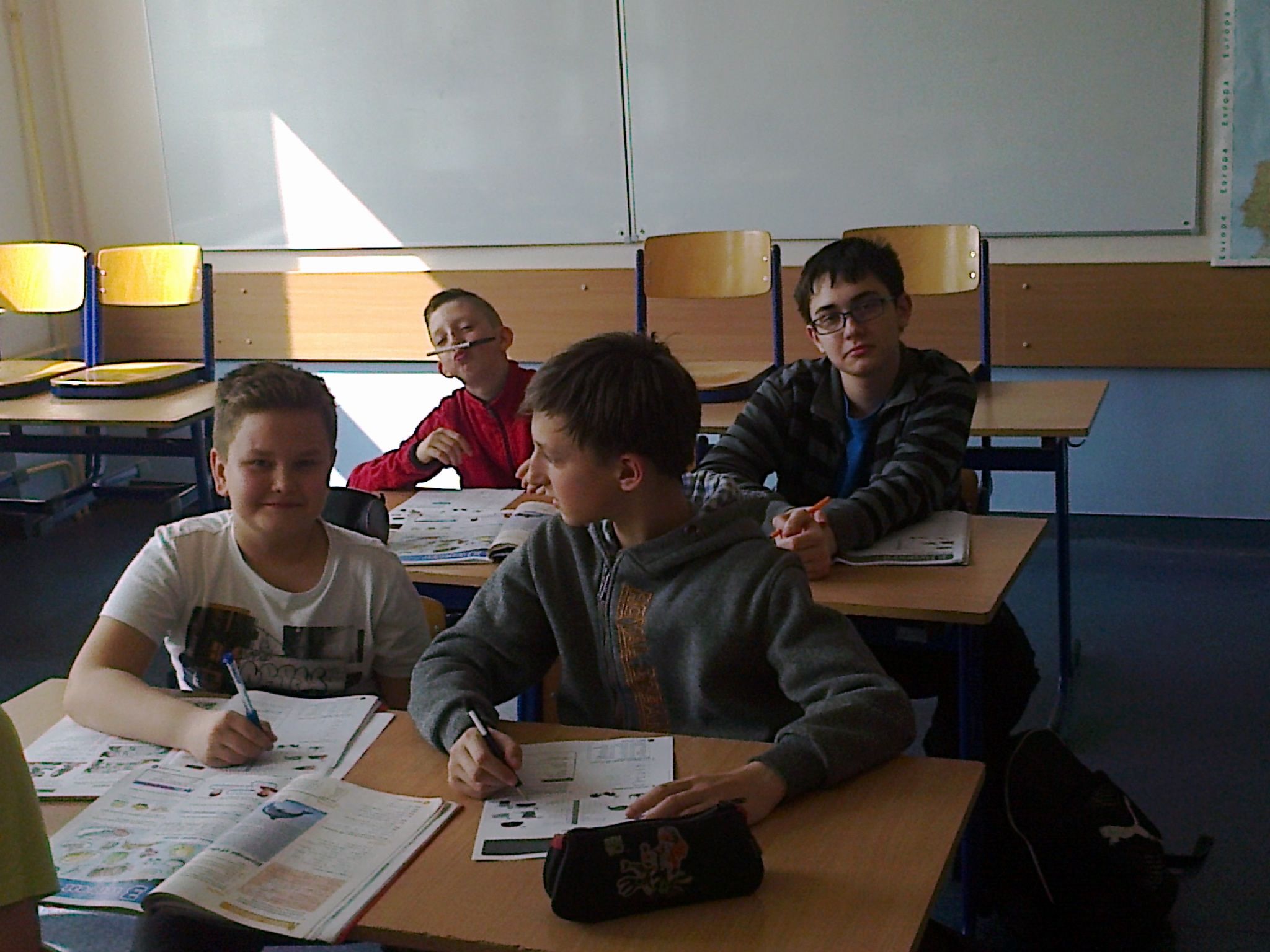
Here are some pictures form the junior secondary school:
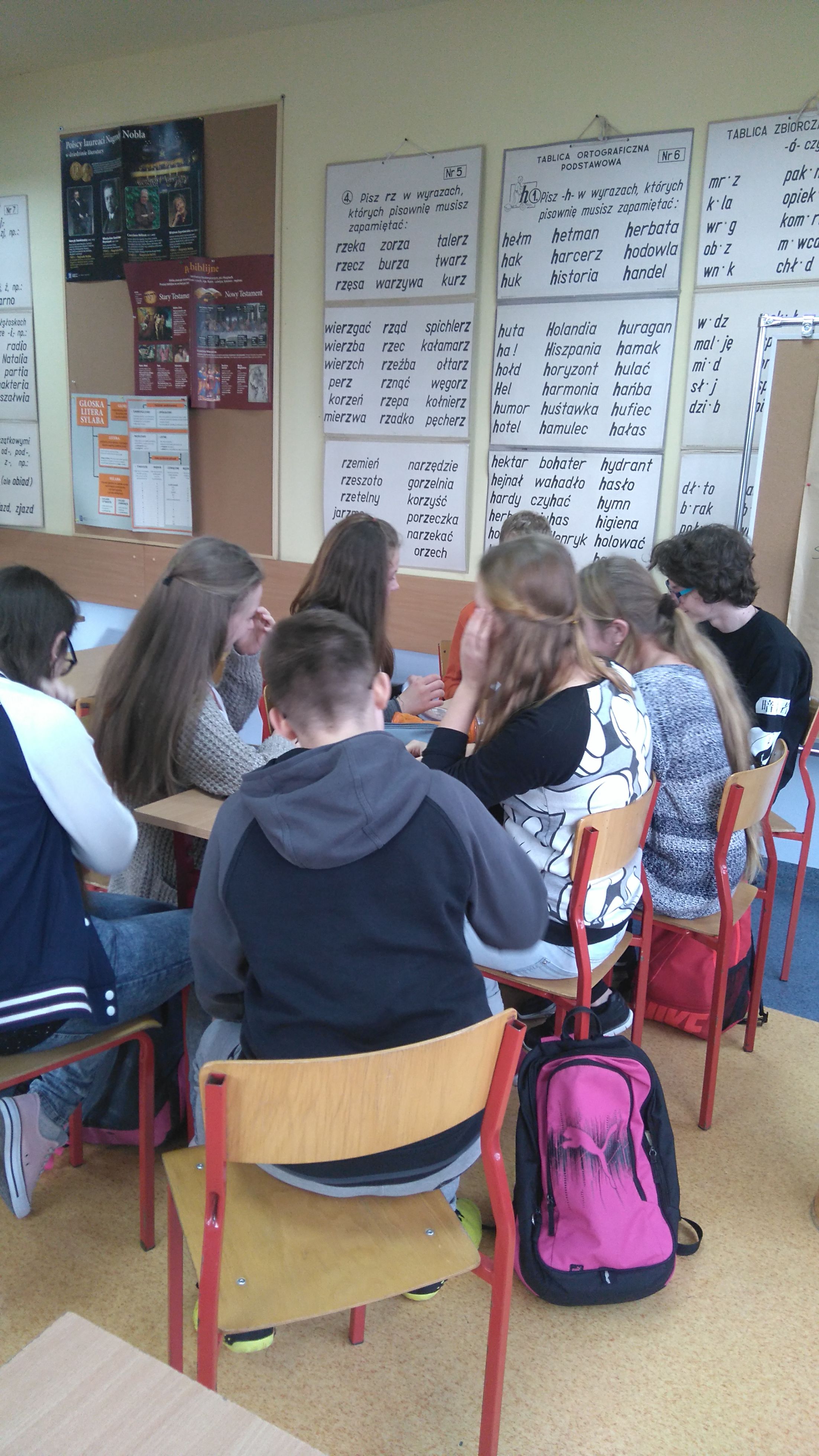
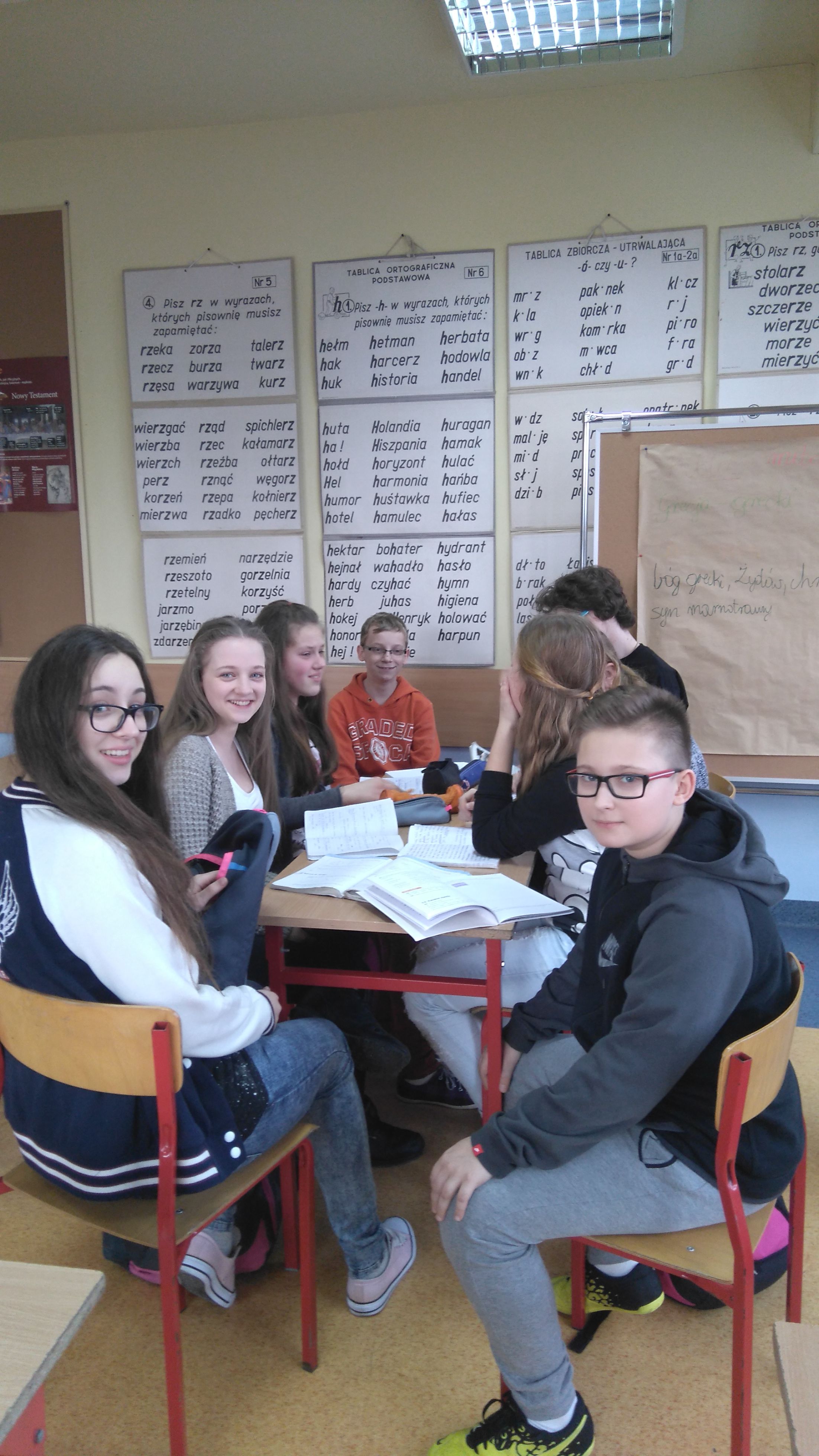
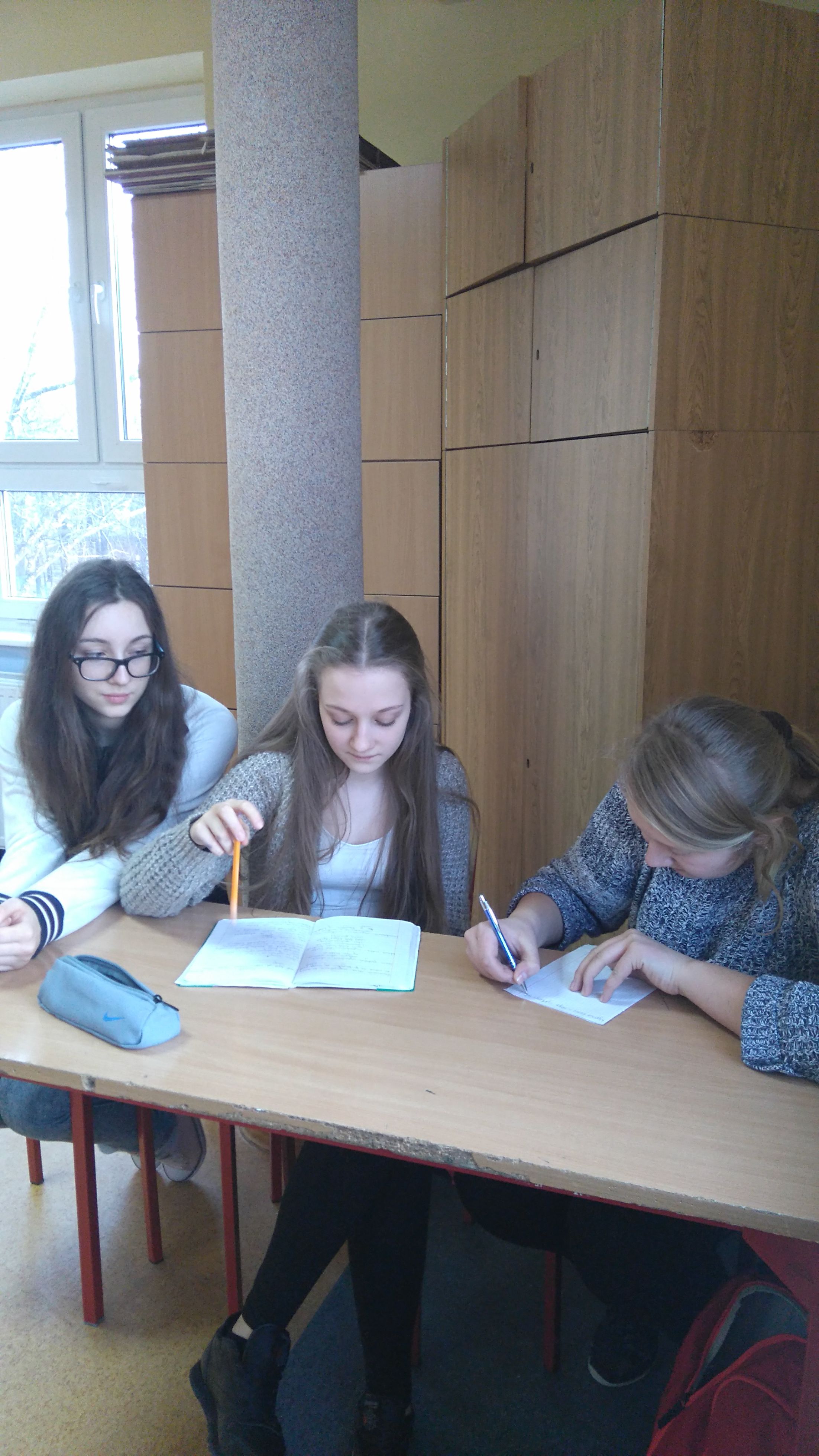
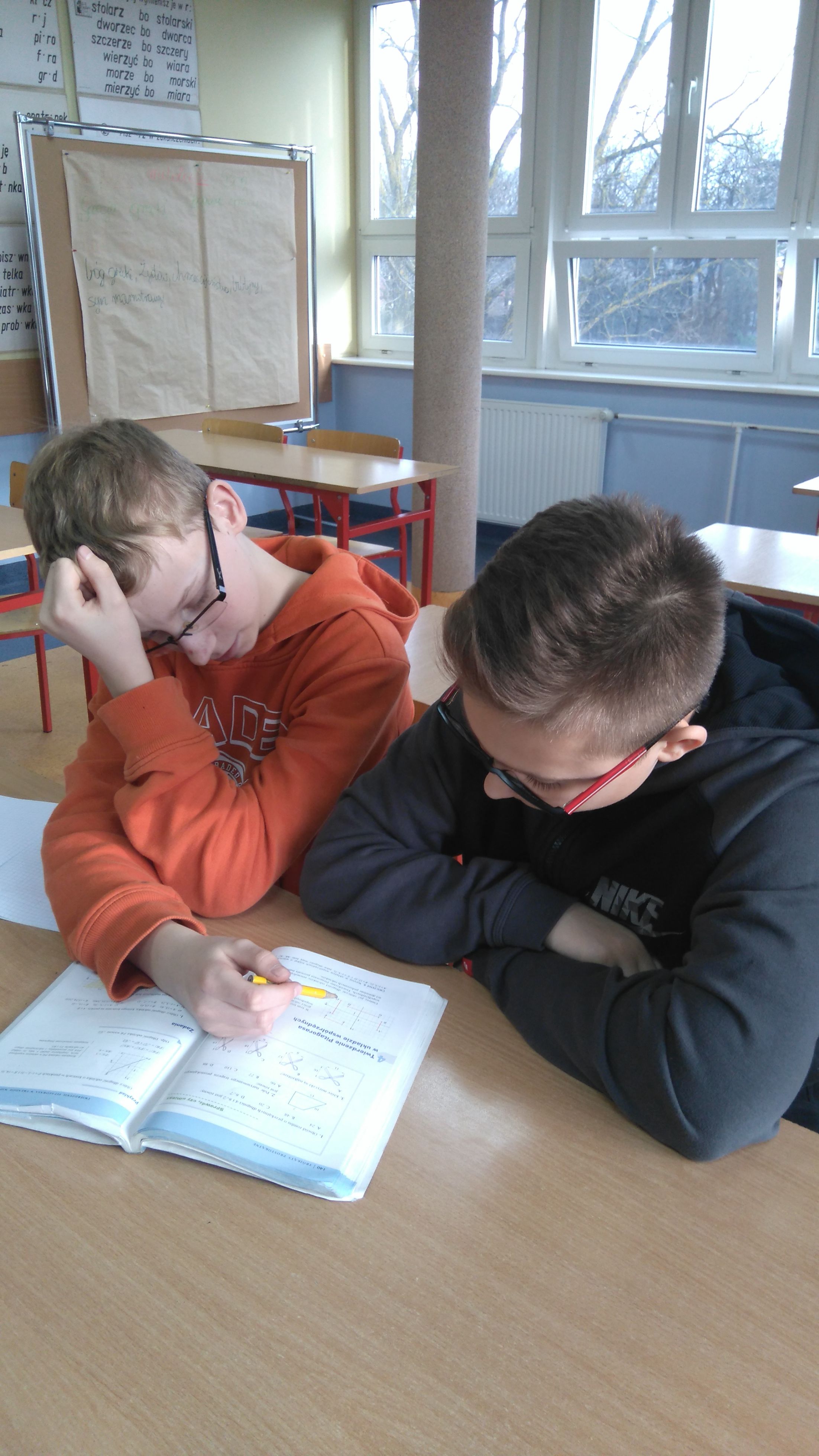
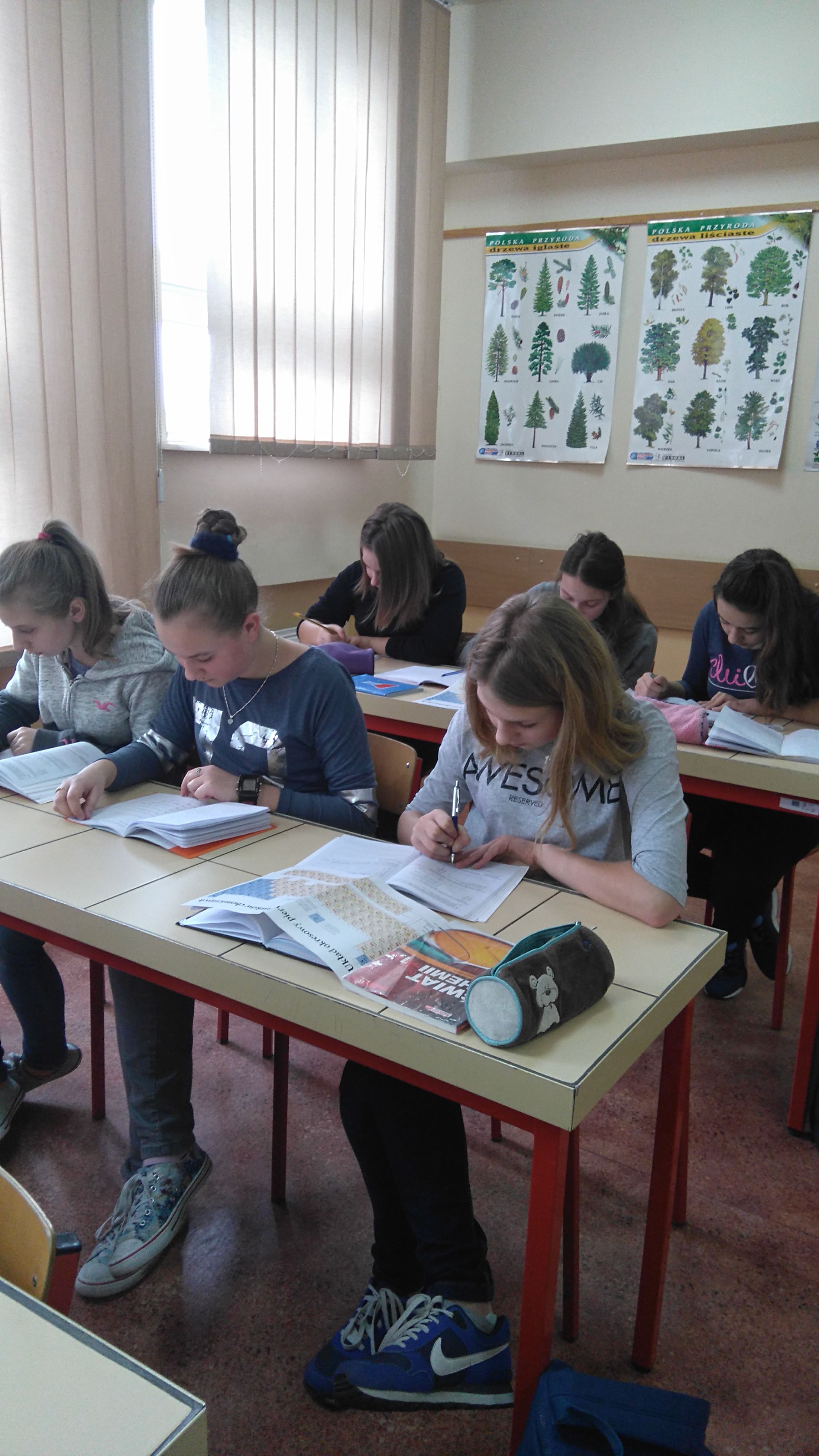
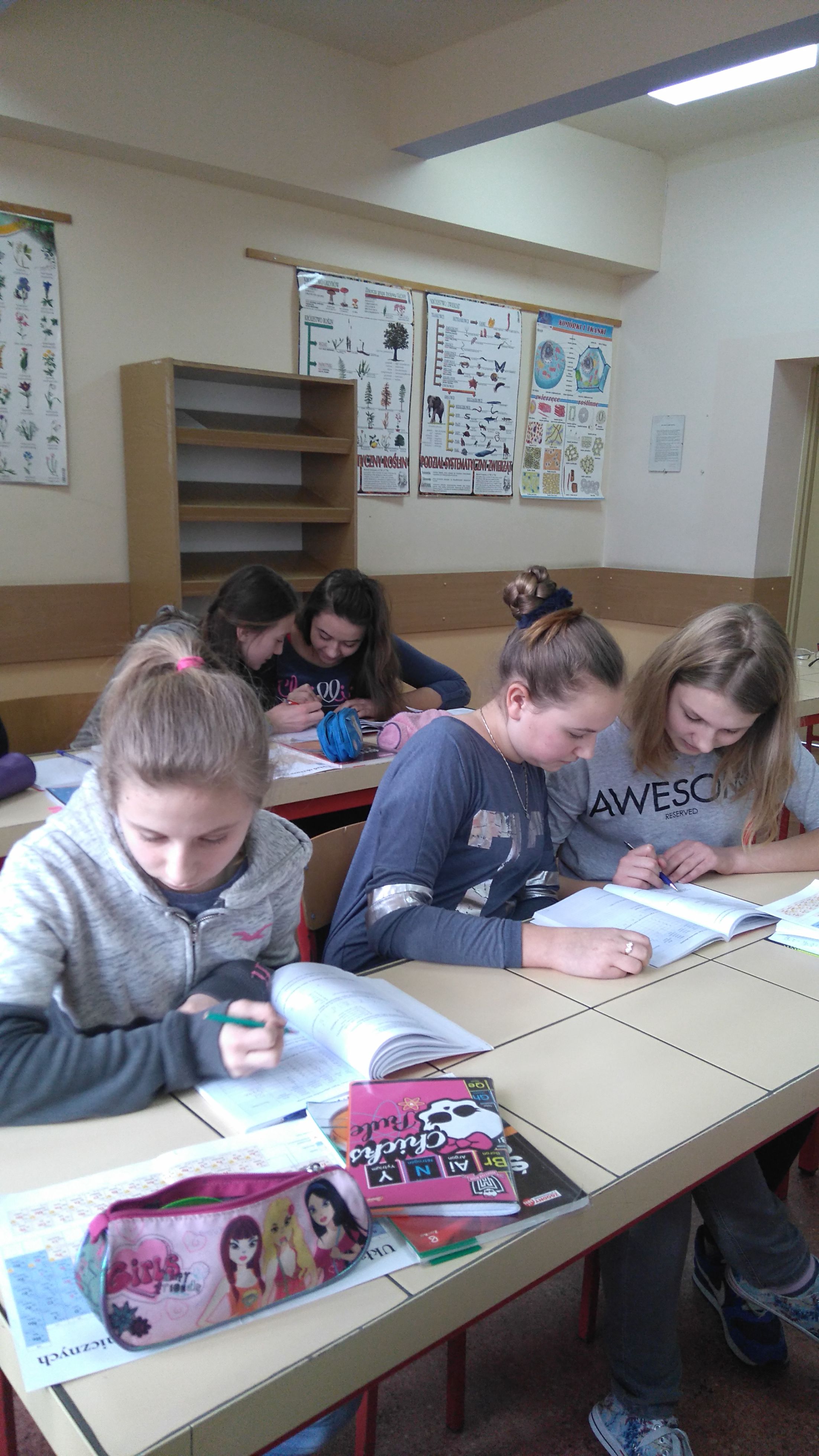
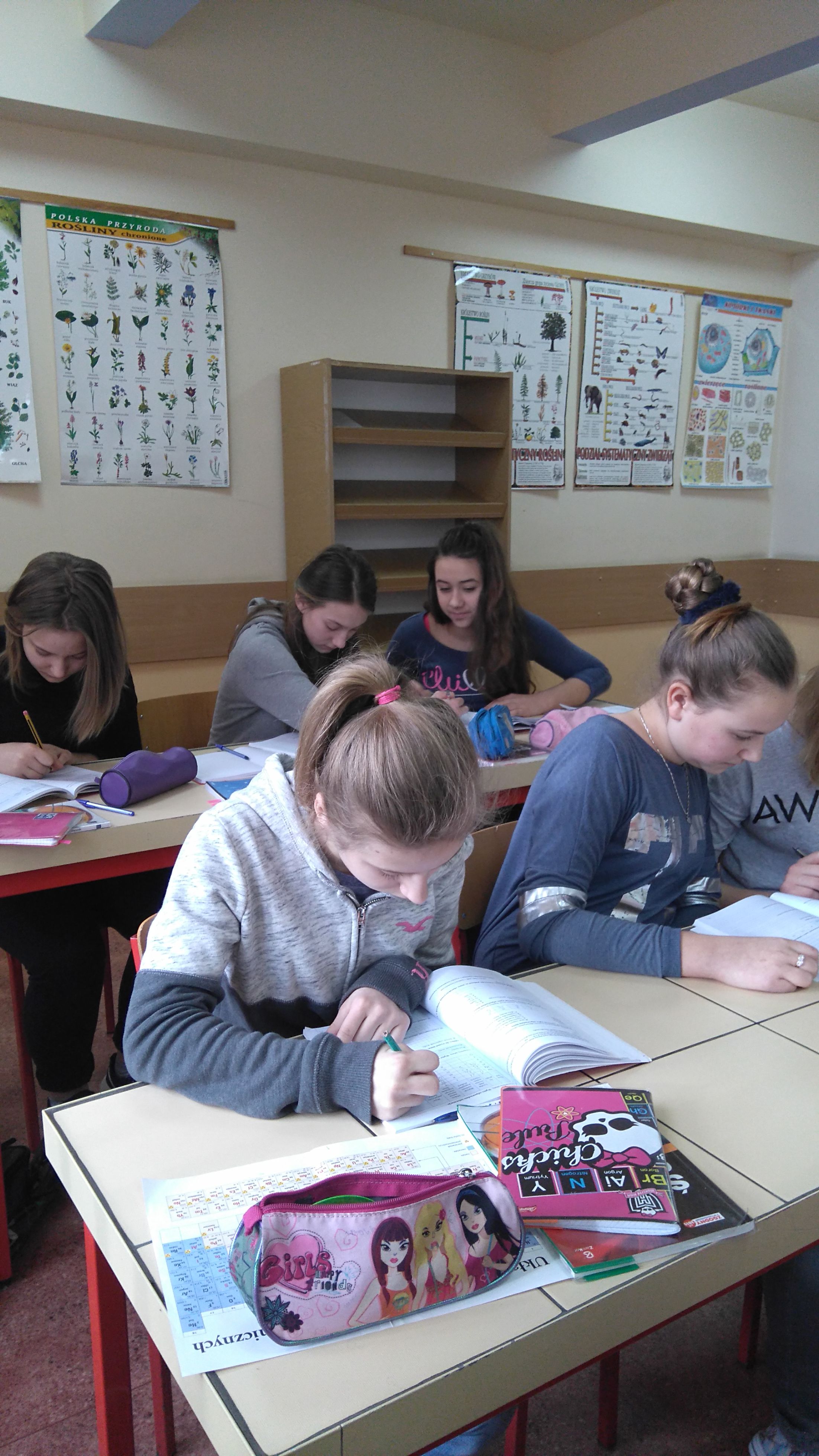
(Marek)
Slovenia
1. we have developed a lot of voluntary activities according to Peer learning method and we took some photos
2. we have introduced the project to the pupils and teachers
3. there is link to Erasmus+ on our web site
4. we developed an erasmus corner
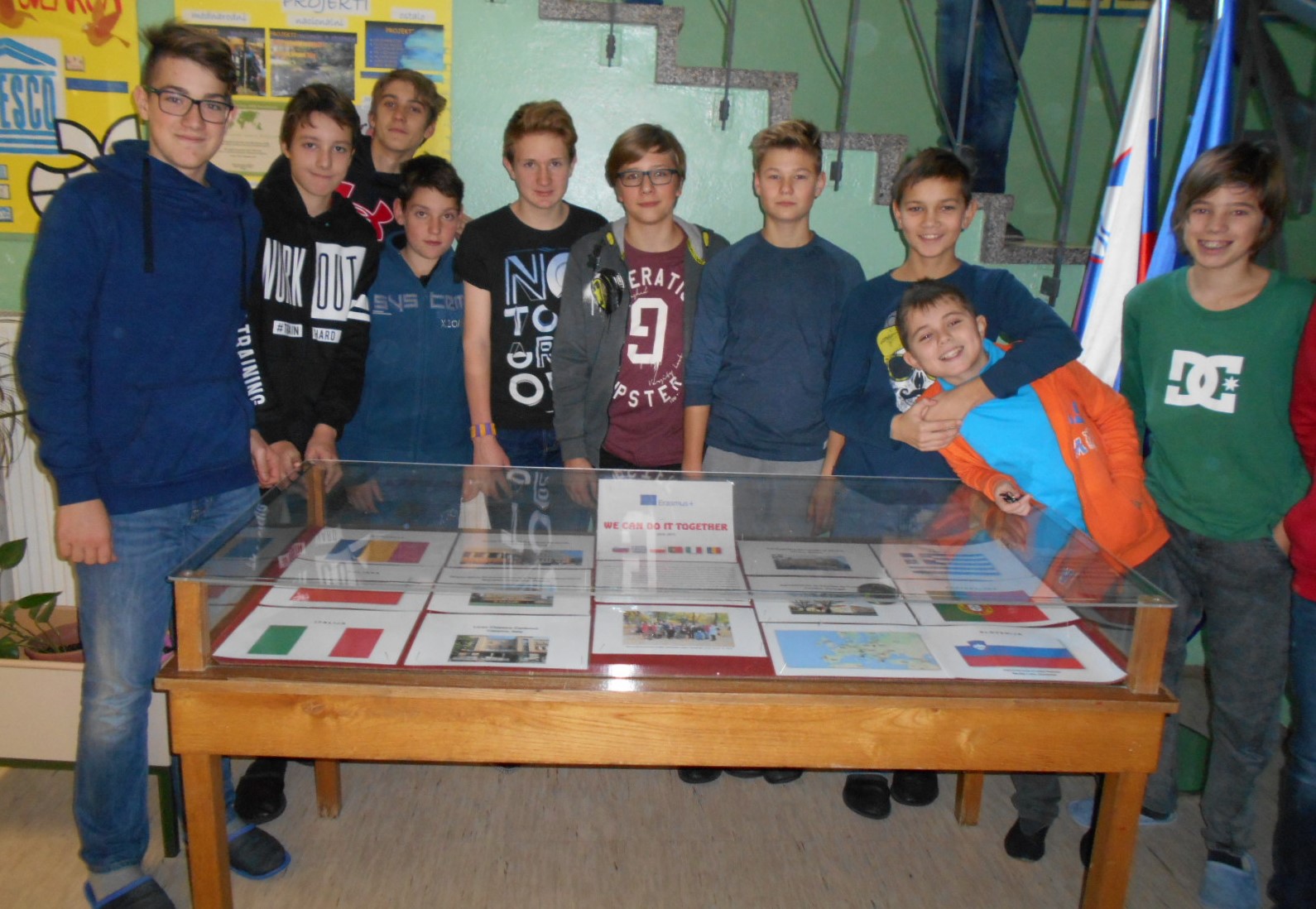
5. we intorduced the project to non-govermental organisation in our area where they deal with the students with learning difficulties ; the laeder of the Center is the teacher of Greek language and before going to mobilities she will organise a short course on basic Greek words and Greek culture
6. students made oral presentations at English and Slovene lessons about partner countries
7. we will give an interview about the activities on the local radio next week
8. I had to write a mid report for National agency (activities already done, in the next 3 months, and the spent budget
9. students have written the New year's cards to participating countries
November 2015
 Poland
Poland
Polish students have written some assignments about the most popular game in Poland, in our schools or just those sports which may be not the most popular, but they were done by our students. Most of the works were done in a form of a poster. In the primary school the most popular were: football, volleyball, handball, ski jumping, swimming and karate. In the junior secondary school the most popular sports were: football, handball, tennis, basketball and horse ridding. All the works were scanned and included in two multimedia presentations. Both presentations were uploaded to the TwinSpace and website of the project.
(Marek)
December 2015
 Portugal
Portugal
When we travel, we always learn. This Project gives us the opportunity of learning in many ways. When we were in Romania during last October's mobility we were in the place where the Romanian Revolution of December 1989 happened. We used some photographs to teach our sudents, during the History classes, the meaning of the Romanian Revolution. We also remember and thank the Revolution Heroes (Eroii Revoluției) for their efforts towards freedom and democracy bringing Europe to be a better place to live in.
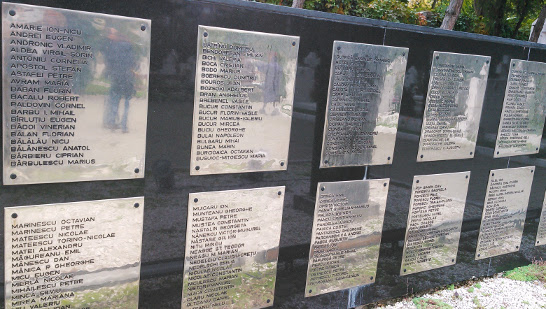
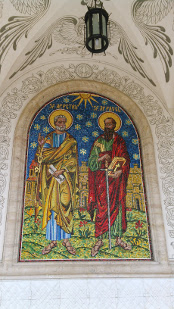
Merry Christmas
We received this beautiful Christmas postcard from our Slovenian partners! Thank you, Slovenia! (Obrigado, Eslovénia!). We wish you and all the partners a Merry Christmas and a Happy New Year.
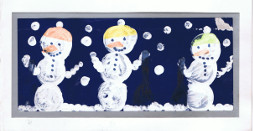
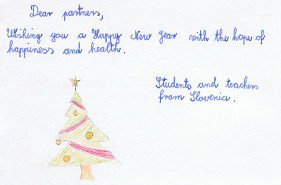
(João)
January 2016
Activities in January 2016 by Slovenian school
Students were writing about Famous personalities and sports
we arranged meetings for parents and students attending the mobility in Athens
we started to cooperate with the local partner MDC BLOK (youth center)
students were using Peer Learning method in order to help less able students
students created the logo proposal
we attached the students's activities on Twinspace
we organised the short course of Greek language for students
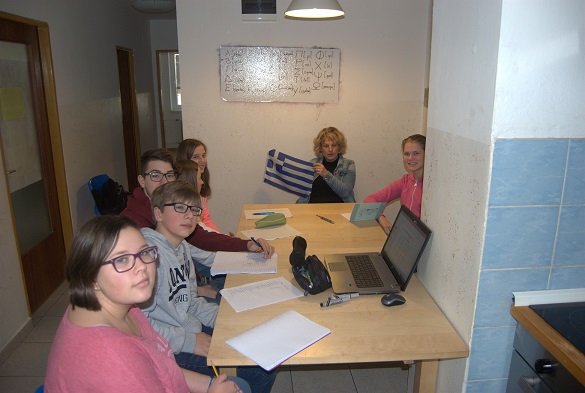
students prepared power point presentations for Greece
February 201Mobility to 2nd Experimental Lyceum of Athens
Students: Enja Novinc, Ula Pintar, Katja Križaj, Luka Družinec, Žiga Beravs
(Zorica)
We are learning Greek - UČIMO SE GRŠKO / ΜΑΘΑΙΝΟΥΜΕ ΕΛΛΗΝΙΚΑ.

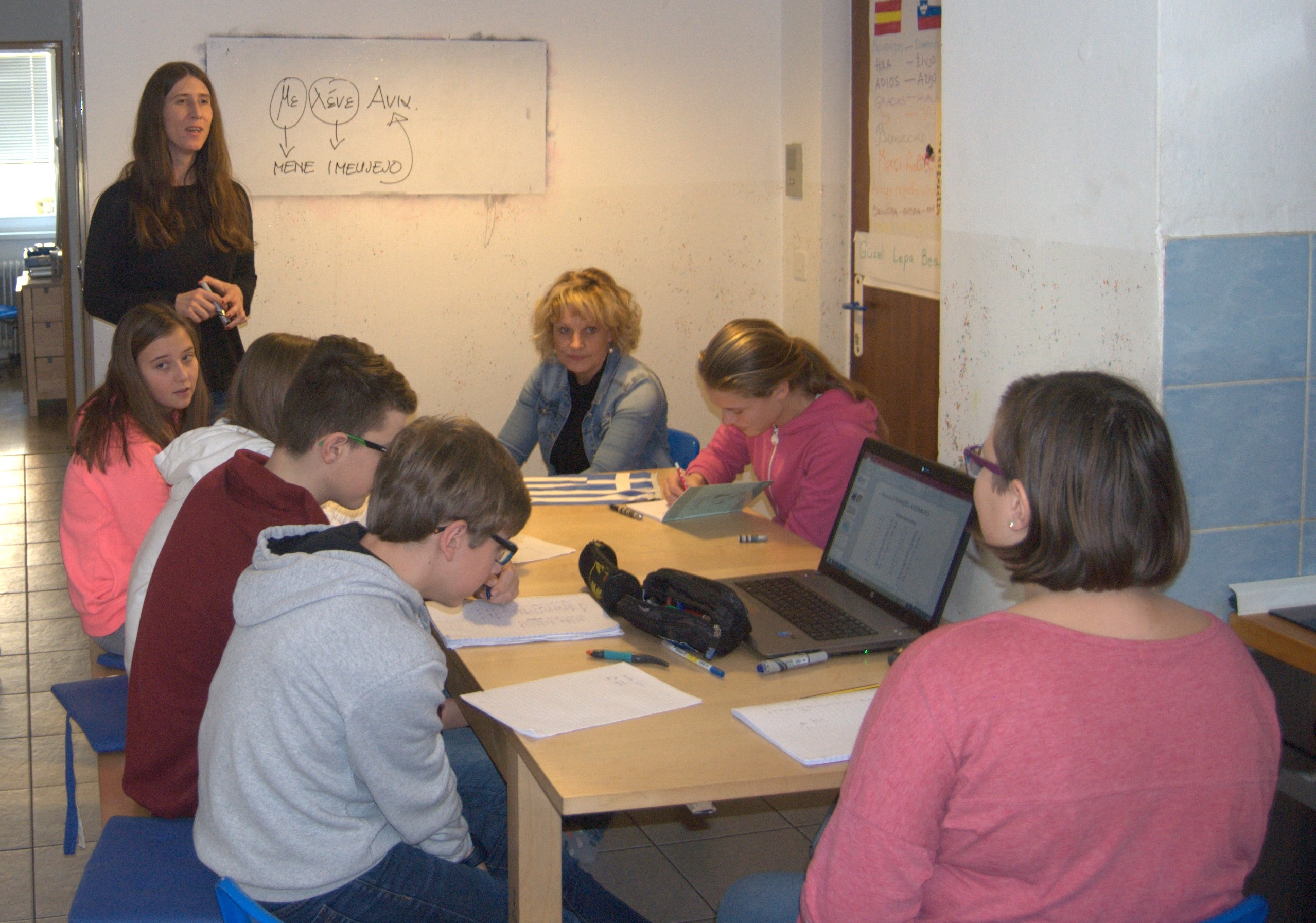
 In Portugal, during January, the Erasmus+ "We Can Do It Together" coordinator went to the local studios of Radio Cova da Beira and was interviewed about the Project and, specially, about the next mobility to Greece. The interview was done during the school weekly radio program "Dias de Escola" ("School Days"). You can listen to the interview here. I'm sorry, is only available in Portuguese.
In Portugal, during January, the Erasmus+ "We Can Do It Together" coordinator went to the local studios of Radio Cova da Beira and was interviewed about the Project and, specially, about the next mobility to Greece. The interview was done during the school weekly radio program "Dias de Escola" ("School Days"). You can listen to the interview here. I'm sorry, is only available in Portuguese.
(João)
 Poland
Poland
Our students starts preparations to the meeting in Athens, in Greece. In January there was the common meeting with the parents, students and teachers (11th January 2016). During this meeting the details of the short-term pupils exchange were presented and discussed.
(Marek)
----------
February 2016 - Project meeting in Greece - report from Slovenian group.
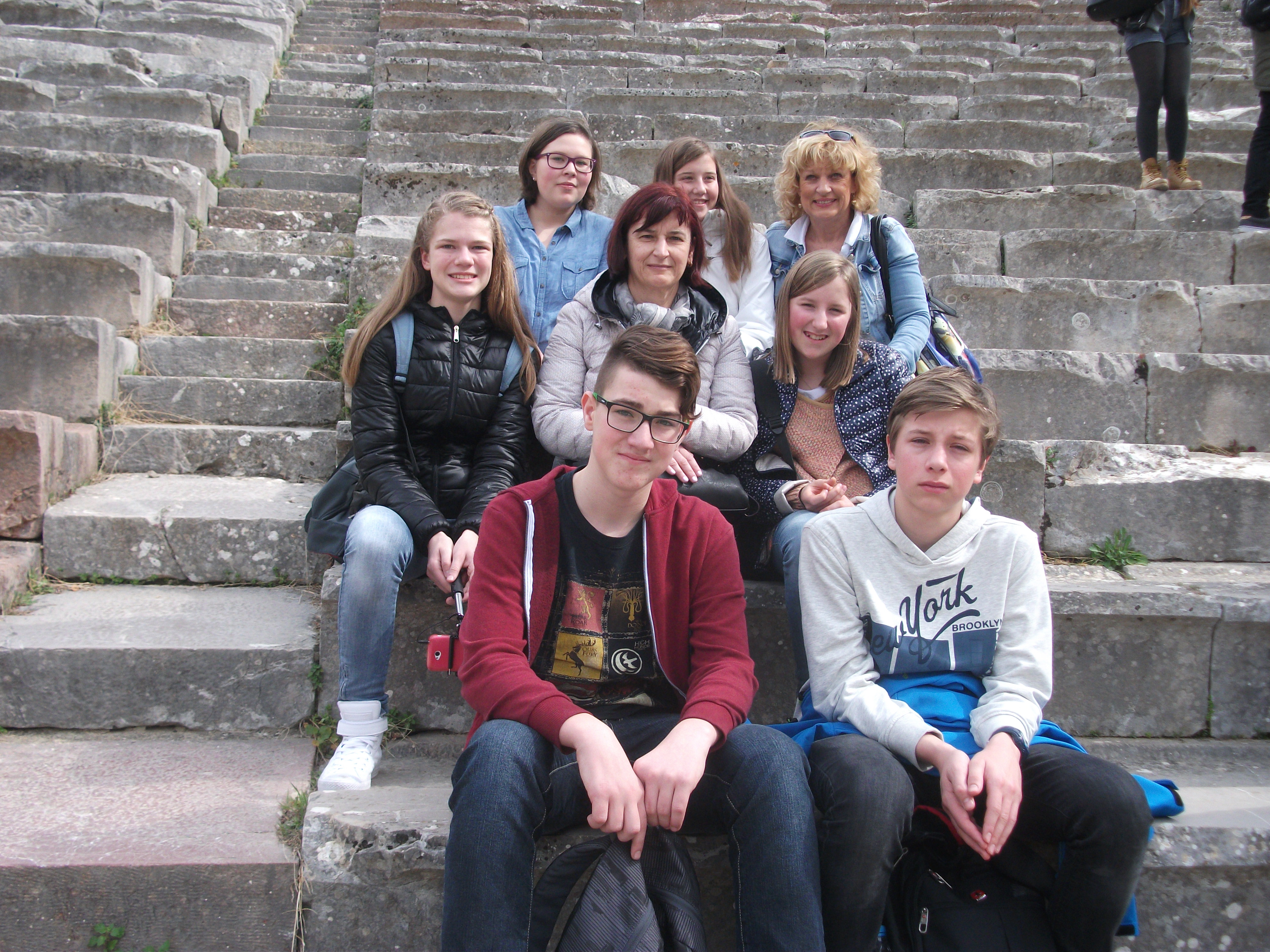
 In Portugal, as well as in the other partner countries, everybody has only one thing in the mind: the mobility to Greece! All the work was done in January and the last presentations took part in February. There was a meeting with the students and with their parents to prepare the trip to Athens. On the other hand the communications between the partners and the host country (Greece) are almost daily. The email was the main communication mean and also the students began to contact their host Greek students. This has been a real excitement!
In Portugal, as well as in the other partner countries, everybody has only one thing in the mind: the mobility to Greece! All the work was done in January and the last presentations took part in February. There was a meeting with the students and with their parents to prepare the trip to Athens. On the other hand the communications between the partners and the host country (Greece) are almost daily. The email was the main communication mean and also the students began to contact their host Greek students. This has been a real excitement!
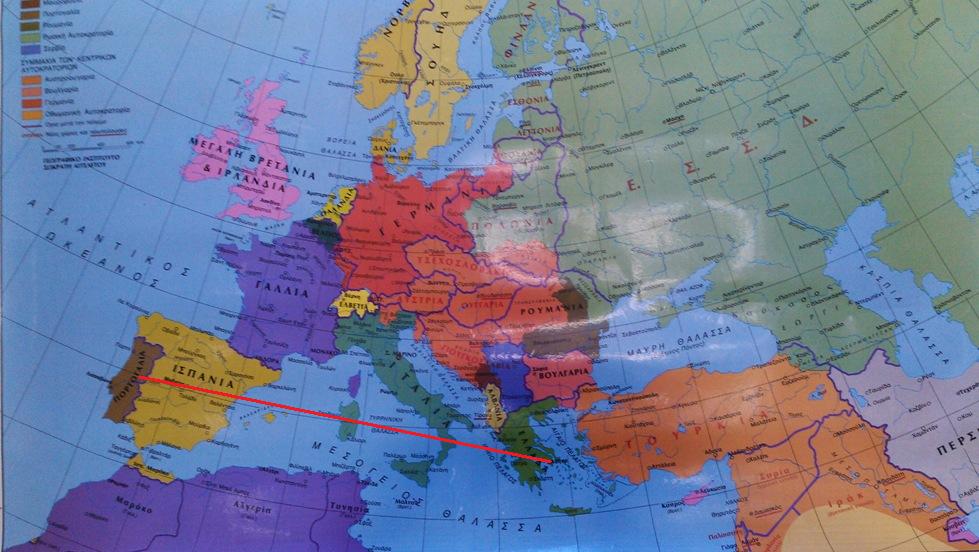
(João)
 Poland
Poland
21st – 28th February 2016
The short-term exchange of the students took part in 2nd Experimental Lyceum of Athens, Greece. Students from the primary school: Natalia Szczupak and Łukasz Zduńczuk, as well as students from the junior secondary school: Julia Krzywicka, Kinga Trojanowska and Kacper Jaszczuk have taken an active part in all planned activities: attending various classes, presenting student's projects, attending in biology lecture and presentation on social sciences, watching a film about Greek history, taking part in athletic activities, participating in Greek-culture-workshops in Epidavros, Nafplion and Athens, playing games with their foreign peers.
Two of the accompanying teachers: Marek Krzywicki and Agnieszka Kotlarska took also part in all activities. Thanks to Greek host the teachers have the possibility to take part in special prepared courses for teachers like „Modern tools and methodology in teaching mathematics, science and technology”. The courses were presented by the teachers from the 2nd Experimental Lyceum of Athens.
(Marek)
 Italy - about the mobility in Greece - Report
Italy - about the mobility in Greece - Report
Just come back from Athens, Greece. It was an amazing experience: we previously had an interview with a famous Italian footballer, Angelo Ogbonna, who comes from Cassino but lives in London. It was a unique experience from the personal as well as educational point of view. We talked about sports, we shared the different opinions with students from other countries and students could learn all the different physical and mental benefits of practising sports for a professional sportsman.
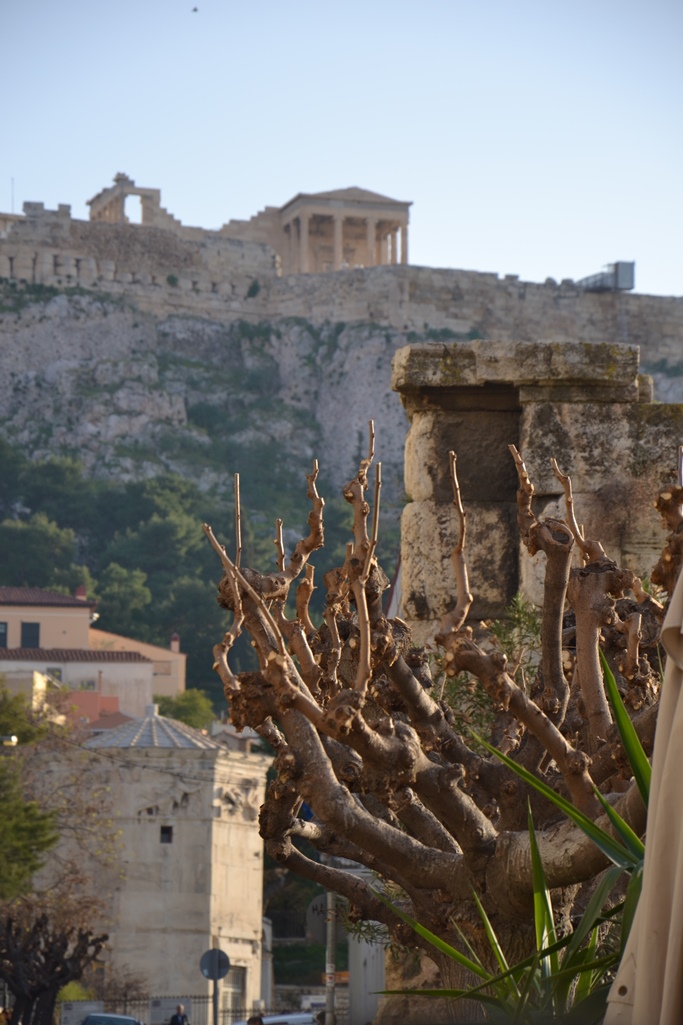
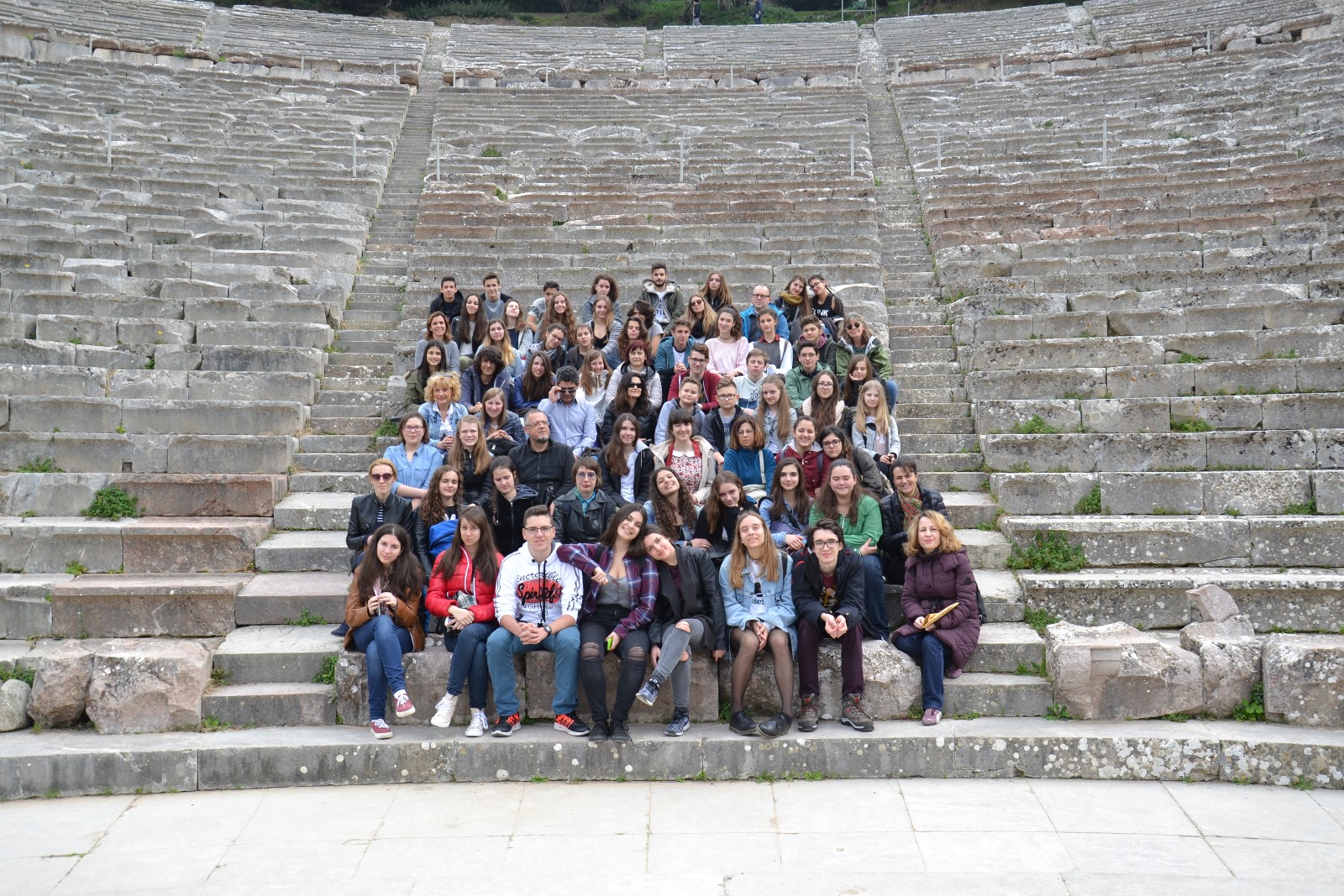
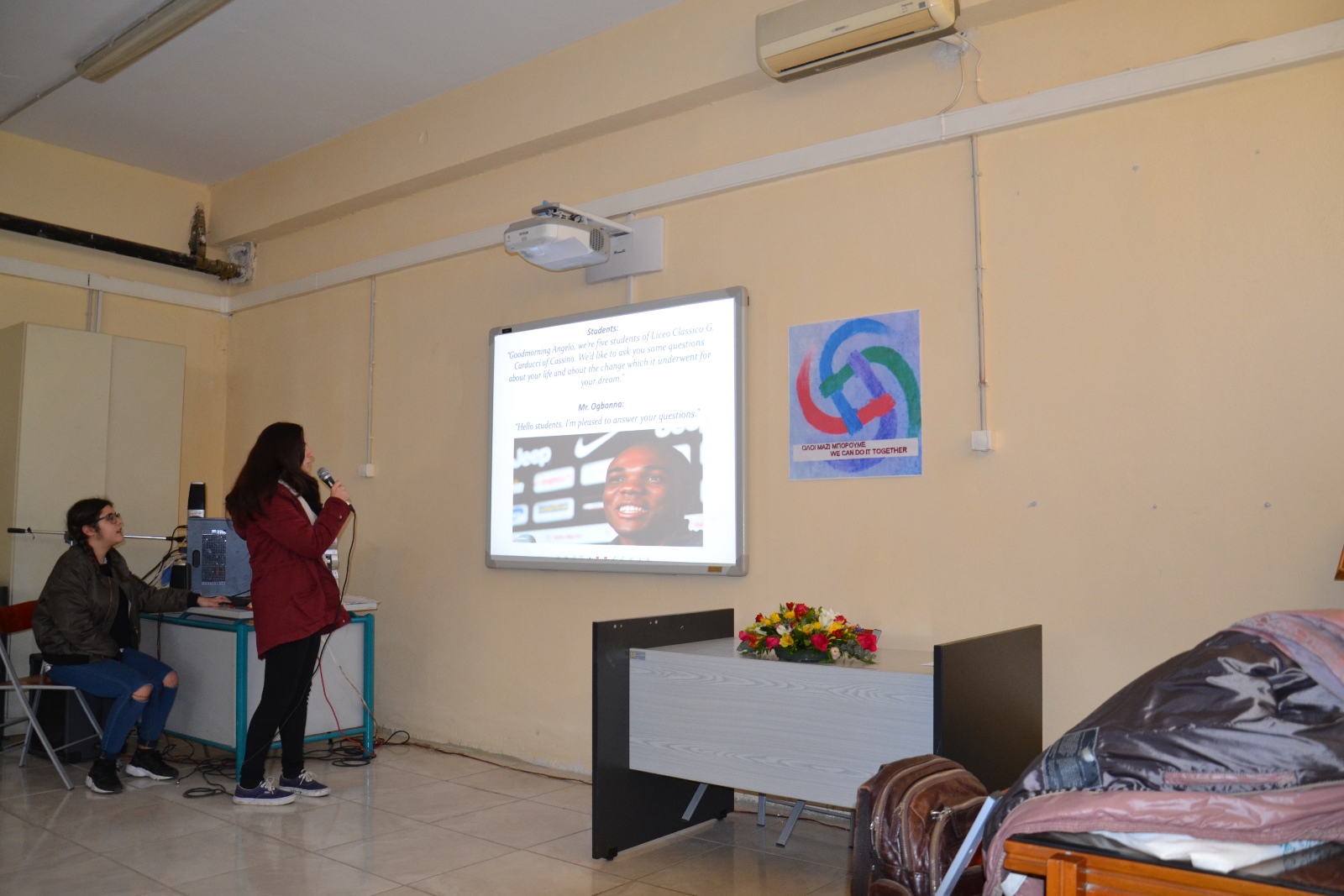
----------
March 2016
ACTIVITIES IN SLOVENIA - VISIT OF ERASMUS+ VOLUNTEER IN šKOFJA LoKA Mr. OKAN KAYA representing his experiences through Erasmus+, volunteering and his homeland Turkey.
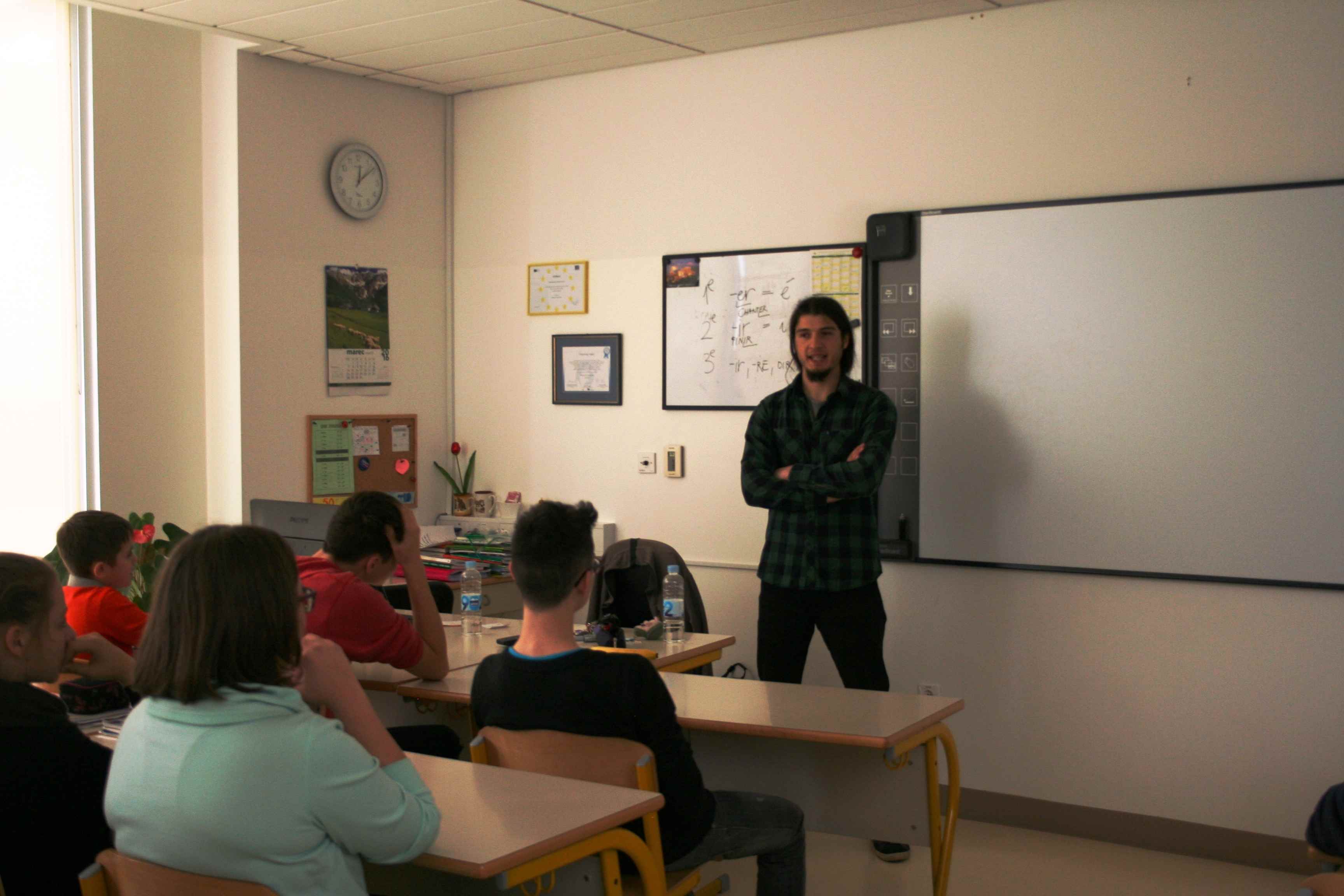
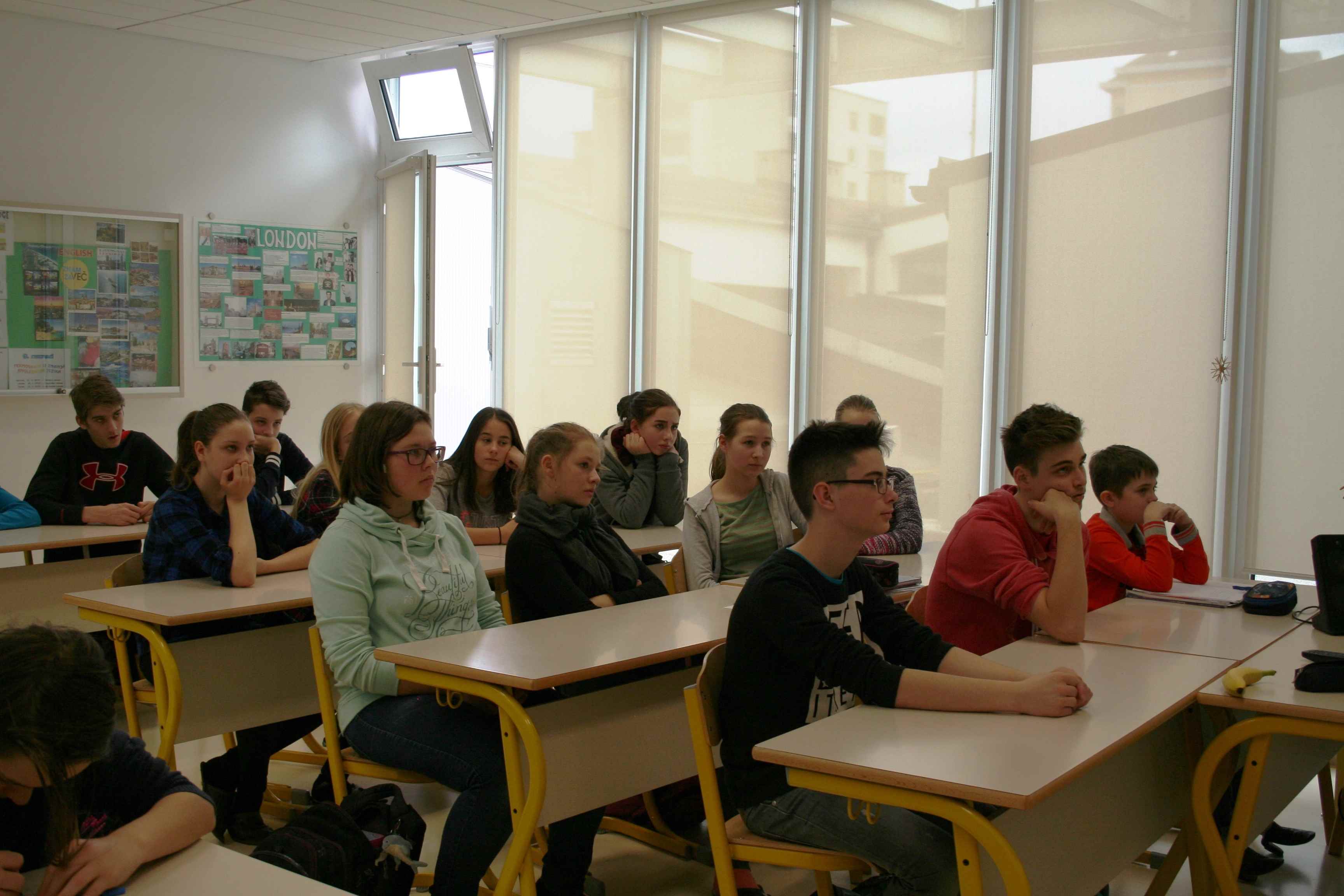
 During March, in Portugal, the group of students who have participated in the mobility to Greece went to the local studios of Radio Cova da Beira and was interviewed about the experience they had. The interview was done during the school weekly radio program "Dias de Escola" ("School Days"). You can listen to the interview and the whole program by clicking down in the Greek flag. I'm sorry again, is only available in Portuguese.
During March, in Portugal, the group of students who have participated in the mobility to Greece went to the local studios of Radio Cova da Beira and was interviewed about the experience they had. The interview was done during the school weekly radio program "Dias de Escola" ("School Days"). You can listen to the interview and the whole program by clicking down in the Greek flag. I'm sorry again, is only available in Portuguese.
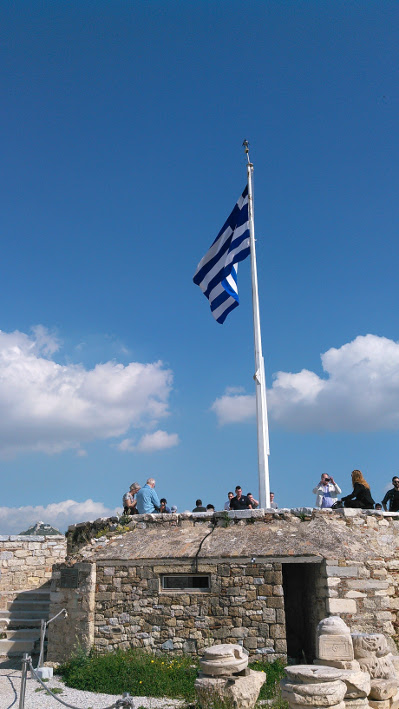
(João)
 Poland
Poland
Students from both schools in mixed teams (good and weak students) have prepared the multimedia presentations about the famous living personality from Poland who is worldwide famous. The students in primary school have chosen: Adam Małysz (ski-jumper), Robert Lewadnowski (footballer), Ewa Swoboda (runner), Grzegorz Rosiński (comic book artist), Robert Kubica (racing driver), Jakub Szczęsny (goalkeeper). The students for the junior secondary school have choosen: Robert Lewadnowski (footballer), Andrzej Sapkowski (writer), Justyna Kowalczyk (cross country skier), Karol Bielecki (handball player), Otylia Jędrzejczak (swimmer), Margaret (singer). The best presentations were uploaded into the TwinSpace and the webpage of the project.
(Marek)
----------
April 2016
Romania
Apart from the mobility in Italy, we continued our volunteering classes and activities:
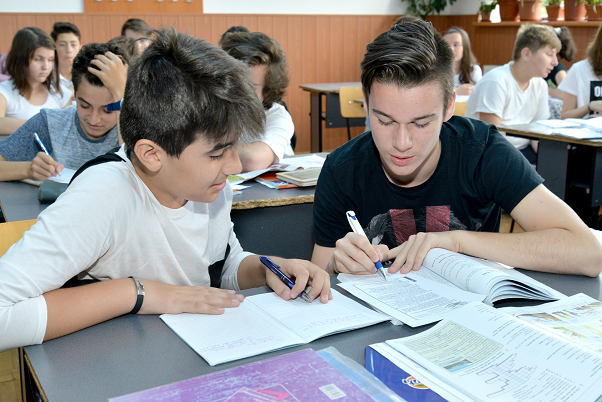
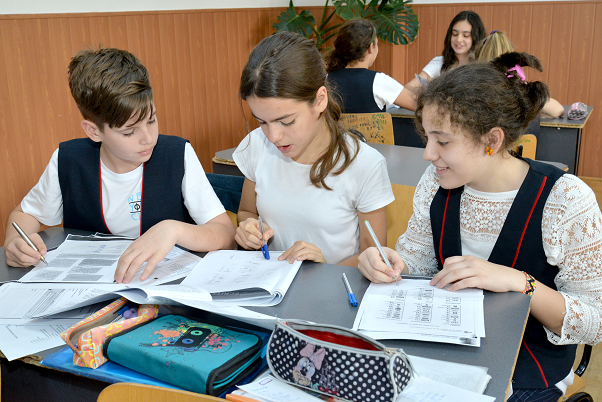
and we launched the web-site of the project: www.volunteerstogether.eu
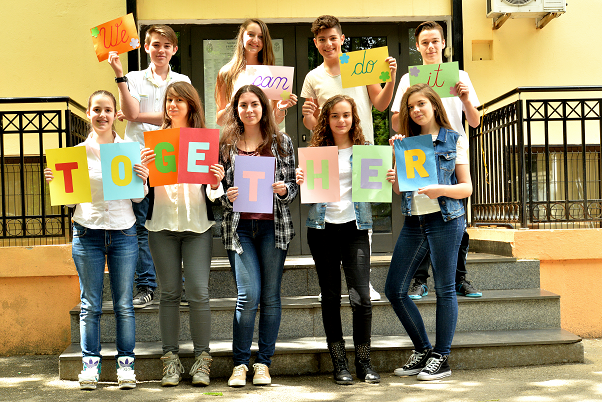
 Poland
Poland
- As usual our students (and their parents) prepared next charity event. This time money collected during the cake sale (prepared by parents and sold by students) were given to a sick 5-year old girl from Rejowiec Fabryczny.
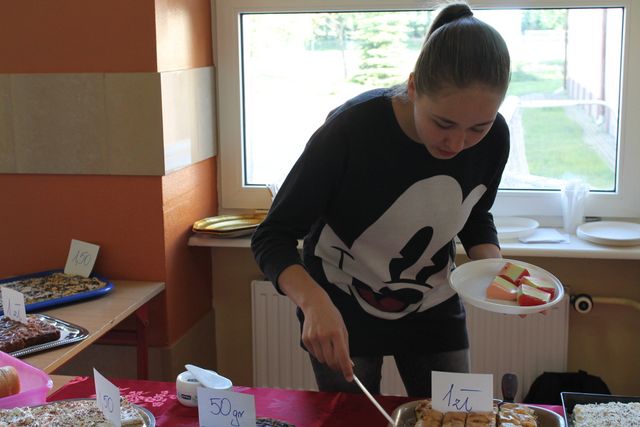
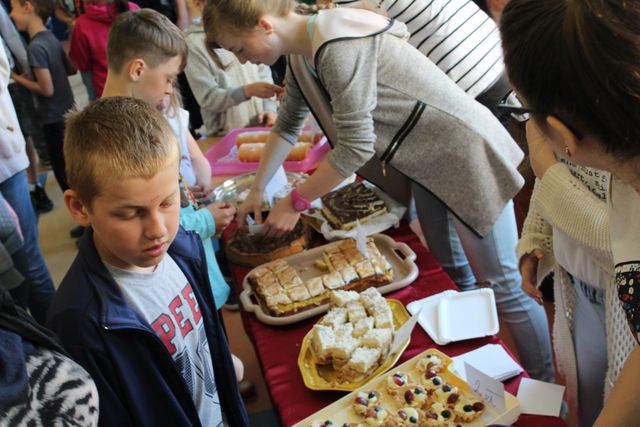
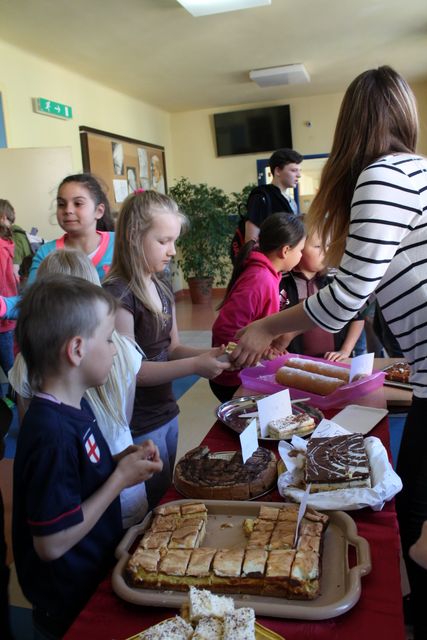
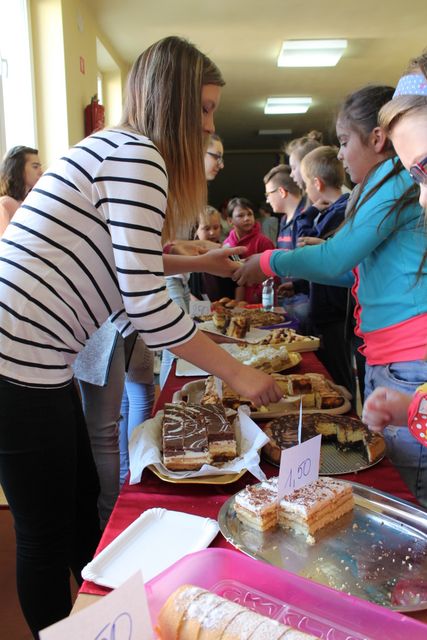
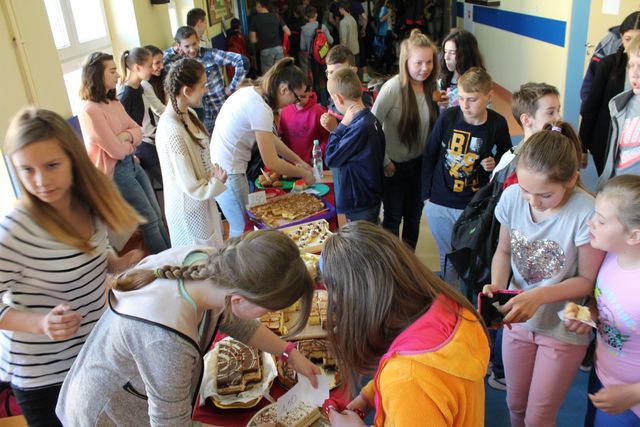
- There was a meeting with the parents, students and teachers concerning the meeting in Cassino, Italy (11th April 2016). During this meeting the details of the short-term pupils exchange were presented and discussed.
- 17th – 23rd April 2016
The second short-term exchange of the students took part in Liceo Classico Carducci Cassino, Italy. In the exchange took part the students from the primary school: Elżbieta Buczacka, Maja Soczyńska and Bartosz Łobodziński, and the students from the junior secondary school: Patrycja Dzierba and Patrycja Kostecka. All the students have taken an active part in all planned activities: attending various classes, presenting student's projects, preparing in mixed international teams the final result of the first year - multilingual book, in digital and paper form that contains all the stories written by all partner schools on the given themes. Every story will be written both in English and in the languages of the partner countries. Additionally they wrote a short assignment „How do they see the project and in what way has it helped their school mates”, which was given the Slovenian teachers.
Exactly important for the project goals was the participation in the Italian-culture-workshops in Cassino, Monte Cassino, Amalfi, Ravello and Rome and spending their free time with their foreign peers and in Italian families.
One of the teachers – Anna Klin took care of the Polish students and took part (whenever it was possible) in the short-term joint staff training prepared by the partner school Liceo Classico Carducci in Cassino. The second teacher – Beata Parada took part in all planned activities in the short-term joint staff training.
The Italian team prepared and presented a course “Modern tools and methodology in foreign languages teaching” at the teachers’ training event. The teachers from the partner schools took an active part in the lesson of antic Greek and Latin, in the workshops with the praxis of activities for teachers about teaching foreign language ( CLIL). During the meeting there was also enough time for the evaluation activities of the first year, and the discussion about the planned activities for the next year.
Both Polish teachers took part in the Italian-culture-workshops in Cassino, Monte Cassino, Amalfi, Ravello and Rome.
(Marek)
Italy - about the Italian Meeting here in Cassino - Report
April 2016 - Students from other partner countries stayed here in Cassino. The students tried the Italian culture, they tasted the famous Italian food and visited archeological monuments. We went to Rome to visit the Vatican, the Colosseum, which remains a popular tourist destination as well as an iconic symbol of Rome. They visited Montecassino Abbey, because it was the center stage in the battles during World War II. It is a working monastery and pilgrimage site but it is open to visitors.
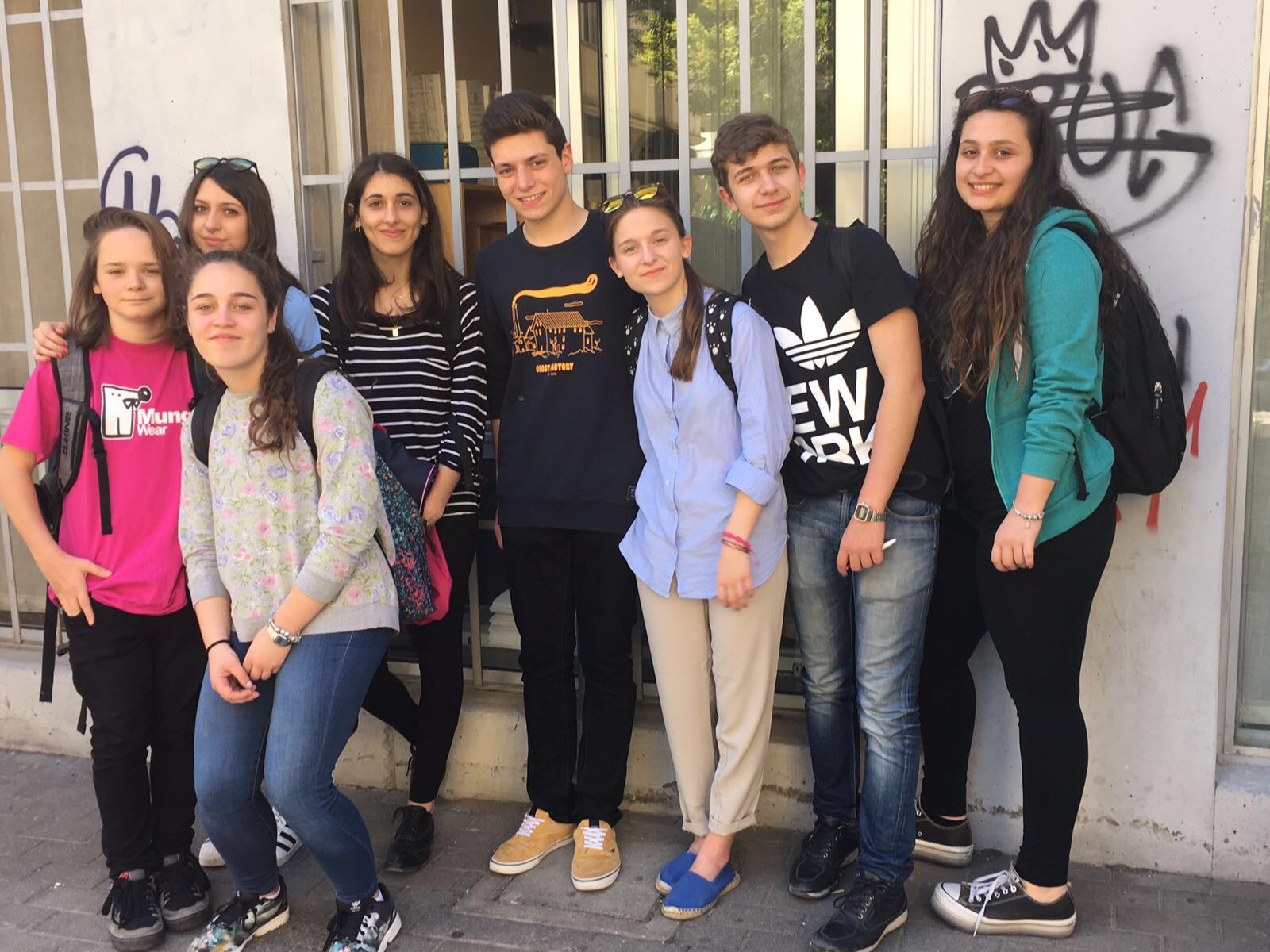
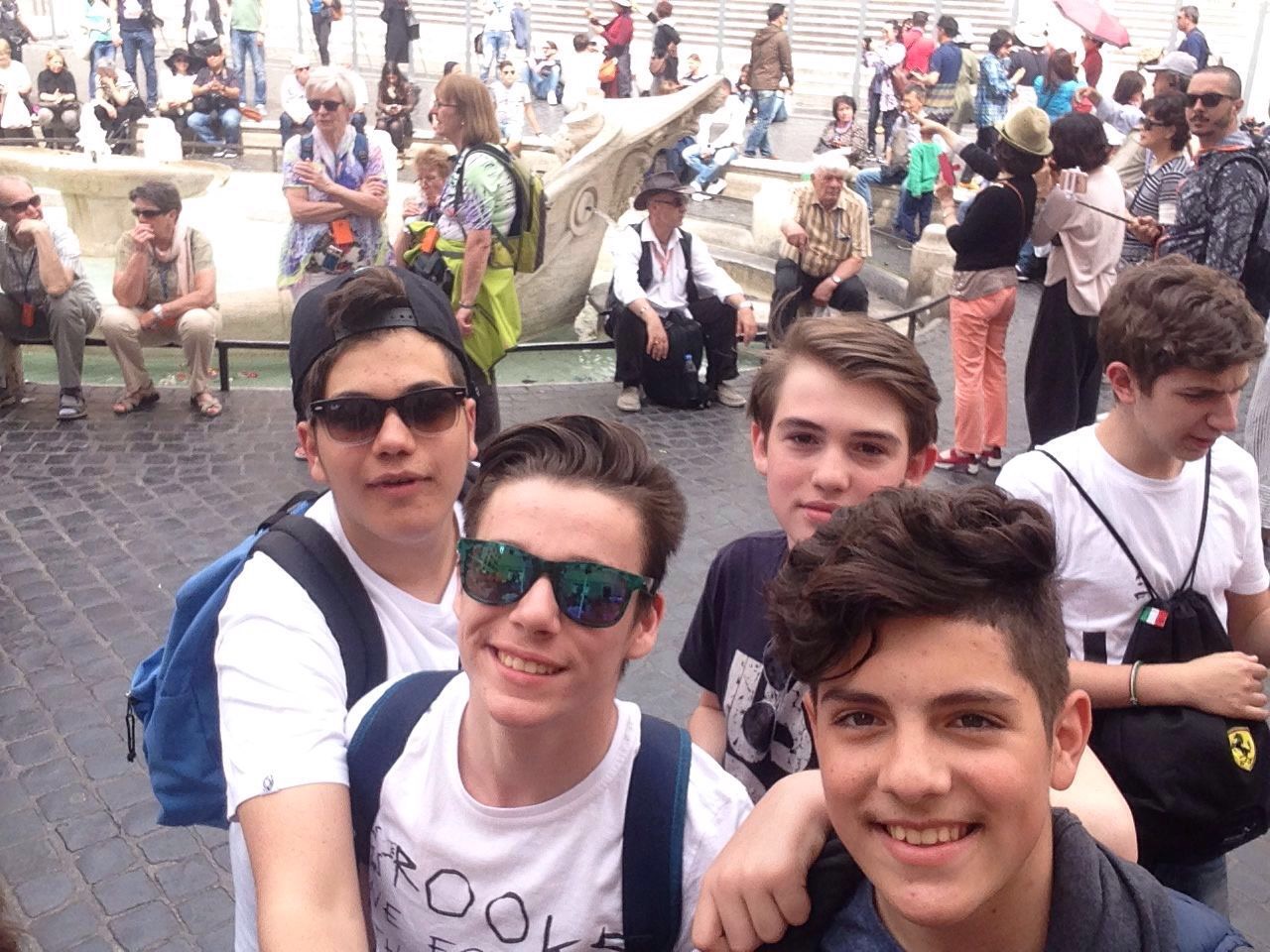
----------
May 2016
ACTIVITIES DONE BY STUDENTS AND TEACHERS OF OŠ CVETKA GOLARJA
- students wrote impressions on Italian meeting for the local magazine TRATE and school radio
-the Italian meeting was presented to other classes and staff
- students started writing compositions on the new activity NATIONAL HOLIDAYS
- project activities were on display
- the evaluation and description of Cassino meeting was put on Twinspace by the coordinator of the project
- students were actively involved in PEER LEARNING METHOD who offered help to students with learning difficulties
- a group of students recorded a short video on activities of PEER LEARNING METHOD
- three teachers wrote articles for International Symposium in Bucharest, Romania
- we hosted a diplomat from American Embassy in Slovenia where the students had the possibility to get know the main similarities and differences between Slovenia ans the USA using English language
http://www.oscg-info.si/novice/0/1231
- as we are UNESCO school we briefly represented the objectives of Erasmus+ and We can do it together to to UNESCO website
http://www.oscg-info.si/neimenovano_400700
 Poland
Poland
All prepared materials were uploaded on the project web site and TwinSpace platform.
The evaluation and dissemination of the project in our school was checked and discussed in the Erasmus+ team.
(Marek)
----------
June 2016
 Poland
Poland
There was the meeting with all the students and parents participating in the project on the 02.06.2016, during which the first year of the project was discussed and the plans for the next year were presented.
(Marek)
----------
July - August 2016
 Poland
Poland
We (students & teachers) had the well-earned summer holidays, but – as we were hosting the guests from partner schools already in October – we Erasmus + team started the preparations for the visit…..
At the meeting of Board of Teachers (29th August 2016) the school coordinator Marek Krzywicki presented the plan of visit of guests from partner schools in October 2016.
(Marek)
----------
September 2016
 Poland
Poland
The Polish students prepared the projects about the National Day and the story behind it. The most popular stories were: The Constitution Day (3rd May), Warsaw Uprising Memory Day (1st August), Polish Armed Forces Day (15th August), Independence Day (11th November). The best multimedia presentations were uploaded to the TwinSpace platform and to the website of the project.
There were a couple of meeting for the teachers from Polish Erasmus+ team.
There was a meeting with students and parents participating in the project (20th Septemeber 2016). All the planned activities for the visit in Poland were discussed in a detailed way.
(Marek)
----------
October 2016
 Poland
Poland
The visit of all “We can do it together” participants started with a special assembly, where all the partner countries were presented for Polish students, parents and local authorities. The teams from all countries were greeted by their Polish peers and both the headmistress and the deputy mayor of Rejowiec Fabryczny held short speeches welcoming all the guests in our school.
According to planned activities in the project during the week spent in Poland students from all partner countries they have presented their works “National Day – and story behind it” and taken part in joint lessons (ICT, science, mathematics, English and physical education). While meeting with their peers they discussed the different ways of helping less advanced schoolmates and other works done for the local community as volunteers. As all the students were living in the same small town, they were meeting together in the afternoons and have joint extracurricular activities, like games, visits, movies. The Polish team has organized for them numerous Polish culture workshops – they get to know how their Polish peers spend their free time (horse ridding school and outdoor activity centre in Siennica); learn about the Polish history in Zamość, Lublin and Warsaw. Especially important for the young students was the sightseeing of Majdanek Concentration Camp in Lublin, which gave the student the insight into the latest European history. The last Polish culture workshops took all the students in the early medieval time to the reconstructed Slavic settlement, where they had the unique possibility to discover their craft skills - pottery, archery, goose feather writing and producing the recycled paper or making coins. The traditional medieval dance has bond them together – regardless of the nationality, age and gender.
Although the national Agency didn’t accepted the expenses for preparing the short-term staff training (C7), the Polish team has included all the planned C7 activities for the teachers and provided the supervising persons for their students for the time of teachers training. All the teachers took part in the course “How to design a digital classroom?” and asked many questions and discuss this issue, what shows how useful this training was. This training has allowed the participants to refresh their knowledge and enhance new abilities in using computers and other modern multimedia tools (laptops, tablets, smart phones) and their use in a modern / digital classroom. Apart from this there were two working sessions during which were discussed the activities for the second year of the project as well as the impact of the first year on pupils, teachers, schools and local communities. All the teachers took part in different Polish culture workshops, together with their students – to learn more about Polish culture, history, cuisine and everyday life.
The visit has ended with a common meeting with Polish host families, students, teachers and local authorities, who prepared a farewell feast for the teachers and students from Romania, Greece, Slovenia, Portugal and Italy. It was an unforgettable week – full of activities, meetings and nice time spent with friends, who “can do it together”.
(Marek)
 Italy - about the mobility to Poland - REPORT
Italy - about the mobility to Poland - REPORT
October 2016: just come back from Poland, where we prepared short articles about our national celebrations. Italian students talked about 25th April, which is the Anniversary of Italy's Liberation Day. We had the possibility to visit Warsaw, which is the capital and largest city of Poland. Almost completely destroyed during World War II, with the 90% of the buildings razed to the ground, the city was rebuilt and is a really interesting place to visit. We also visited the Warsaw Mermaid Statue, but the most interesting place we visited was Majdanek, a Nazi German concentration and extermination camp built on the outskirts of the city of Lublin. It was an exciting experience, which broadened our mind, that everyone should do at least once in their life!
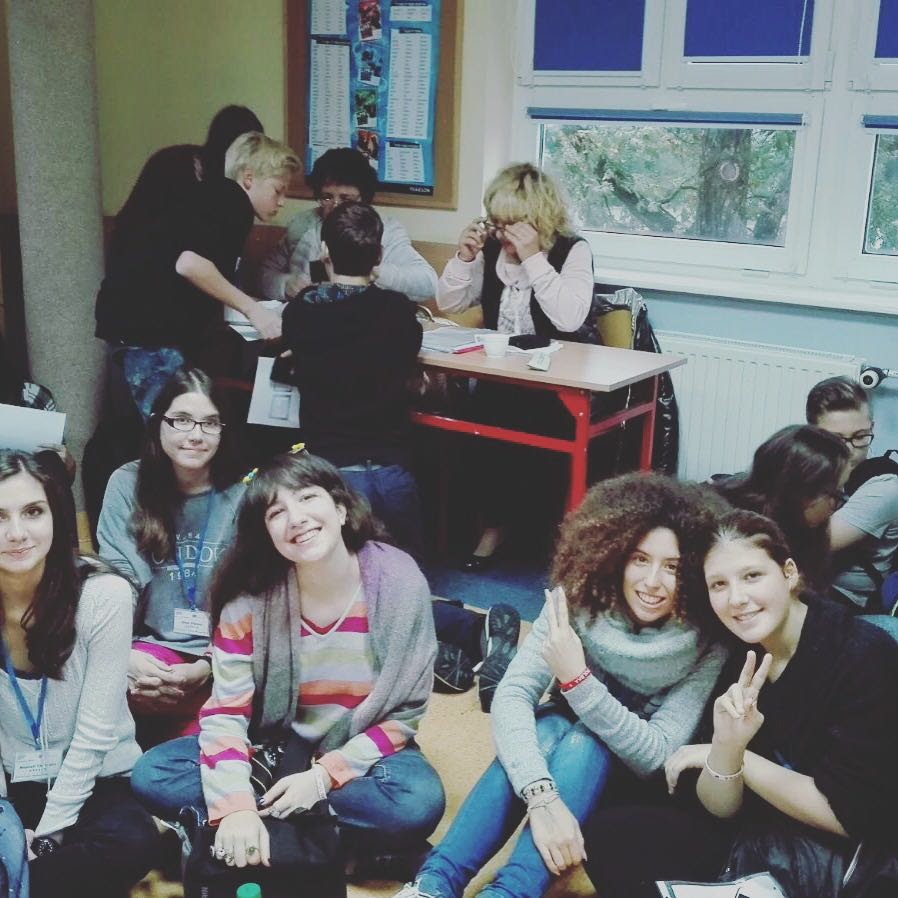
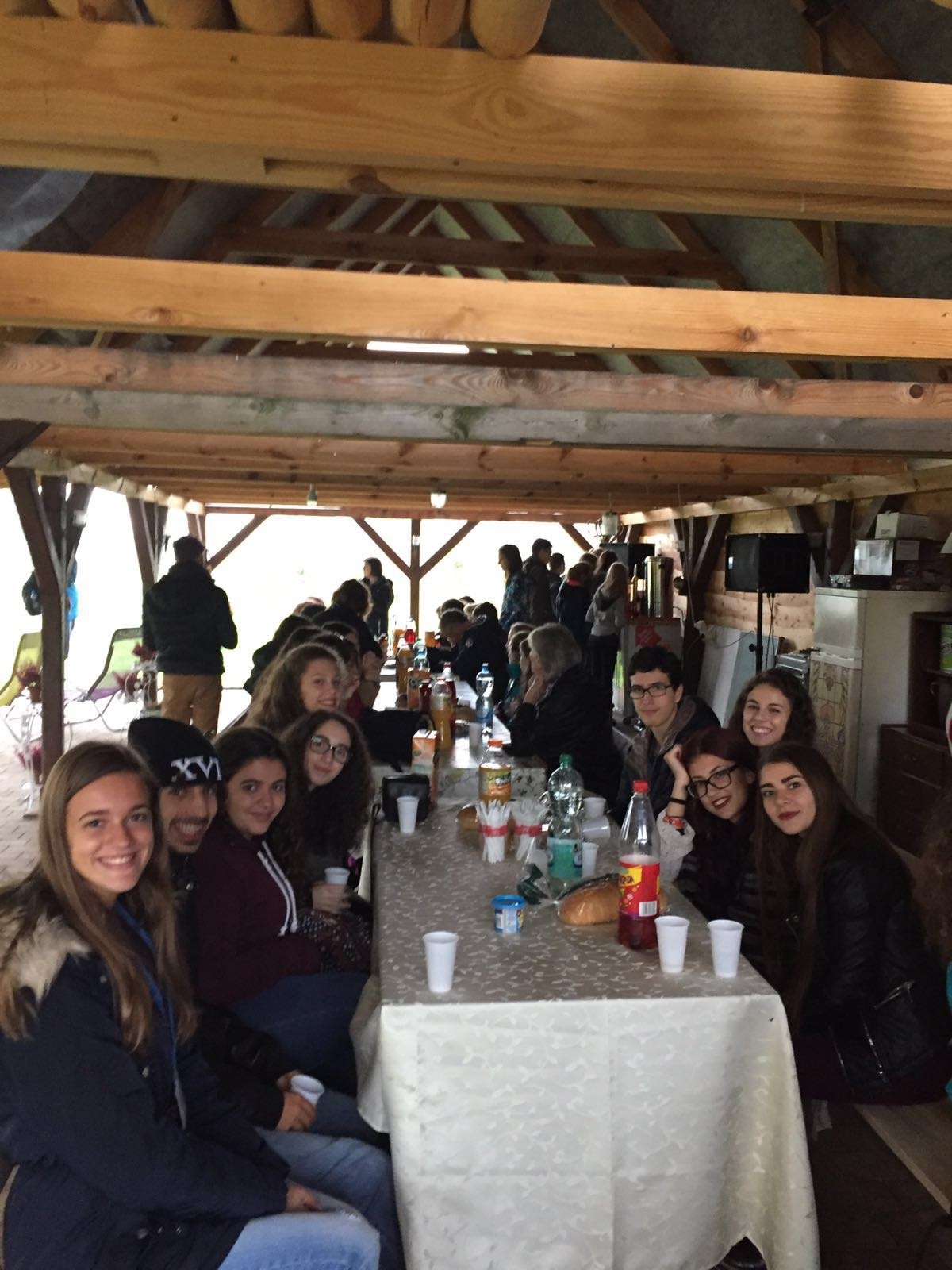
----------
November 2016
After short - term students' exchange in Poland, our students gave interviews on the Polish wonderful experience in the local news, school radio and school magazine.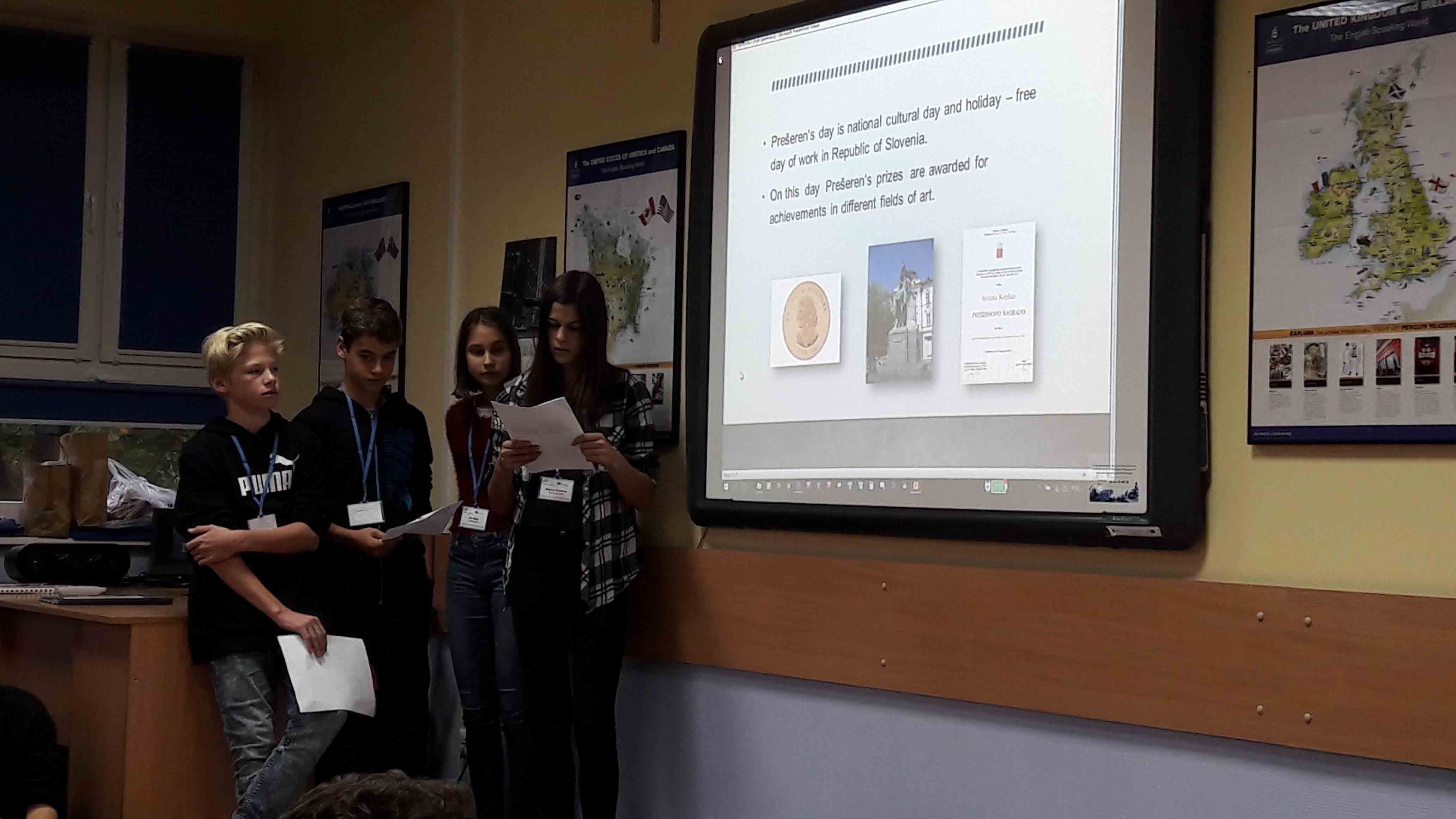
Before arrival to Poland, our students learnes some Polish phrases. It was quite easy to understand Polish in comparison to Slovene language as the are both of the same origin.
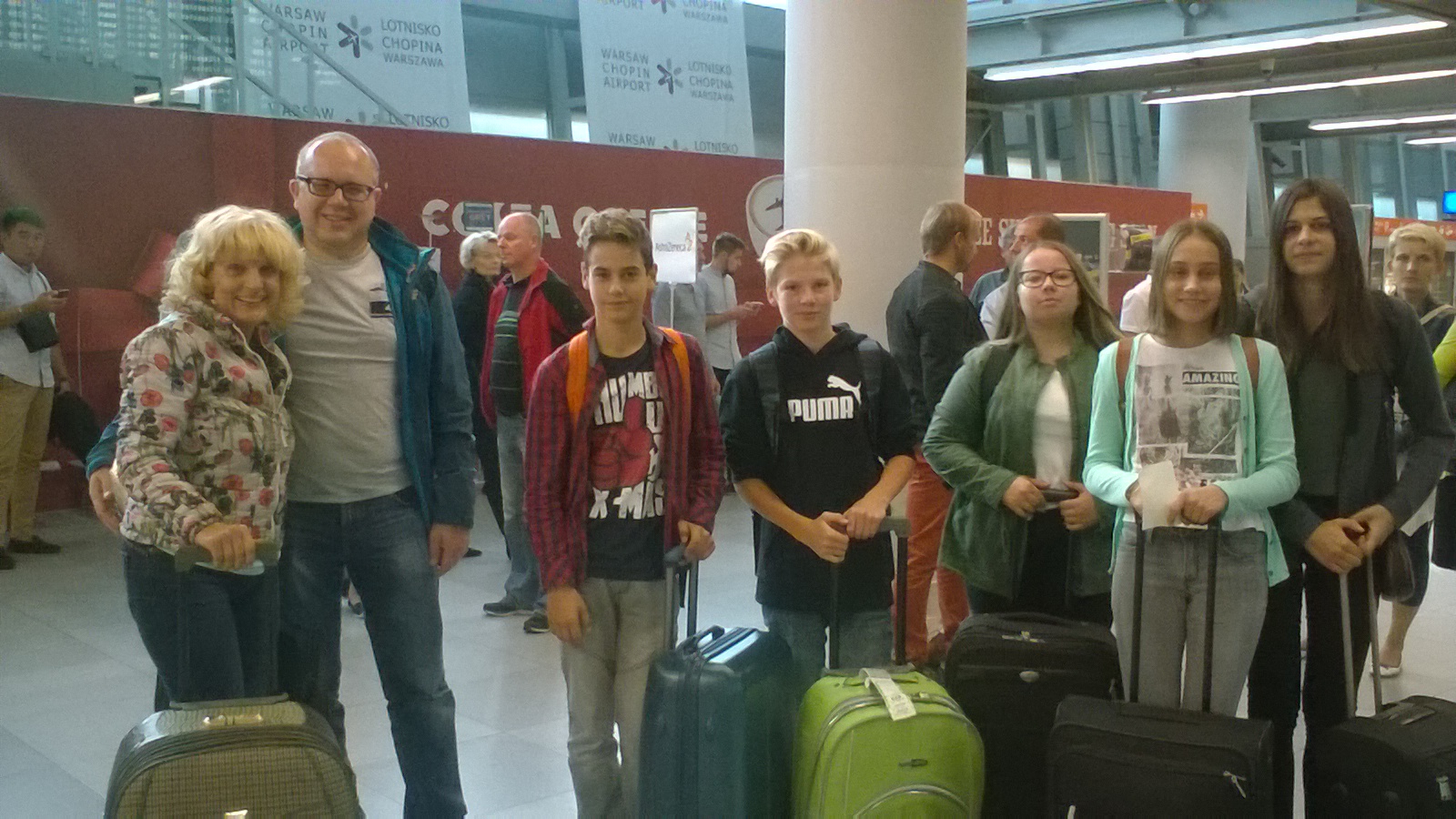
The students continued with Peer - learning method in oreder to help other mates with learning difficulties. They shot a short film on our central intelectual output which will be presented during the presentations at Slovenian meeting.
EVS Erasmus volunteer Francesco Costa visted our students and introduced them his homeland Sicily.
 Poland
Poland
- Our students worked together with the teachers and parents preparing the questionaries for the evaluation of the project, as well as a help for the next writing task - the essays about their experience as volunteers: about if and what they managed to change in their own lives and in the lives of others.
- The next charity event is annual “Penny Mountain” action, always held in November / December. The students give to special boxes all pennies (in Polish: grosze) from their houses and after two weeks of money raising the whole amount is given to the nearest orphanage (in ou case The Children’s Home in Siedliszcze).
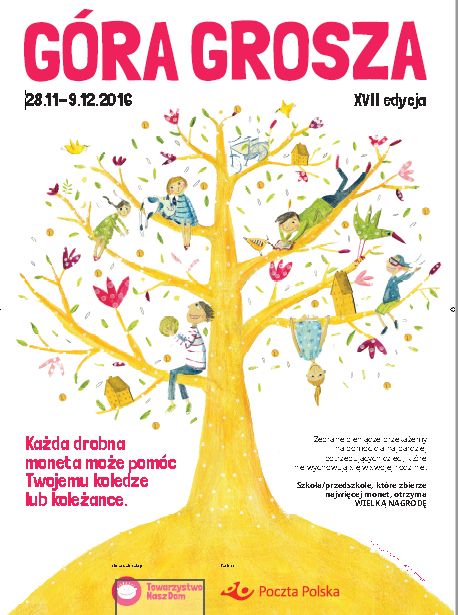
(Marek)
----------
December 2016
 Poland
Poland
- All the students got the questionaries for the evaluation of the project. They also started writing the essays.
- The next wonderful cake sale (thank a lot our great parents and students) in our school. This time the aim of raising the money was the small animal shelter in Siedliszcze.
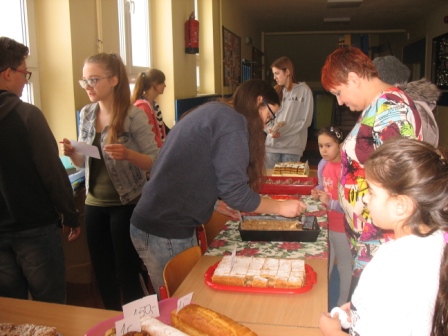
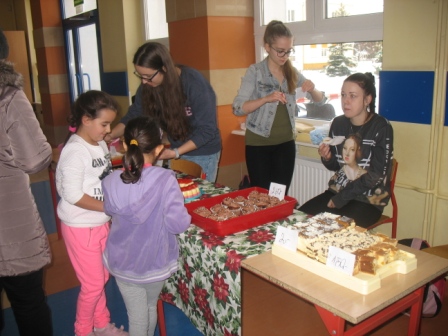
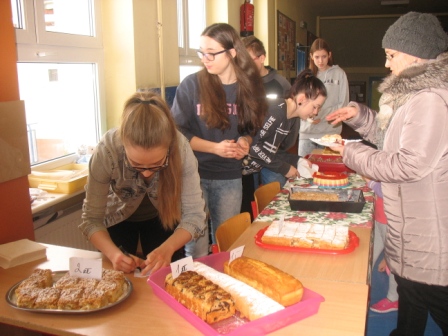
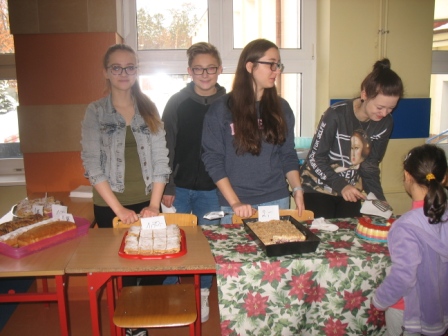
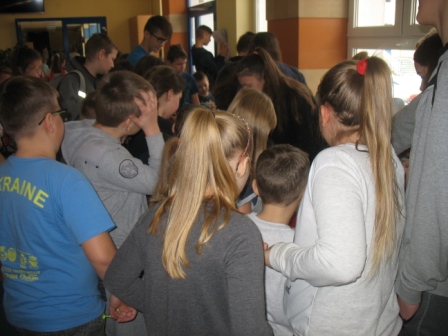
(Marek)
----------
January 2017
 Poland
Poland
There was a meeting with the parents and students (4th January 2017) about the project, its aims and the progress in its realisation. The school coordinator answered all the questions concerning the questionaries and the essays.
(Marek)
----------
February 2017
Romania
Apart from continuing the volunteering classes, we disseminated more information about the project in the Students' Council and all the children who took part in mobilities shared the unique experience with the other students:
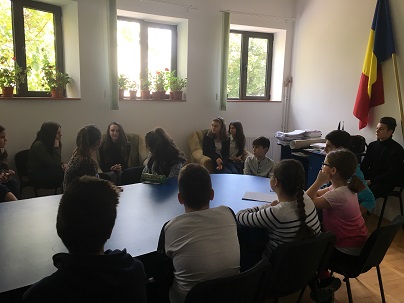
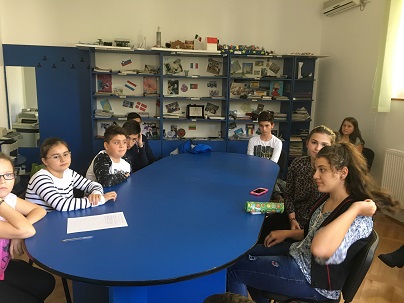
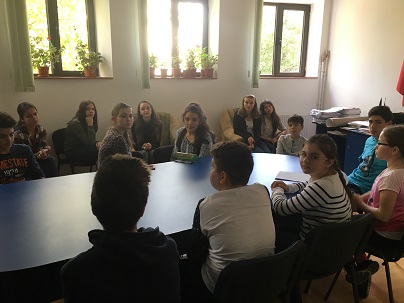
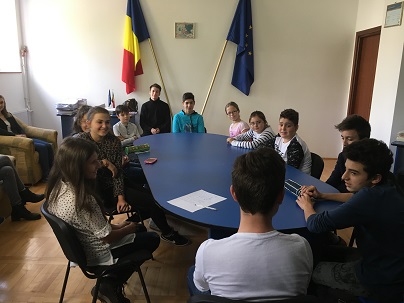
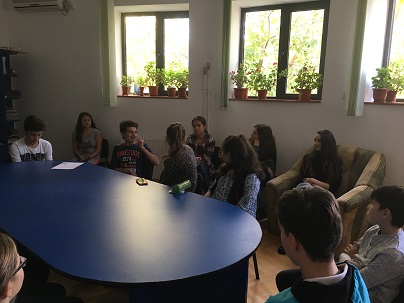
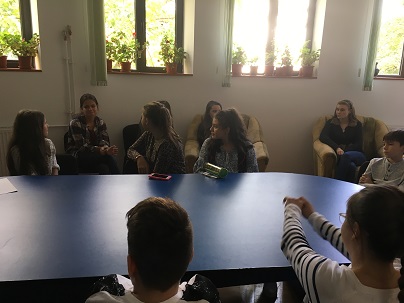
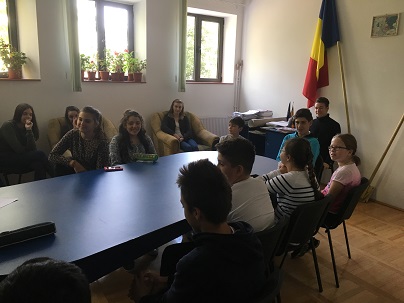
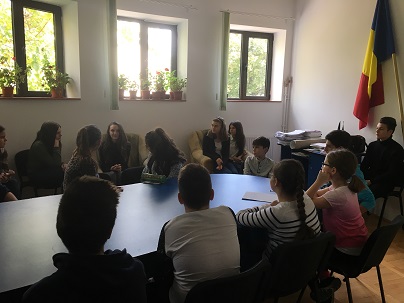
We also began prepared the mobility to Slovenia and worked on the projects about volunteering experience. It was a short month because we had the intersemestrial holiday.
(Carmen and Daniela)
SLOVENIA
The Slovenian team of teachers, students and parents were actively involved in organising and preparing the short term exchange of groups of pupls and staff - training event held in Slovenia from 20 - 24 th February, 2017. We hosted 25 pupils from 5 participating school sand 12 teachers.
We evaluate the meeting held in Slovenia very successful.
 ITALY
ITALY
The Italian teachers meet families explaining again to them the points that will be developed in the meeting in Slovenia. Some of the parents agree on the fact that some of the results of the different activities are visible in the attitude of their children either from the tutorig point of view and the student receiving the tutoring. This was proved also in the result of the evaluation of some subject matters. Some of them are sorry because their children cannot take part to the exchange because of logistic problems.
 ITALY
ITALY
20th – 24th February 2017
The Italian team of students and teachers took part in the fourth short-term exchange in Skofja Loka, Slovenia. The students participating in the exchange were Maria Antonietta Giancane, Tomasso Caterina, Giuseppe Di Nallo, Beatrice Golini Petrarcone, Erminia Gragano. All the students were involved and had an active part in the activities planned by the Slovenian team: they attended various classes, presented their projects about their experiences of volunteering, prepared in mixed international teams a multimedial presentation about the Slovenian hosting city, Skofja Loka, and translated in their national language a poem about "Cooperation".
Cinzia - Sabrina
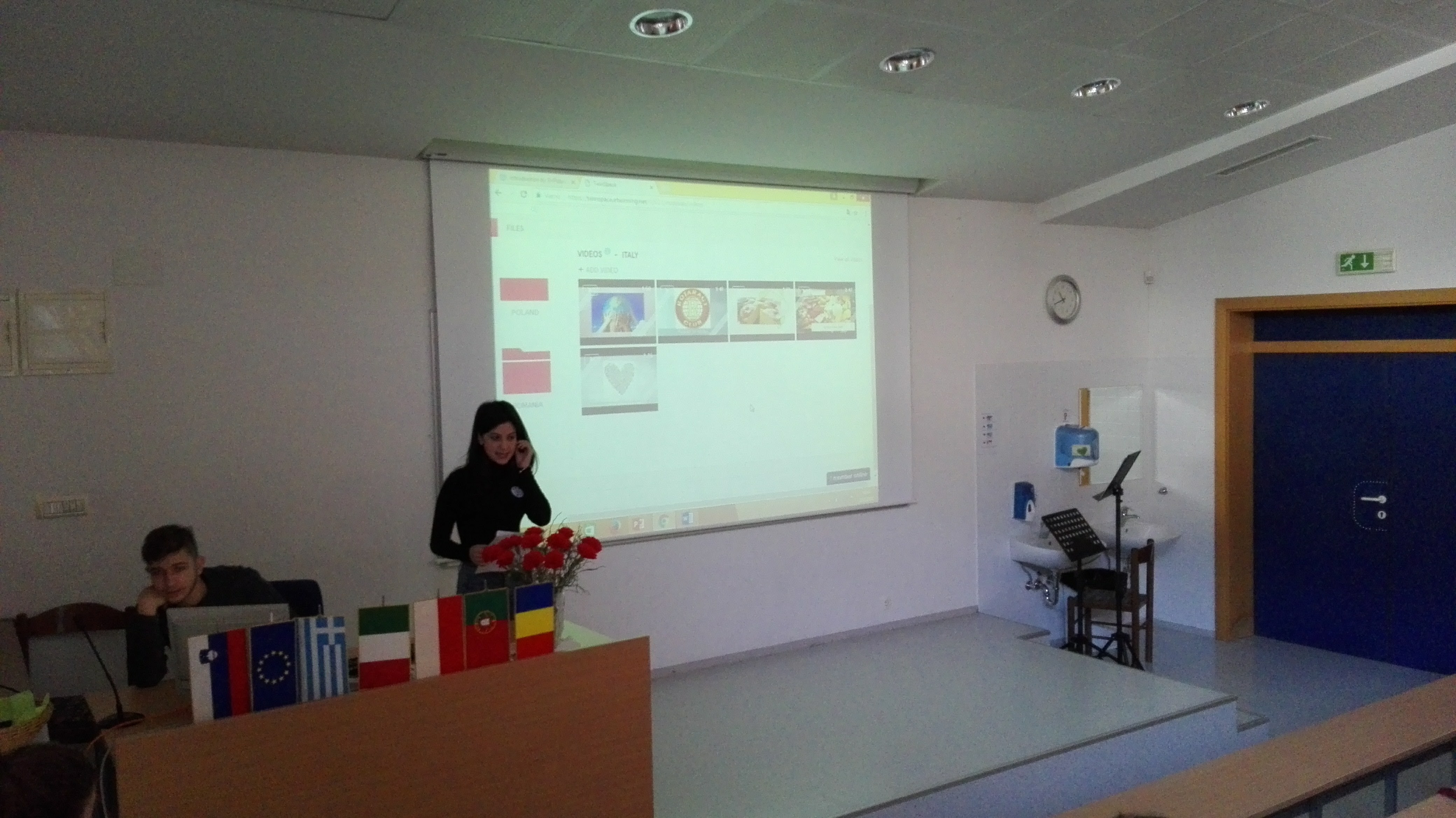
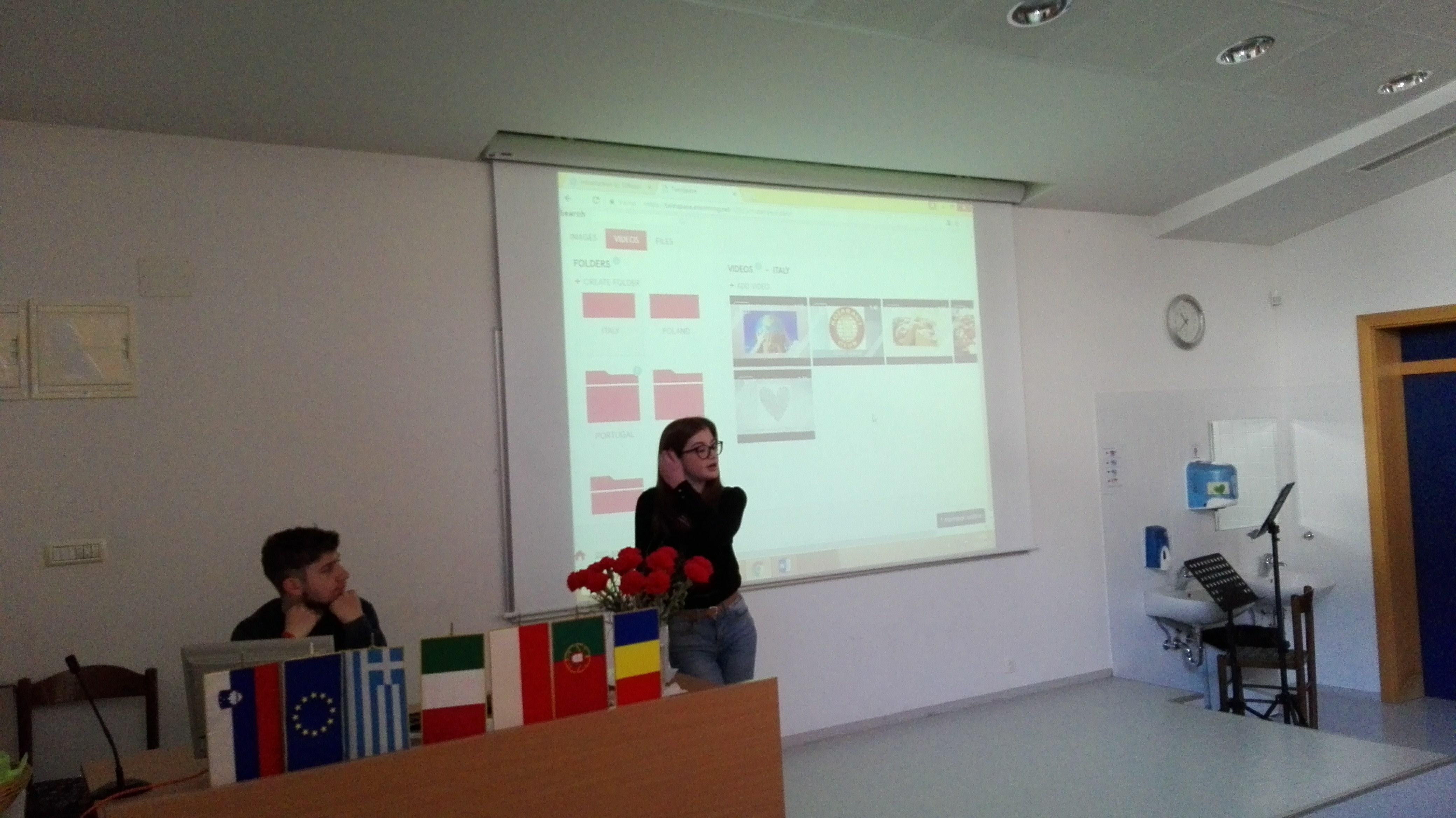
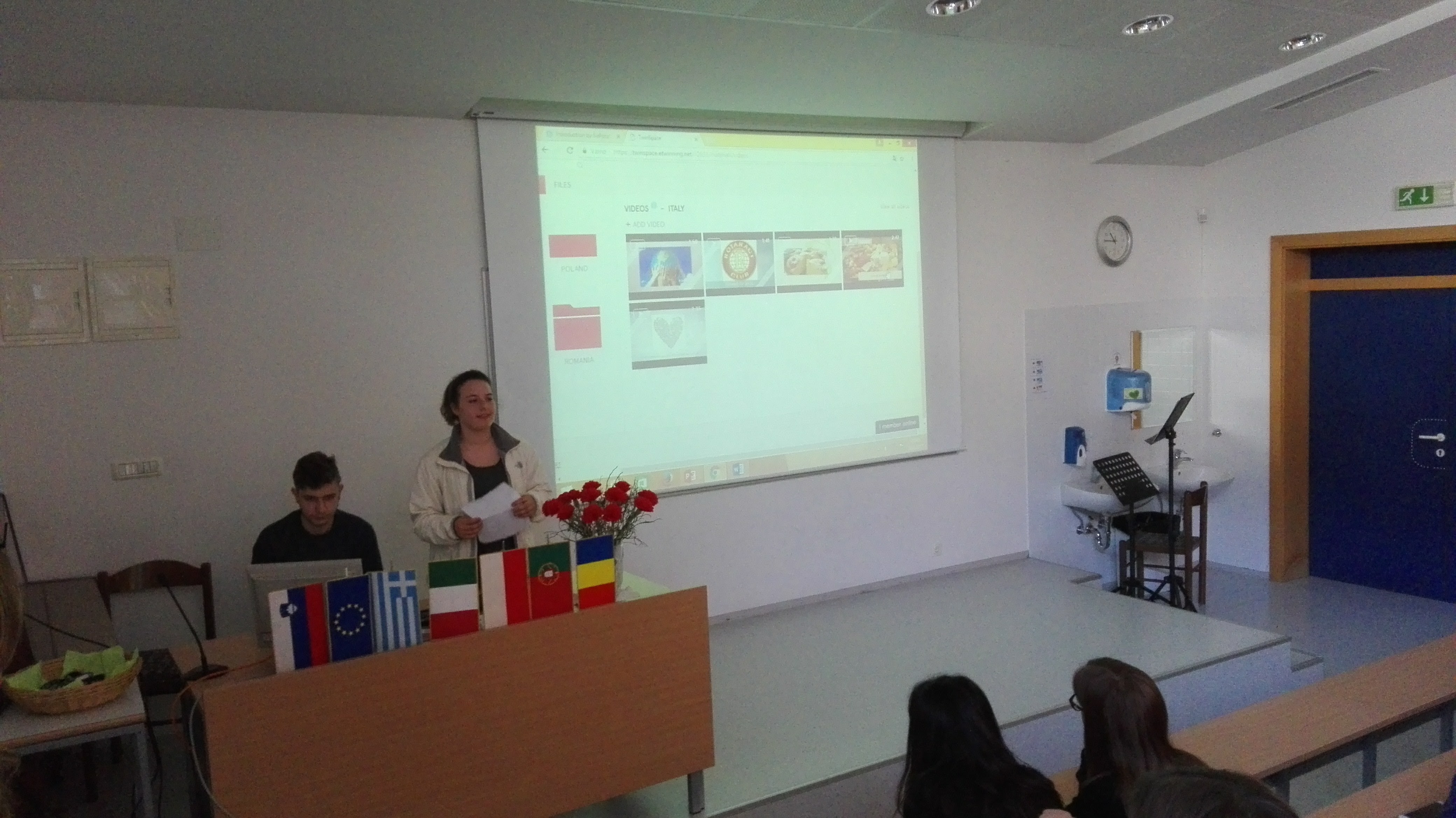
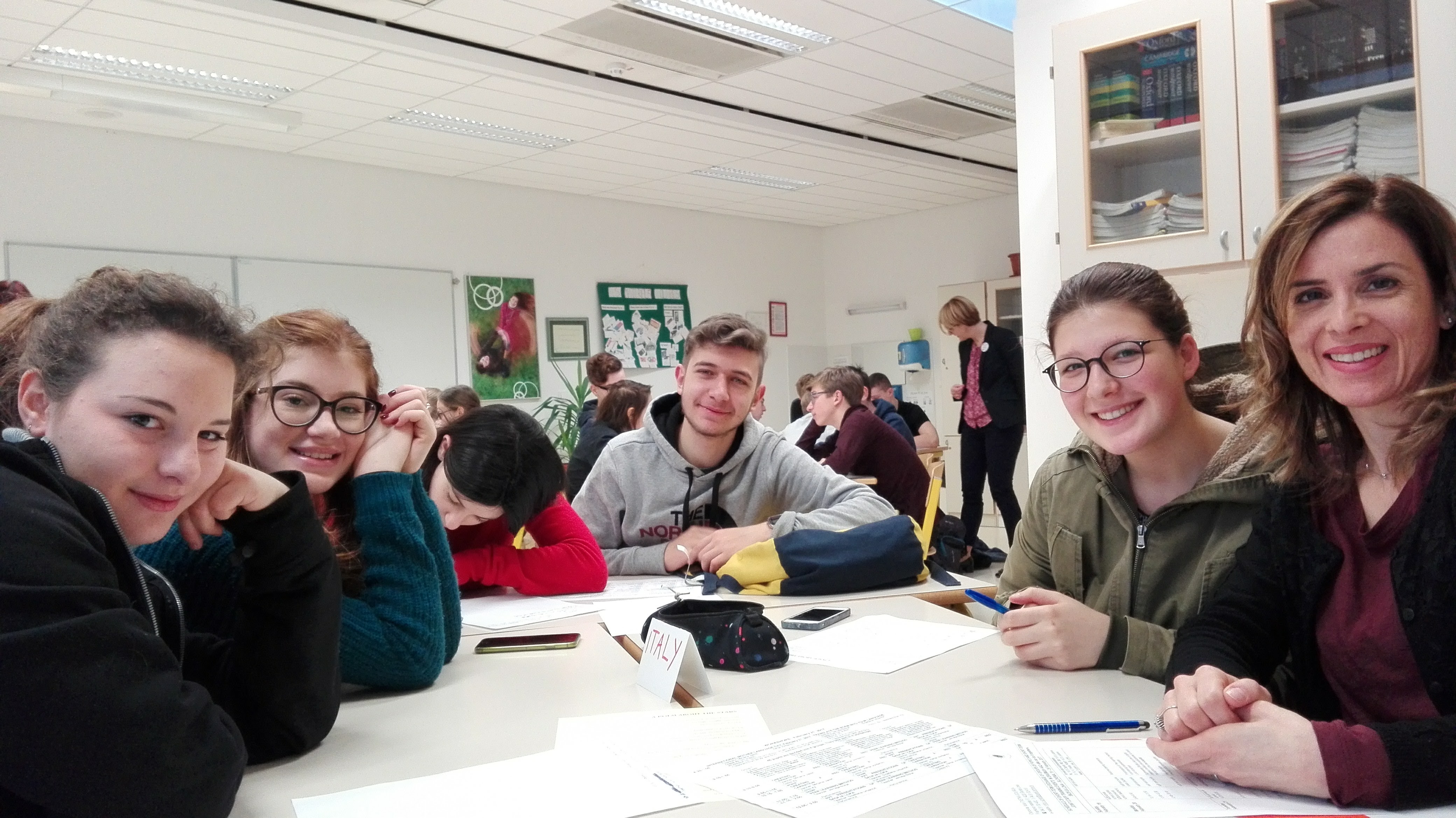
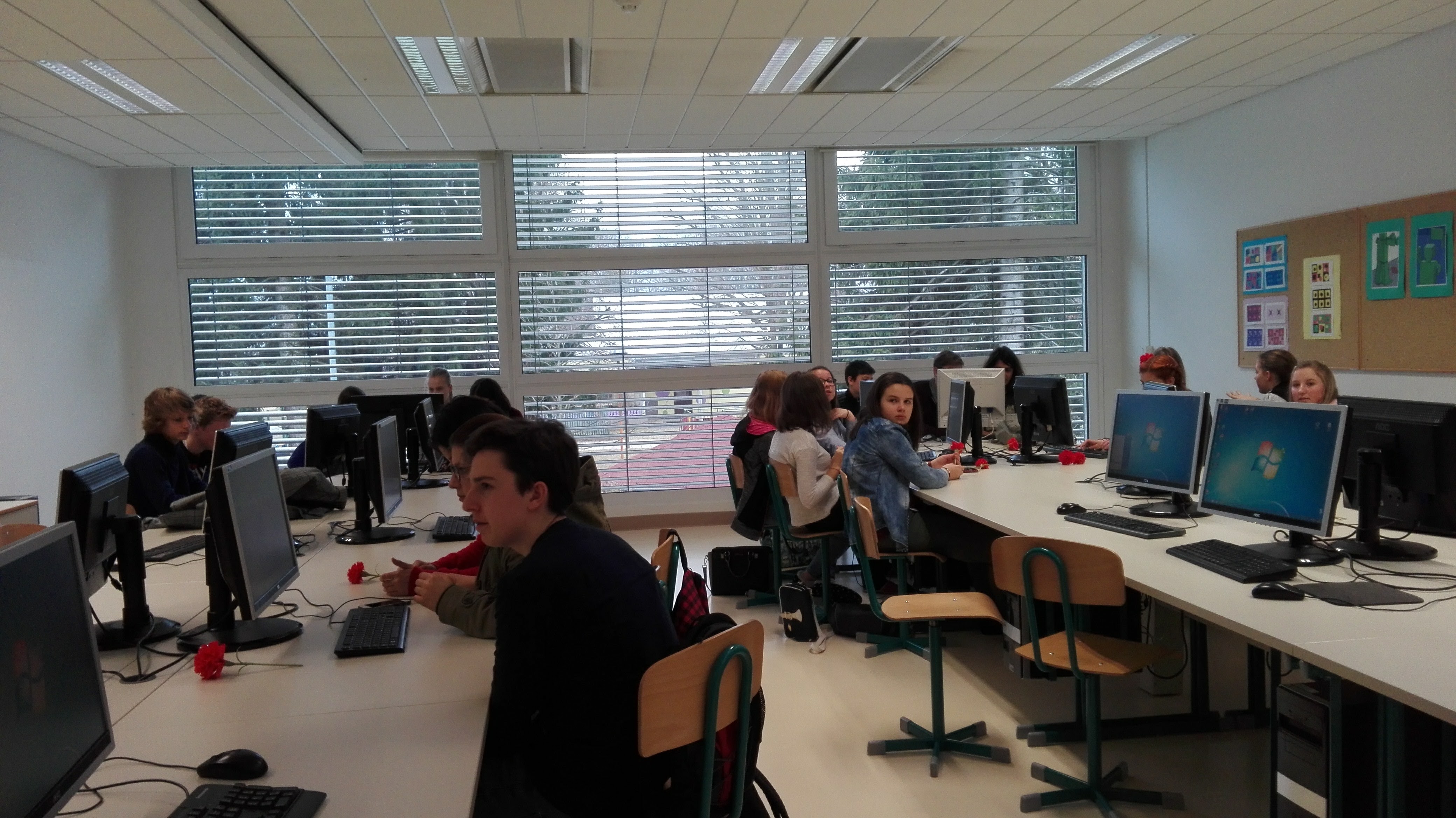
 Poland
Poland
- There was two short meetings with parents (6th and 15th February 2017) about the short-term visit in Slovenia and discussing questionnaires for students and parents participating in the project.
- The Polish students wrote short write essays about their experience as volunteers in their school, showing how much this project has changed the lives of helping students and those students who got their support. Those essays were presented in Slovenia.
- 19th – 25th February, 2017 the Polish team (students: Stanisław Nowosad, Ameilia Oleszczyńska, Zuzanna Parada, Zuzanna Posturzyńska oraz Mikołaj Krzywicki and teachers: Aneta Podgórniak and Marek Krzywicki) visited our partner school in Škofja Loka – Slovenia during the short-term exchange of groups of pupils and short-term joint staff training event. During the stay all students from every partner country have presented their volunteering experiences while using the peer learning method, prepared the multimedia presentation of Škofja Loka, took part in translating workshops and prepared paper carnations. The teachers took part in some training events like: “The use of various ICT media in English class”, translating workshops and other project activities. The hospitality of Slovenian families and teachers, the beauty of the country, richness of culture was presented during the culture workshops in Škofja Loka, Postojna cave, Ljubljana and Bled Lake.
(Marek)
----------
March 2017
SLOVENIA
Our students and teachers gave some interviews about the meeting in Slovenia to two local newspapers. The students wrote their experiences for the school magazine and for the school's website.http://oscg-info.si.
 ITALY
ITALY
During the "Assemblea di Istituto" held on 22nd March the students involved in the project have given wide exposition and explanation of the work they have made up to now. They have shown pictures and slides connected to the different meetings and the results up to now.
 Poland
Poland
In our school the youngest students have special lessons about the volunteering and helping other people and their schoolmates. The students draw some pictures to present different ways of helping people and e.g. homeless animals. Here are some examples of their pictures.
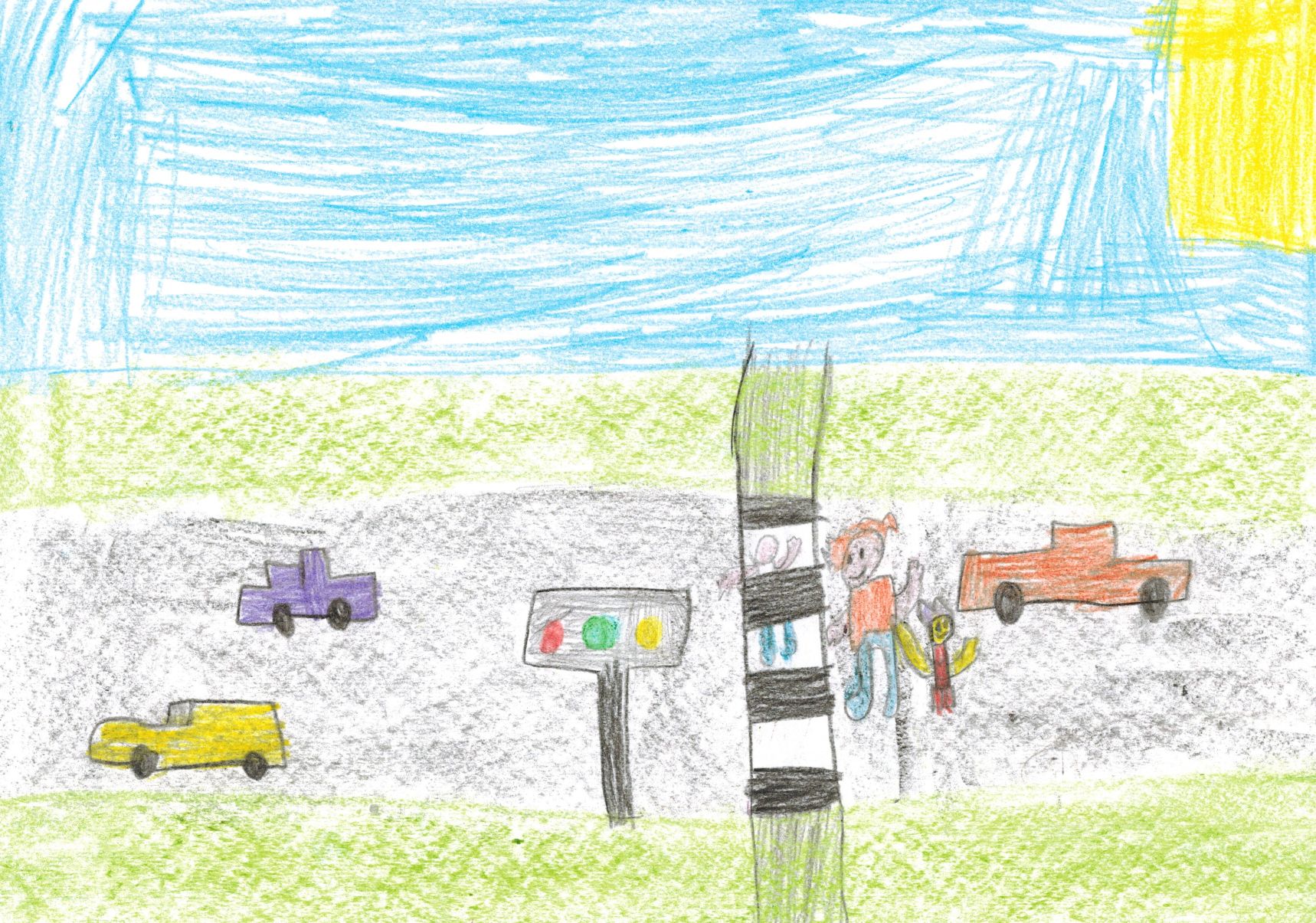
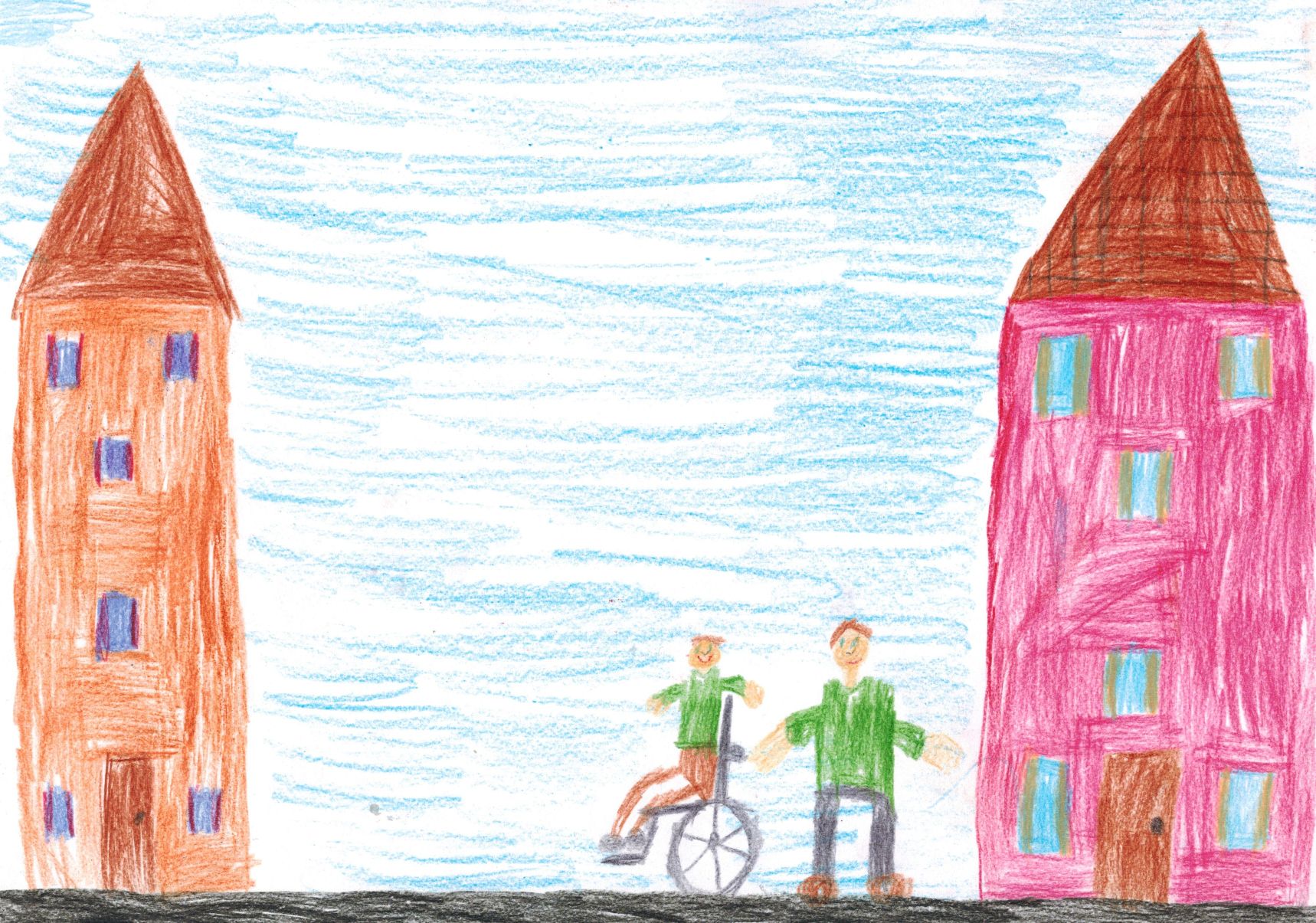
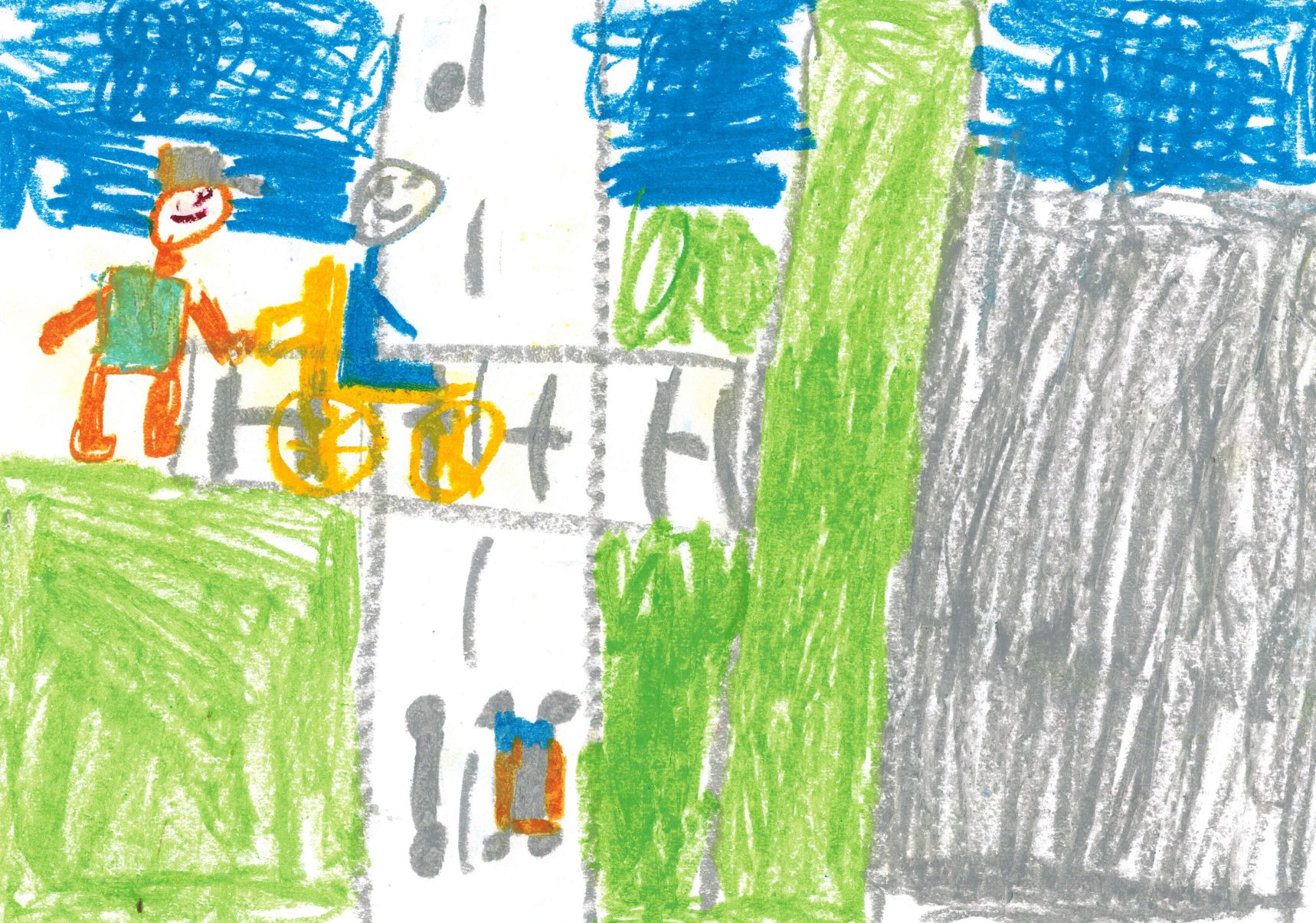
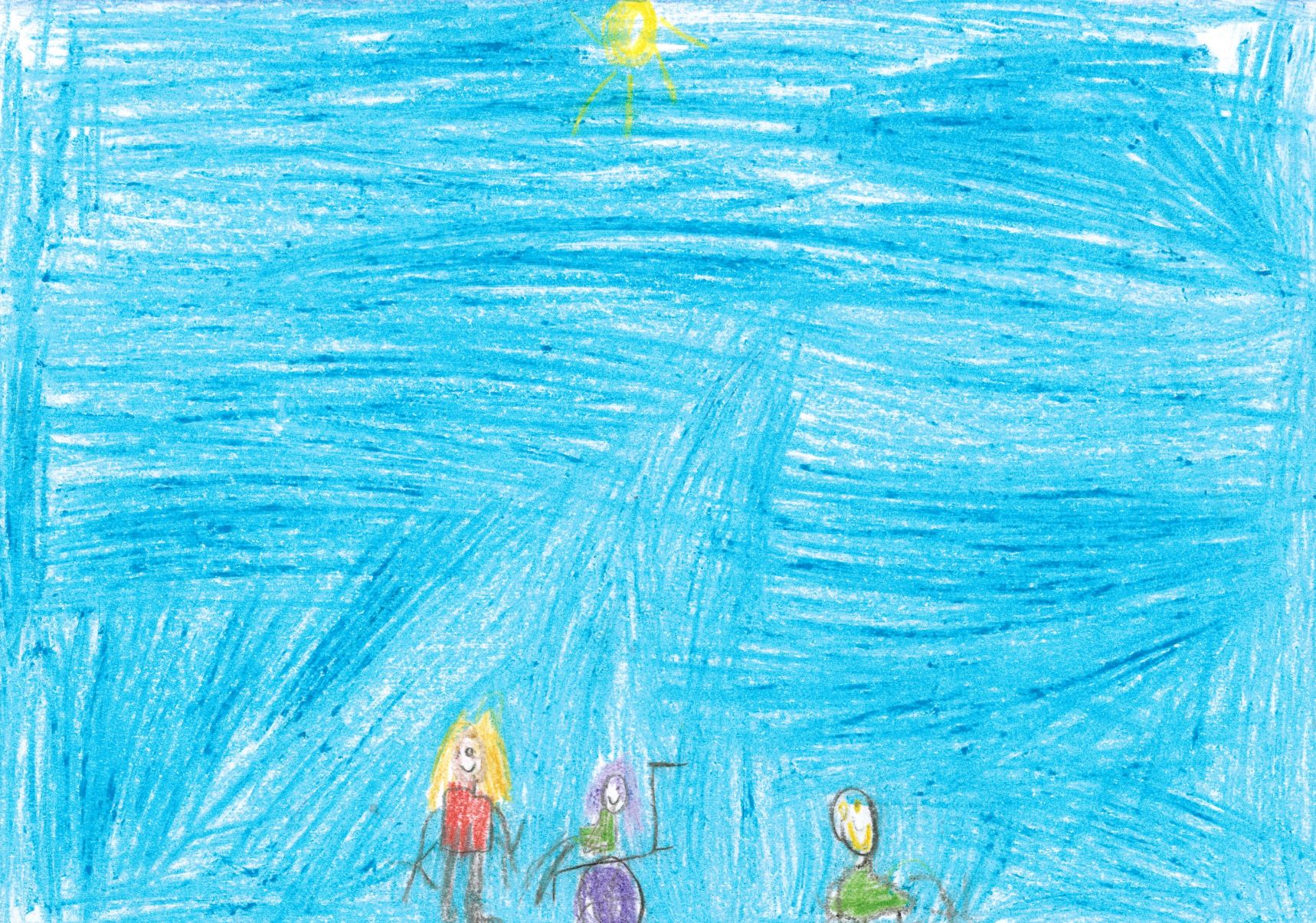
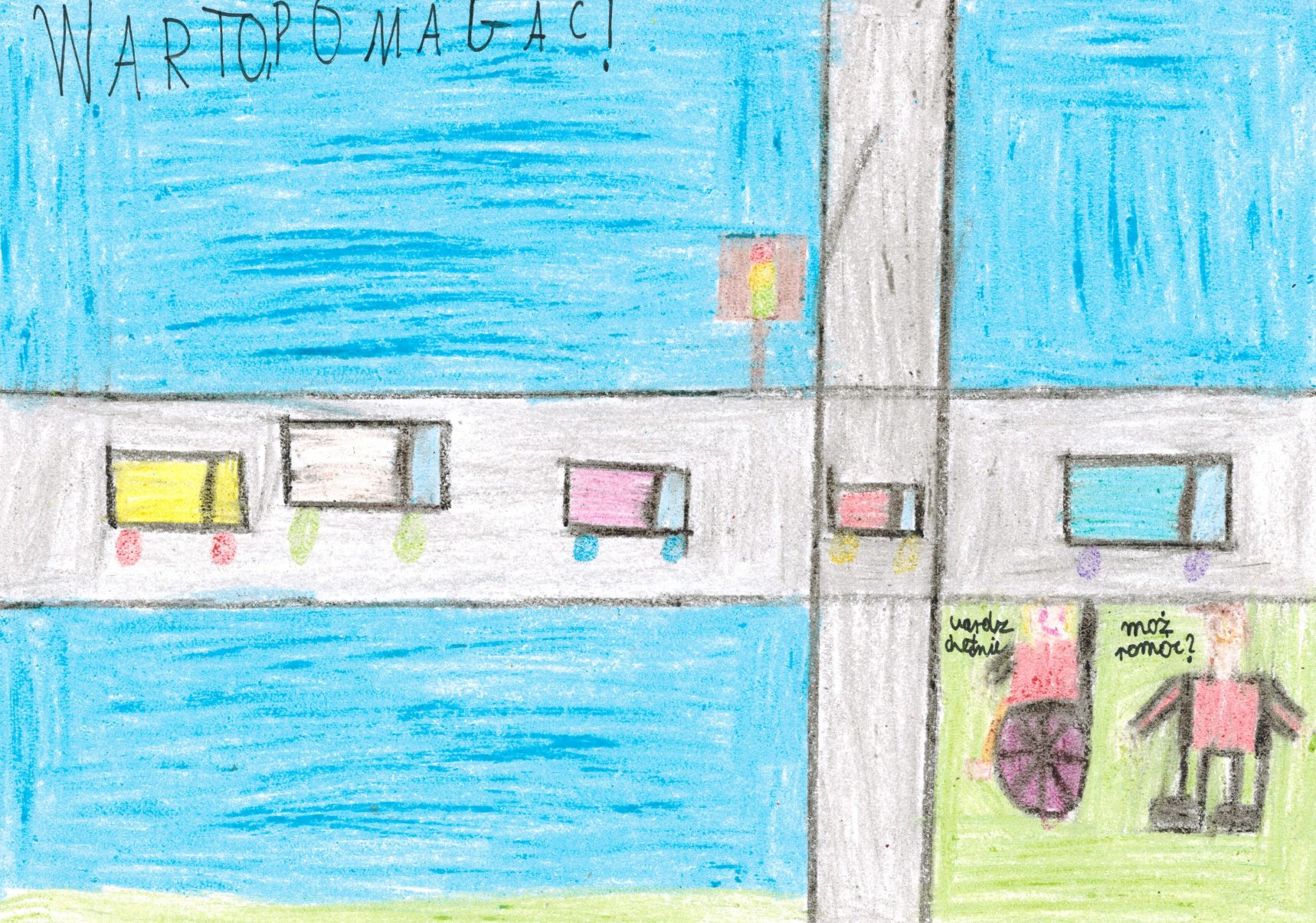
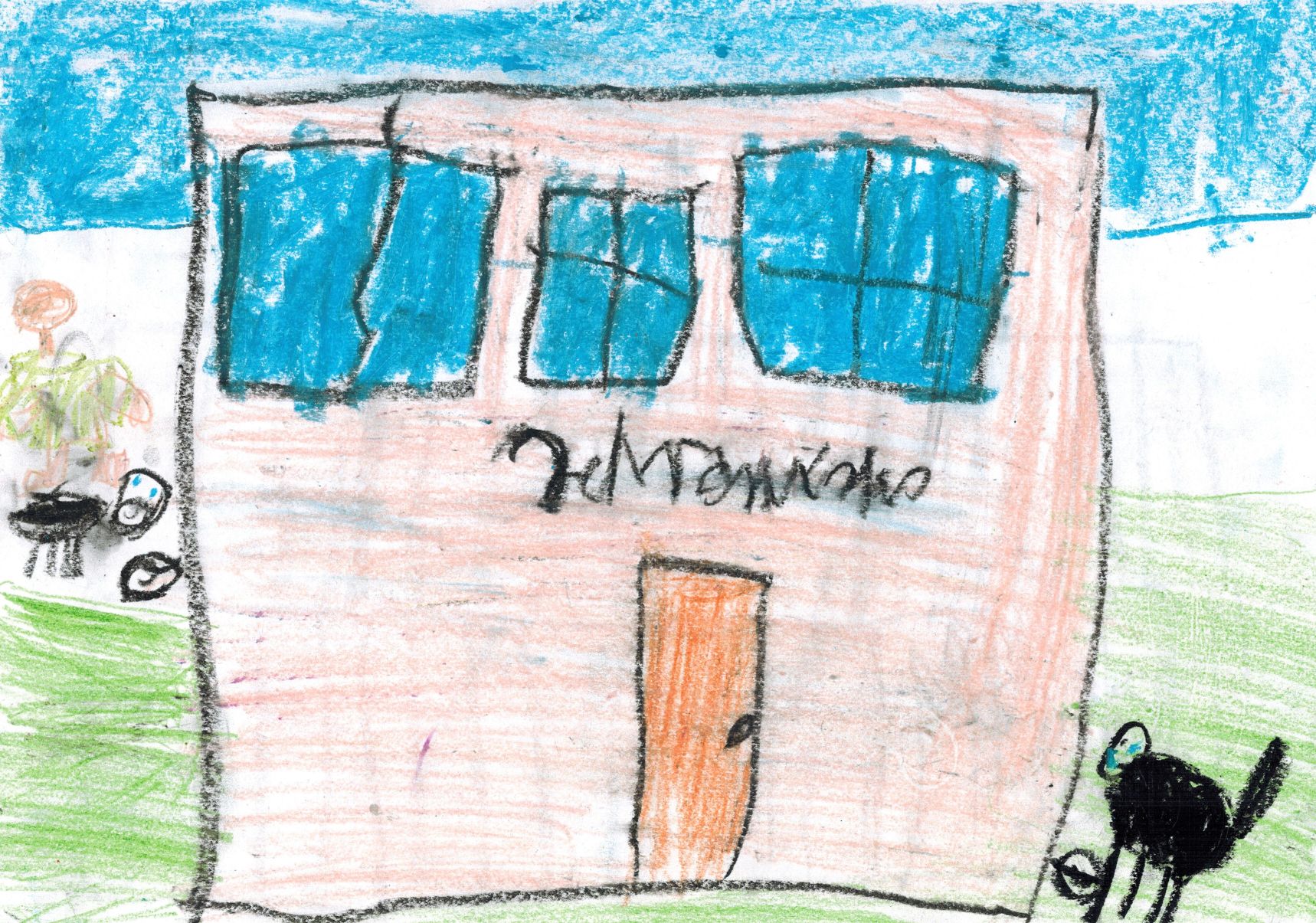
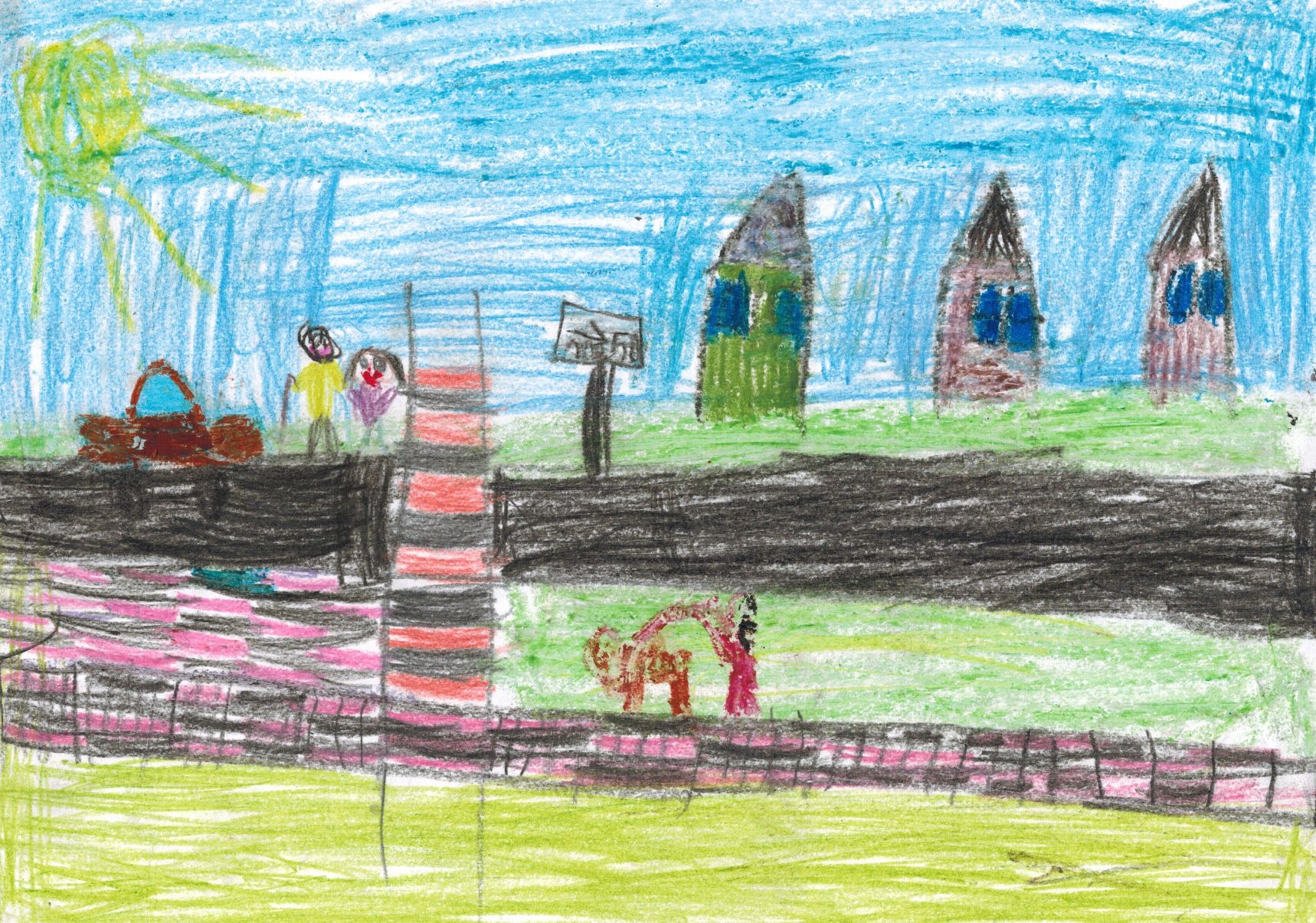
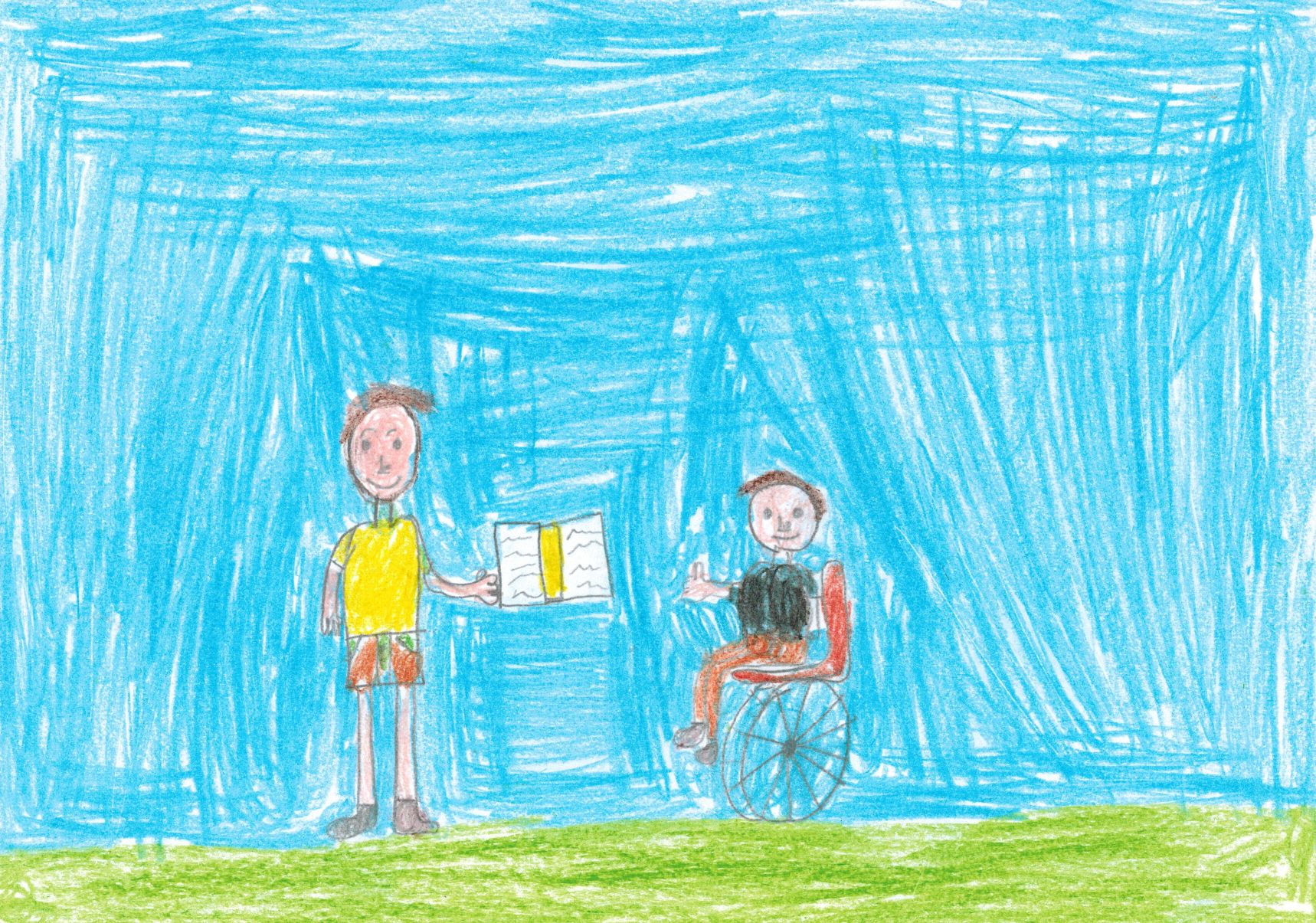
(Marek)
----------
April 2017
 ITALY
ITALY
Our students are still working on peer learning activities
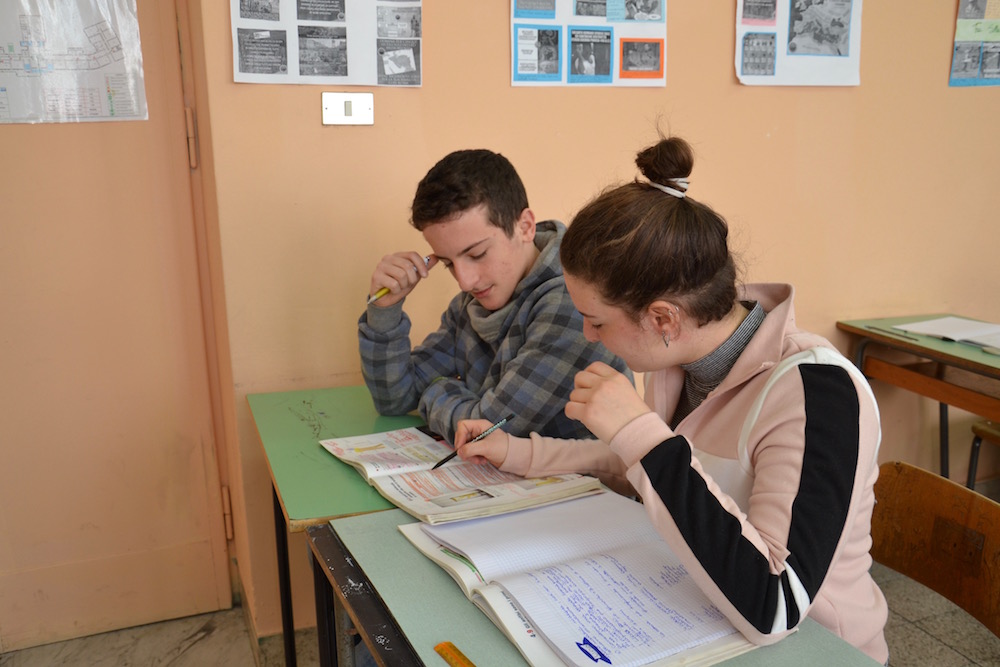
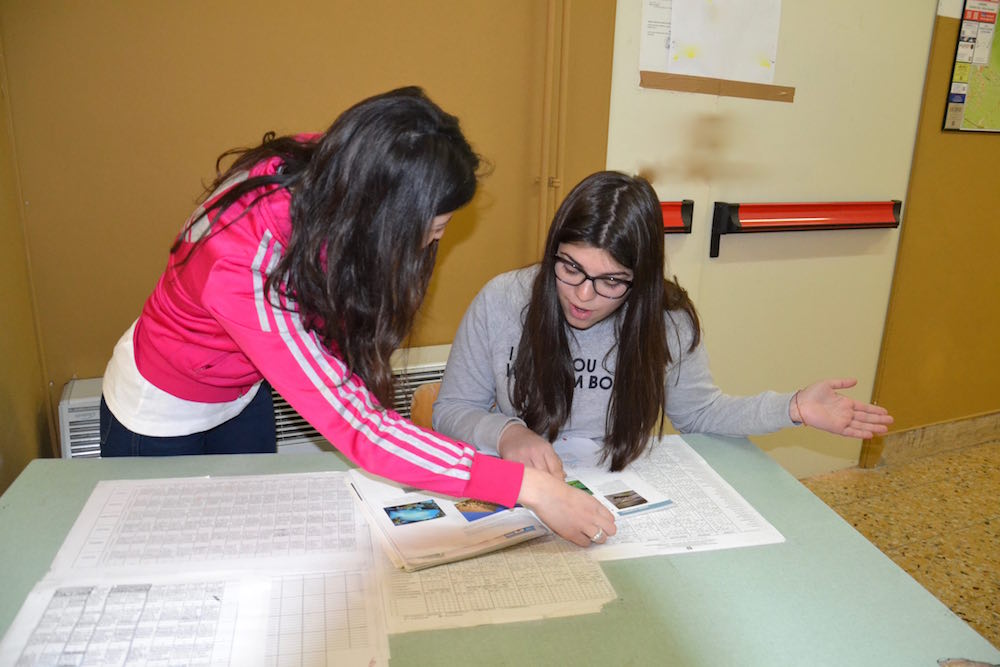
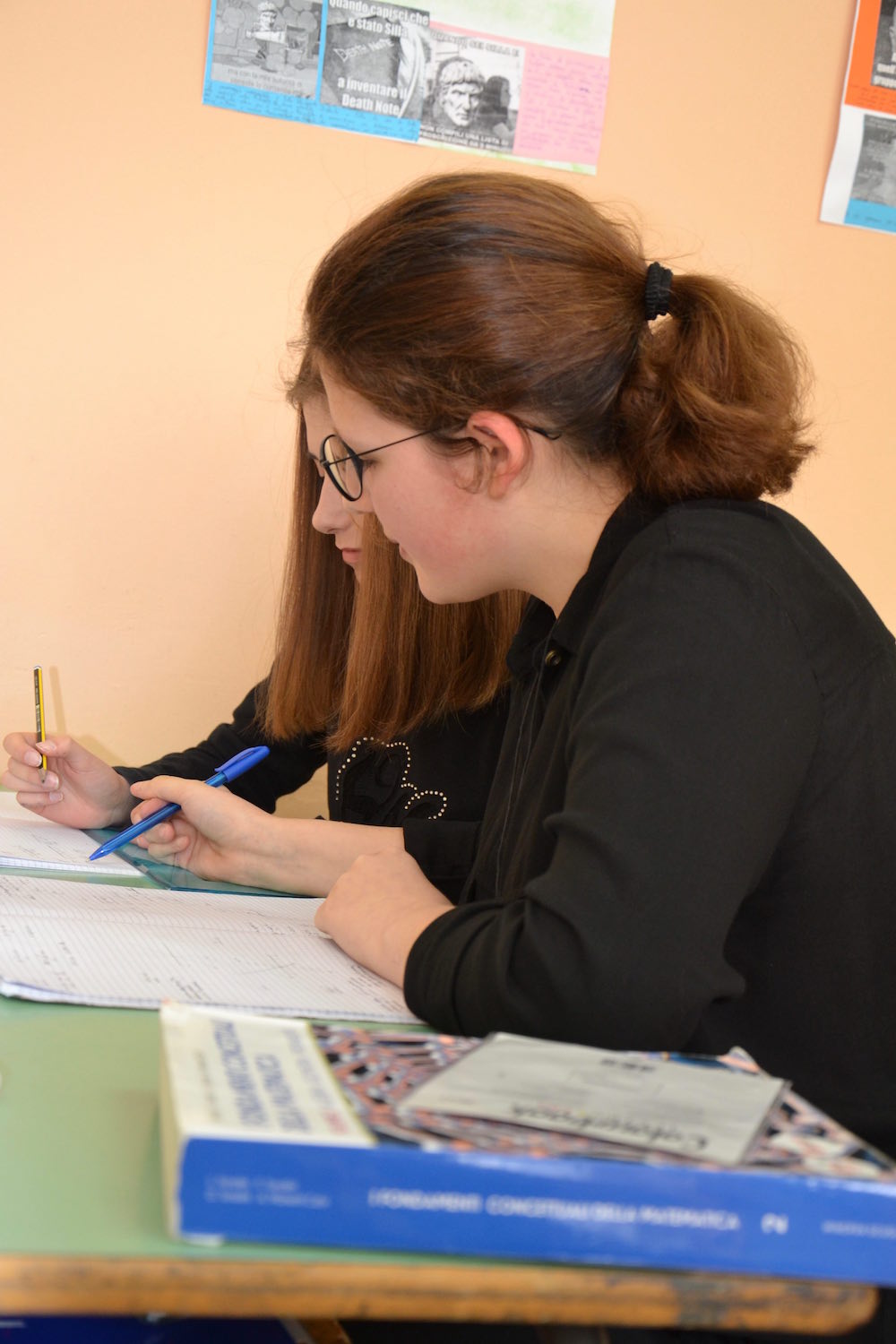
 Poland
Poland
- On 3rd April there was the next meeting with parents of students travelling to Portugal.
- 23rd - 29th April, 2017 – in the last visit during the project - the short-term exchange of groups of pupils - took part five students (Jakub Kucharski, Adrian Soczyński, Oliwier Bielecki, Jakub Kowalski and Aleksandra Andruszczak) and two teachers (Anna Włodarczyk and Marek Krzywicki) in Fundăo (Portugal). Students and teachers from all partner countries were involved into science activities in the labs, students attended different classes while teachers were working on the questionnaires for the final evaluation. All the teams were presenting their contribution on the final product – the multilingual book about the National Day and the story behind it as well as the examples of volunteering experiences while using the peer learning method. There were numerous culture workshops in Fundăo, Aveiro, Lisbon but the highlight of the whole stay was the visit in Fatima. The wonderful weather, hospitable host families, students and teachers created the unforgettable memories, which we brought back to Poland.
(Marek)
----------
May 2017
 Poland
Poland
- The Polish teachers prepared their results of intellectual output, send it to the Romanian coordinator and uploaded to the TwinSpace platform.
- The last lessons using the peer learning method took part in May 2017. The really strong impact which it have on our weaker students caused that the our headmistress Alicja Dorosz started looking how to include this method into after-school activities and this way extend the project.
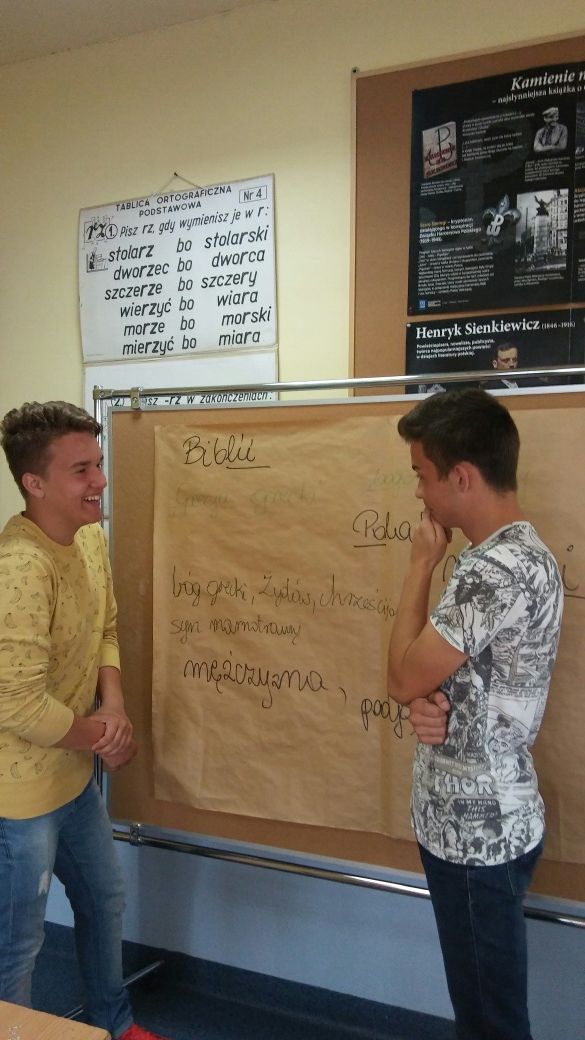
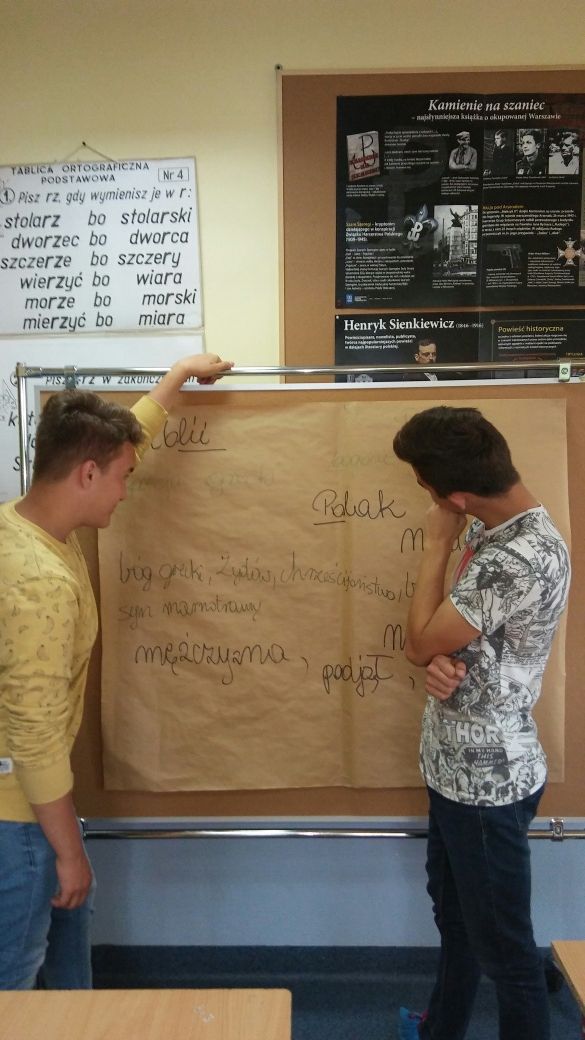
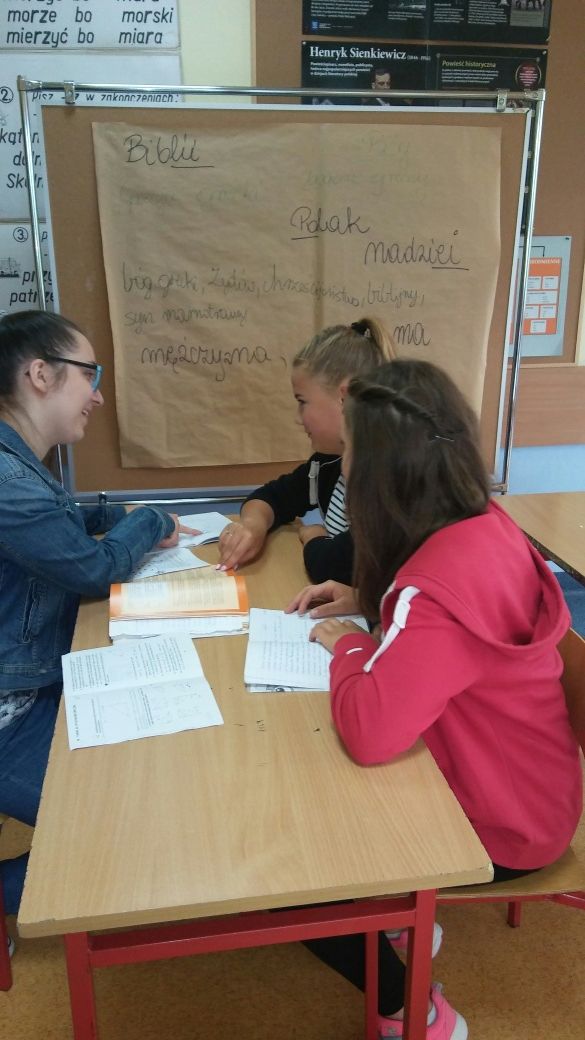
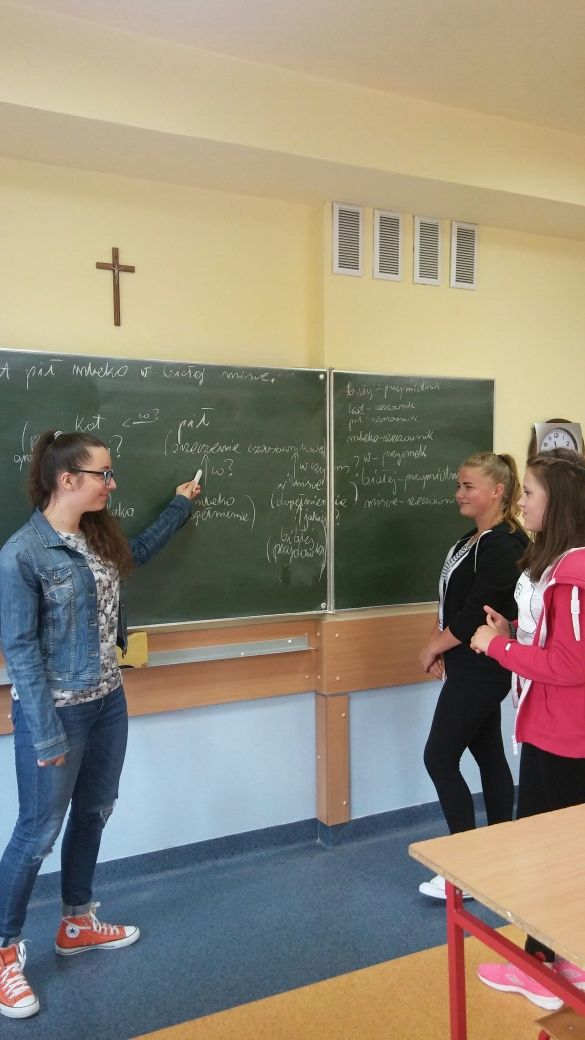
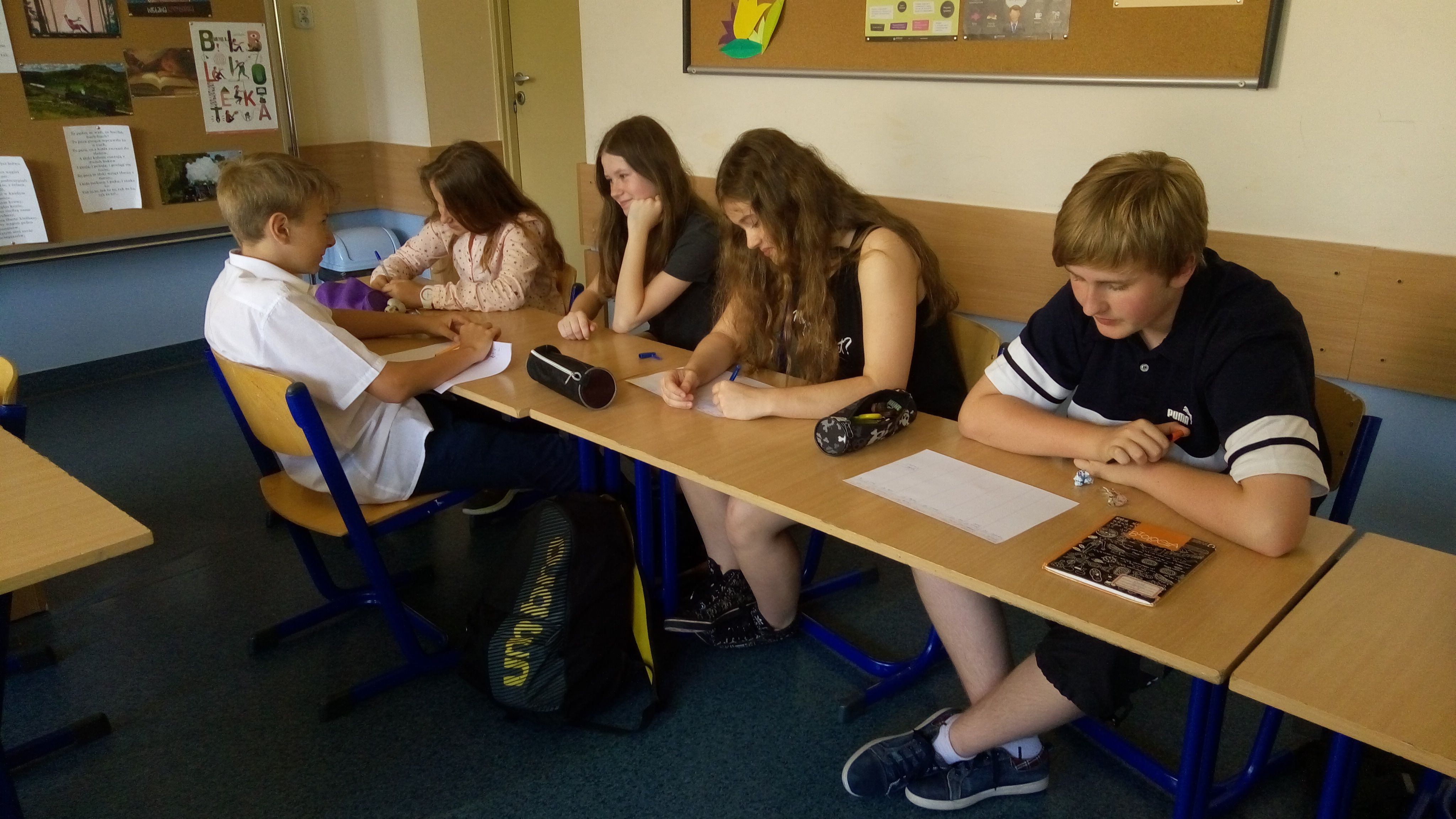
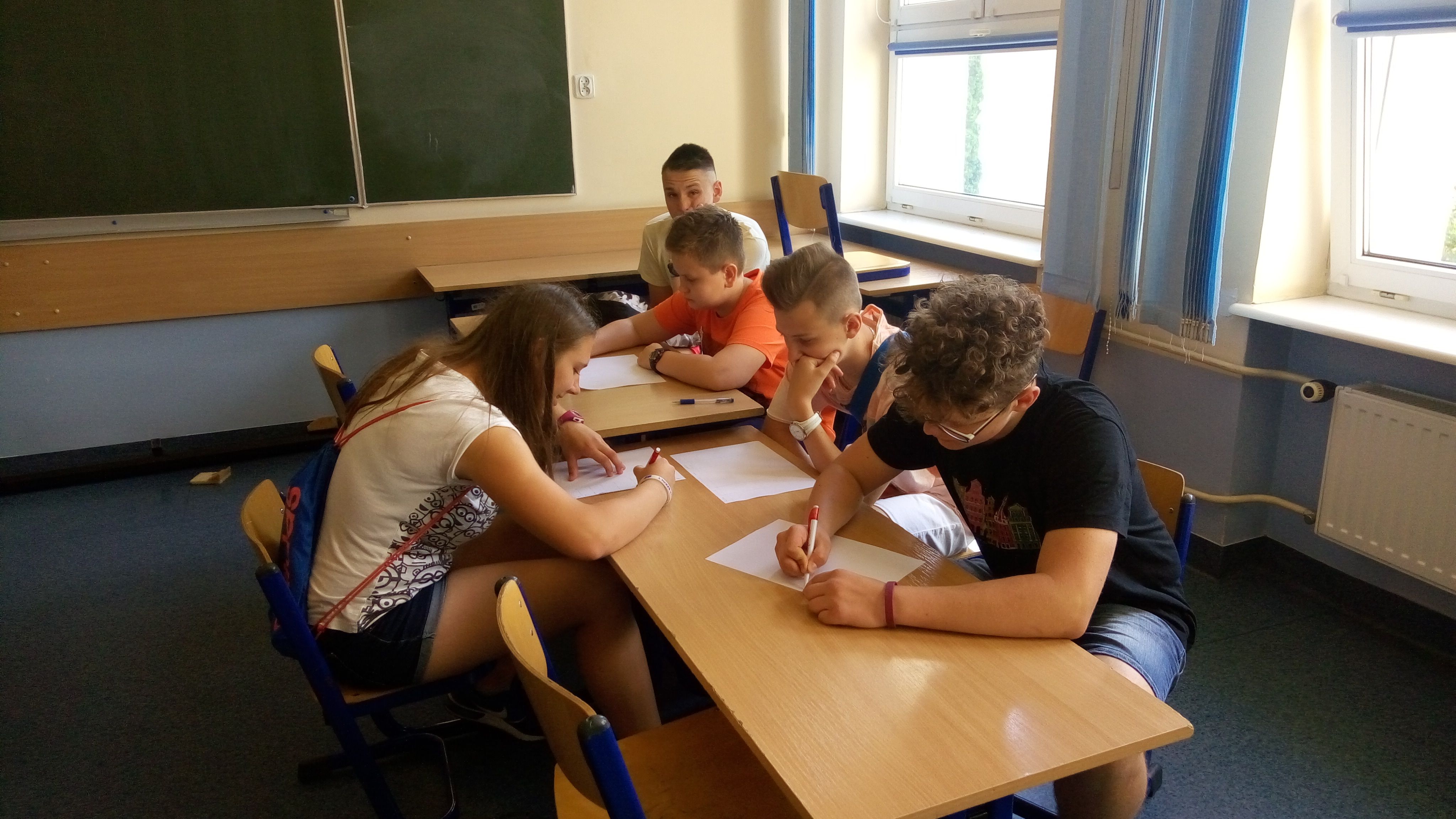
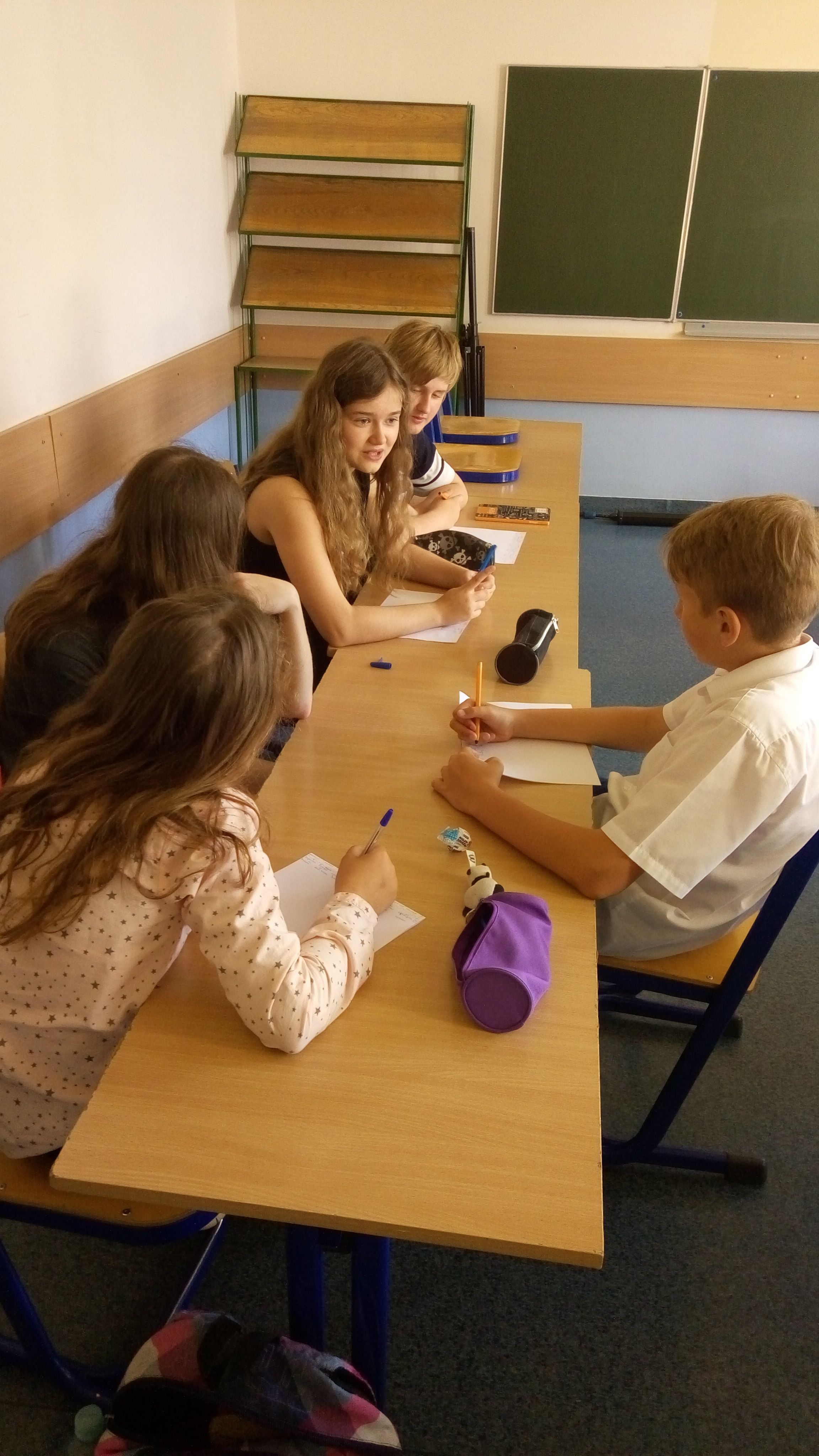
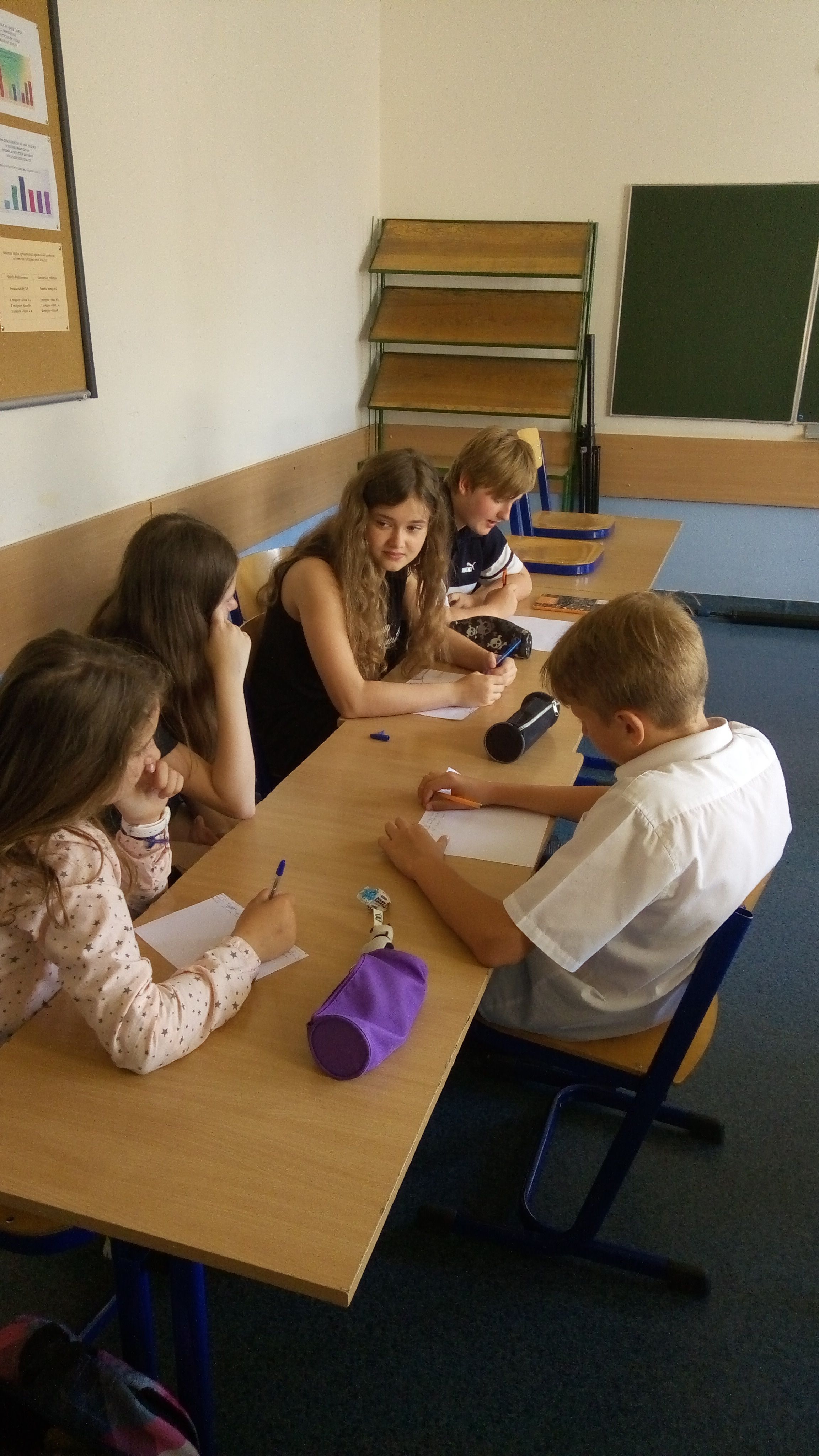
(Marek)
----------
June 2017
 Poland
Poland
- The Romanian coordinator organized the multiplier event in Bucharest. We send our contribution for the conference, which was printed in the multiplier event's materials.
- There was the last meeting with the teachers, students and parents participating in the project. The school coordinator Marek Krzywicki presented the main information about the realization of the Erasmus+ project „We can do it together”. The headmistress Alicja Dorosz thanked all the teachers, students and their parents, and invited to the further cooperation during after-school activities in the next school year.
- The end of the school year ceremony was held on 23rd June 2017. During the speech of our headmistress as well in the multimedia presentation a significant part of it was devoted to the Erasmus+ project. After the ceremony parents, invited authorities and all interested guests were invited to see the Erasmus+ display presented next to the gym. Special leaflets about the Erasmus+ project „We can do it together” were distributed.
(Marek)
----------
July - August 2017
 Poland
Poland
On 21st August there was a special (informal) Board of Teachers meeting how to use the effects of the Erasmus+ project (peer-learning method) in next school year or maybe a bit longer. After discussion there were four teachers (one who already took part in the project – a biology and chemistry teacher, and three new ones who want to participate – a music and arts teacher, a geography teacher and a history teacher) who agreed to provide care and support for the peer-learning special classes as a part of after-school activities for the next two school years.
(Marek)